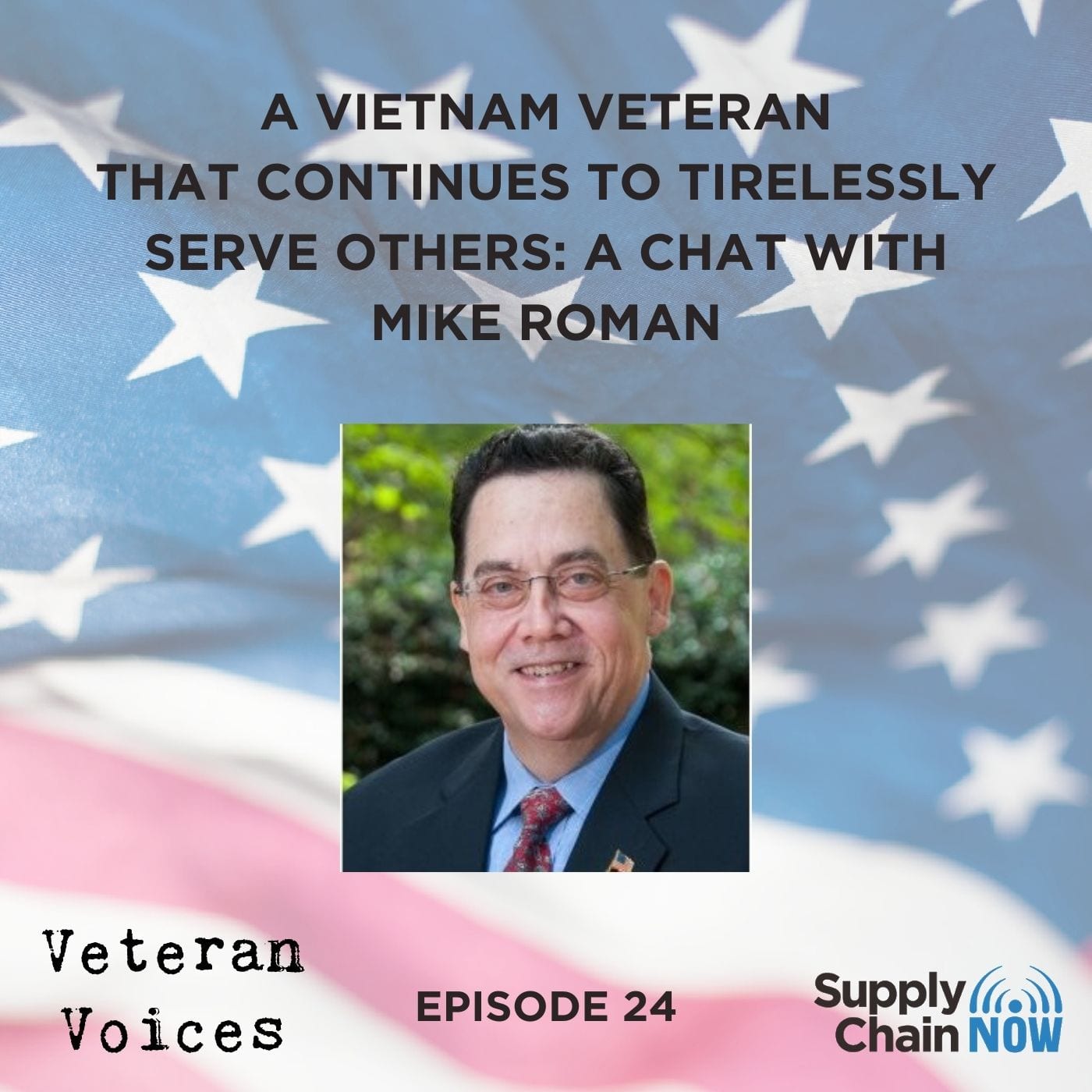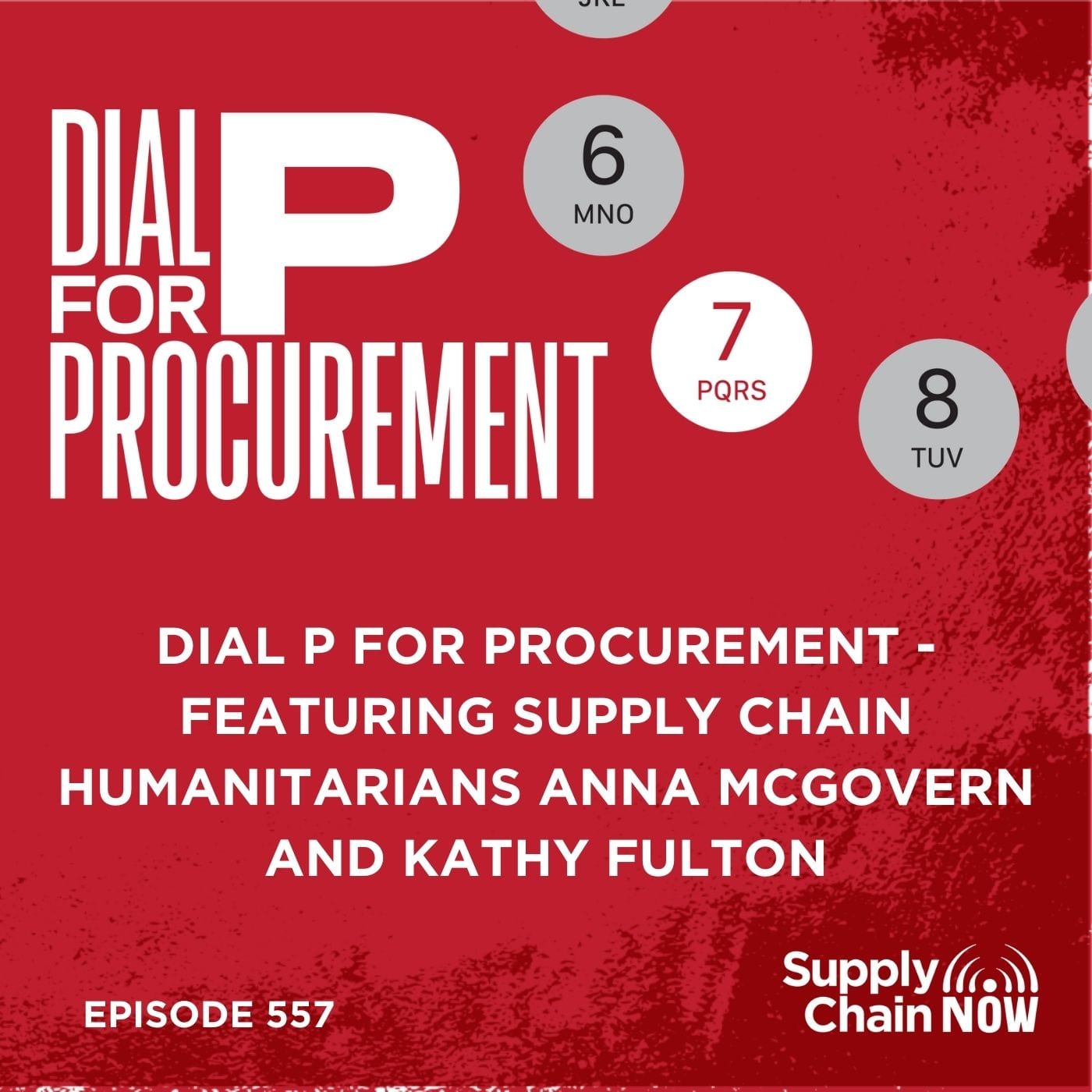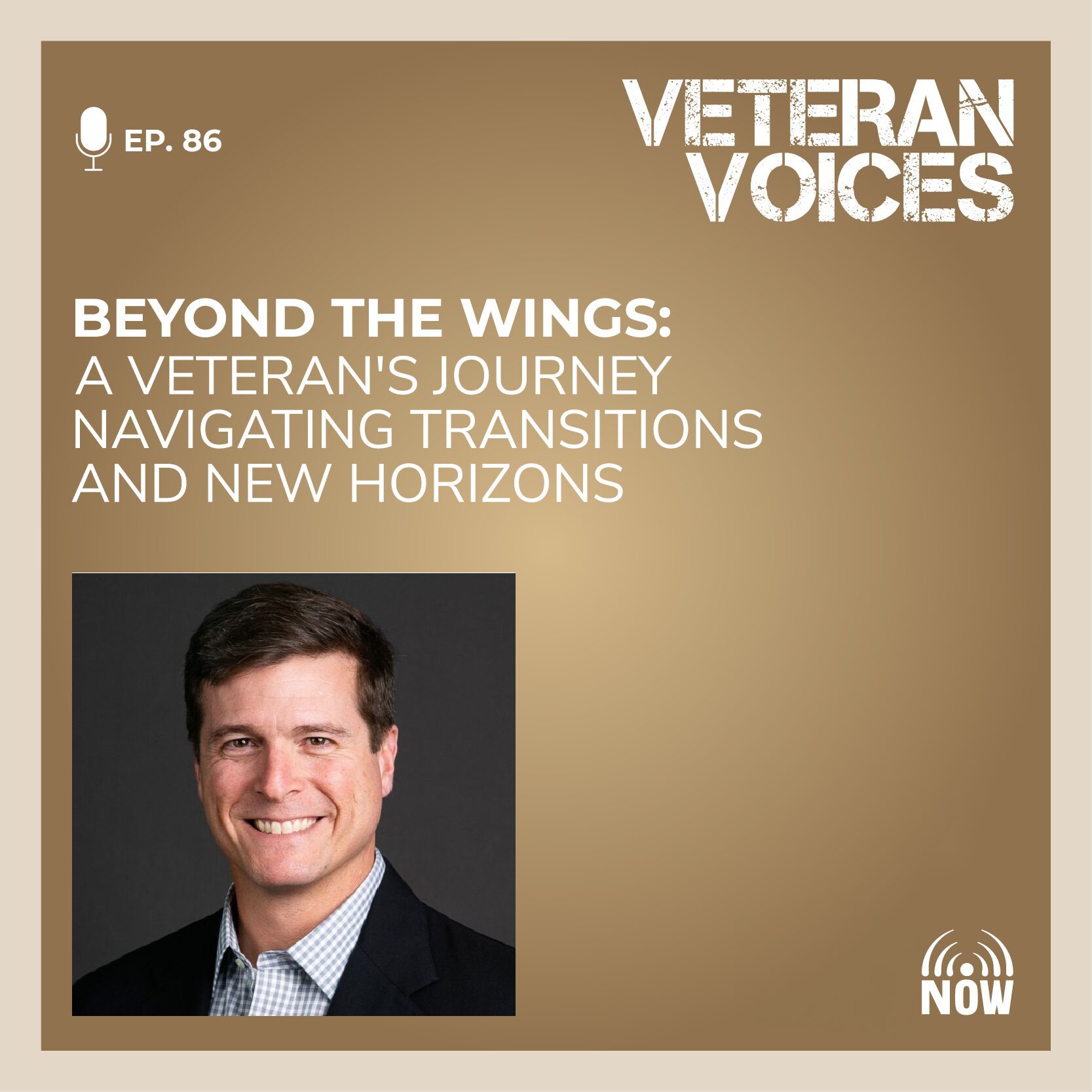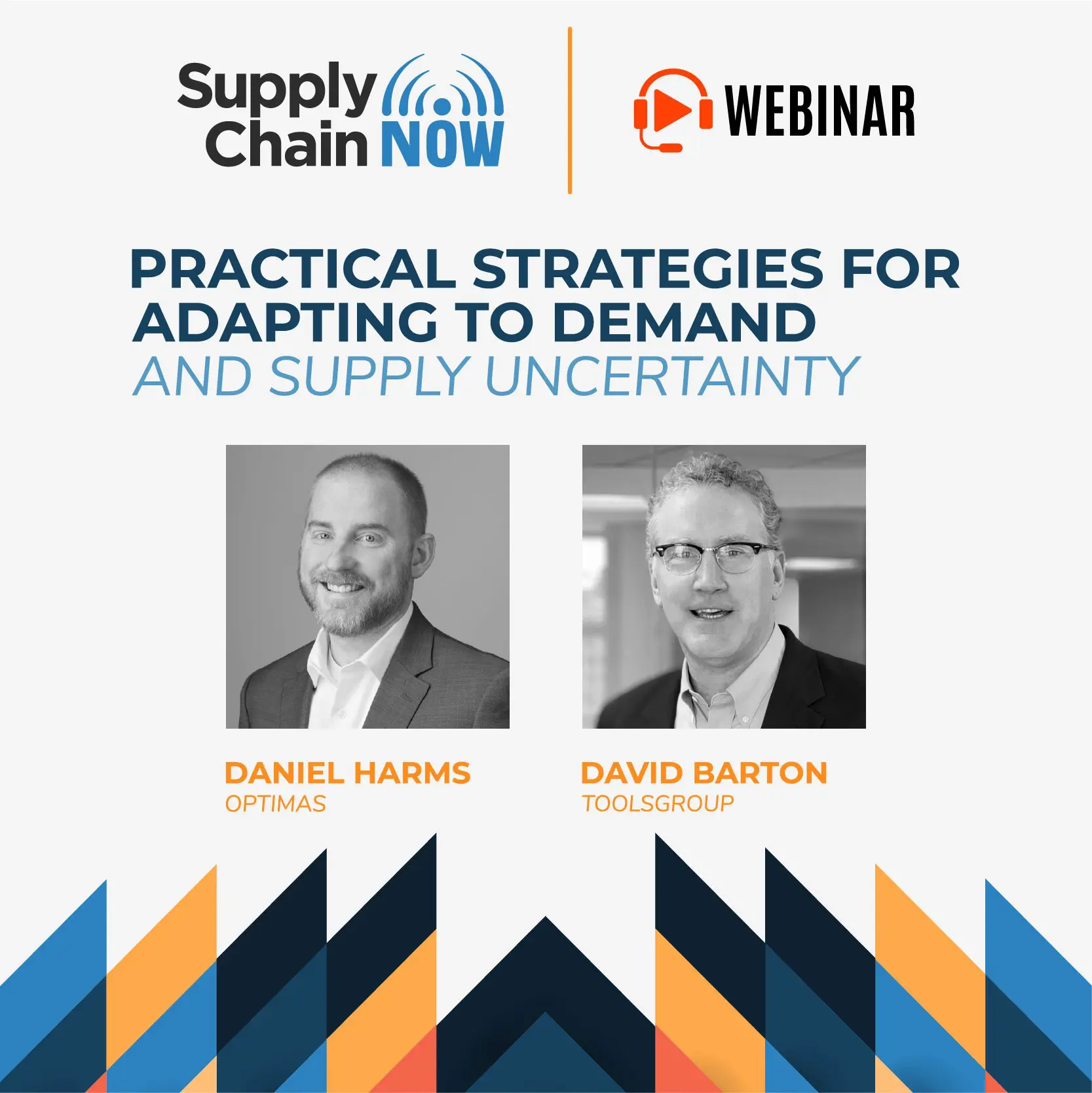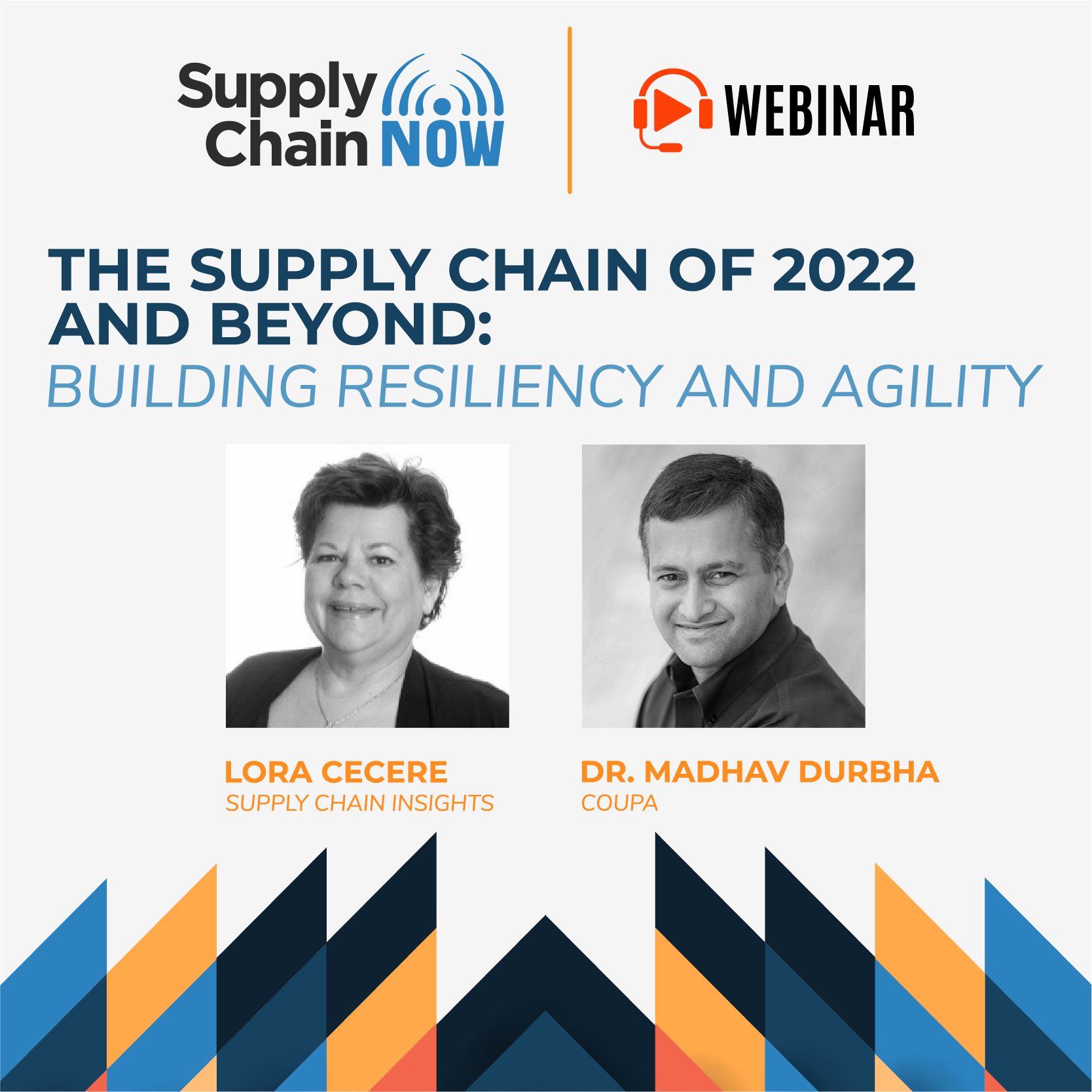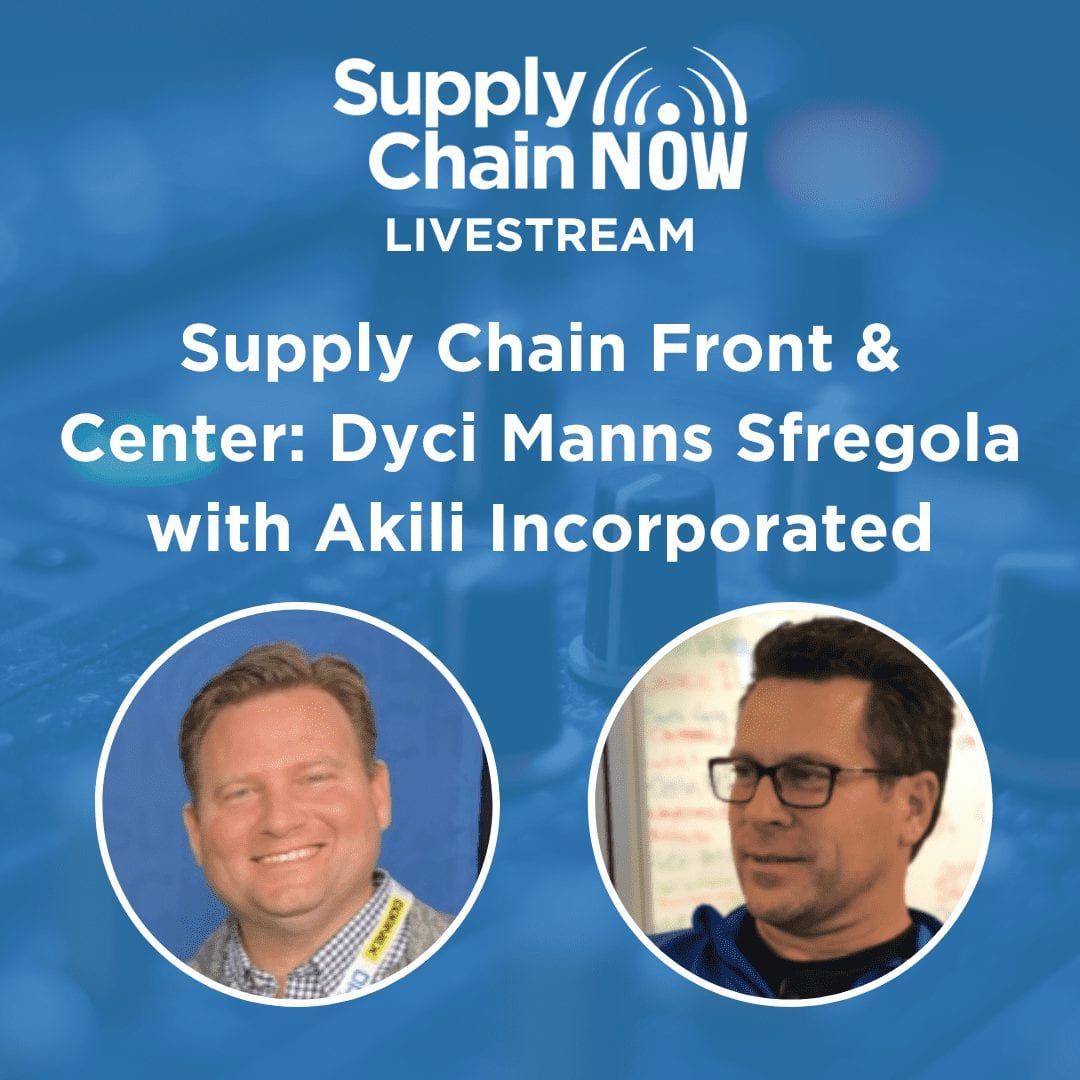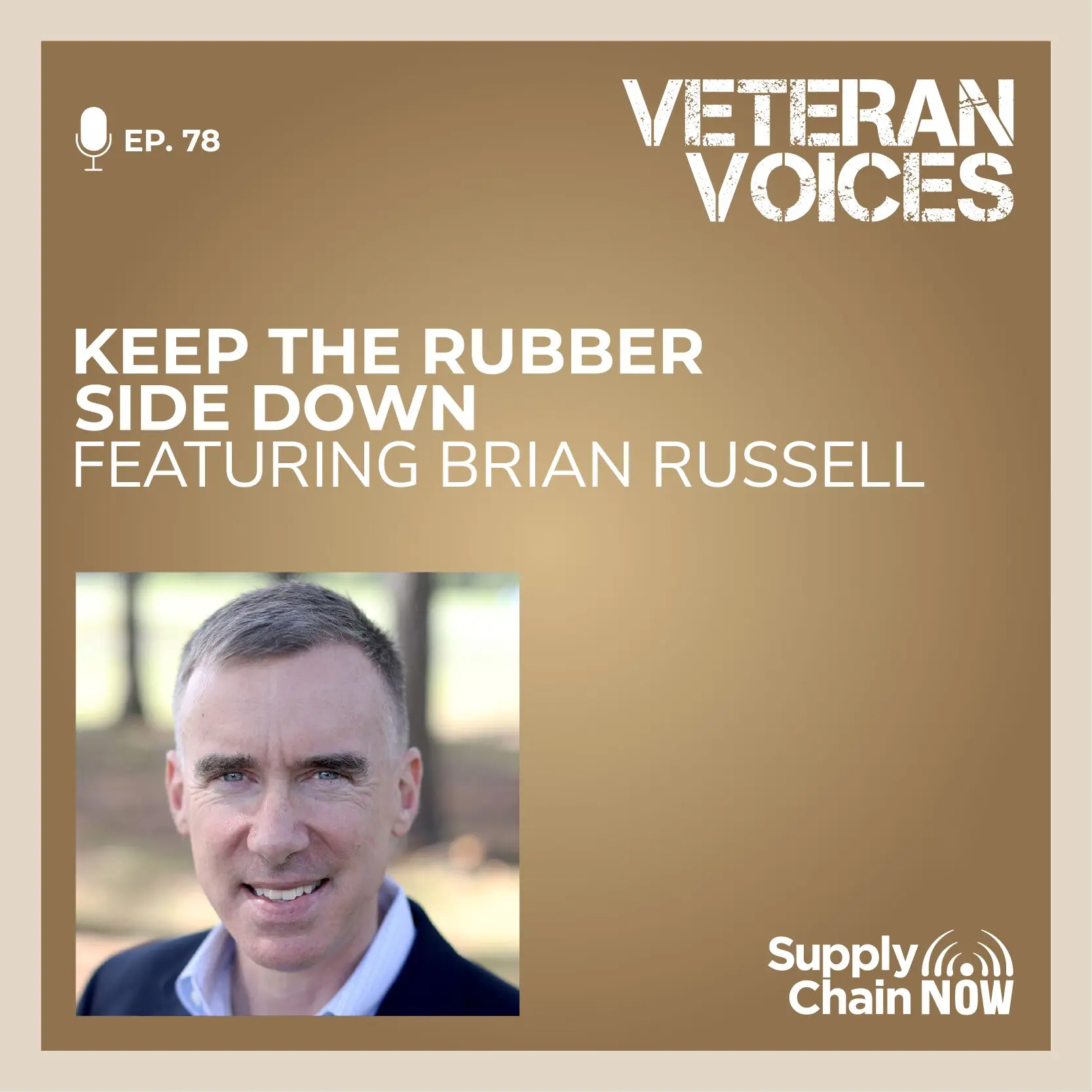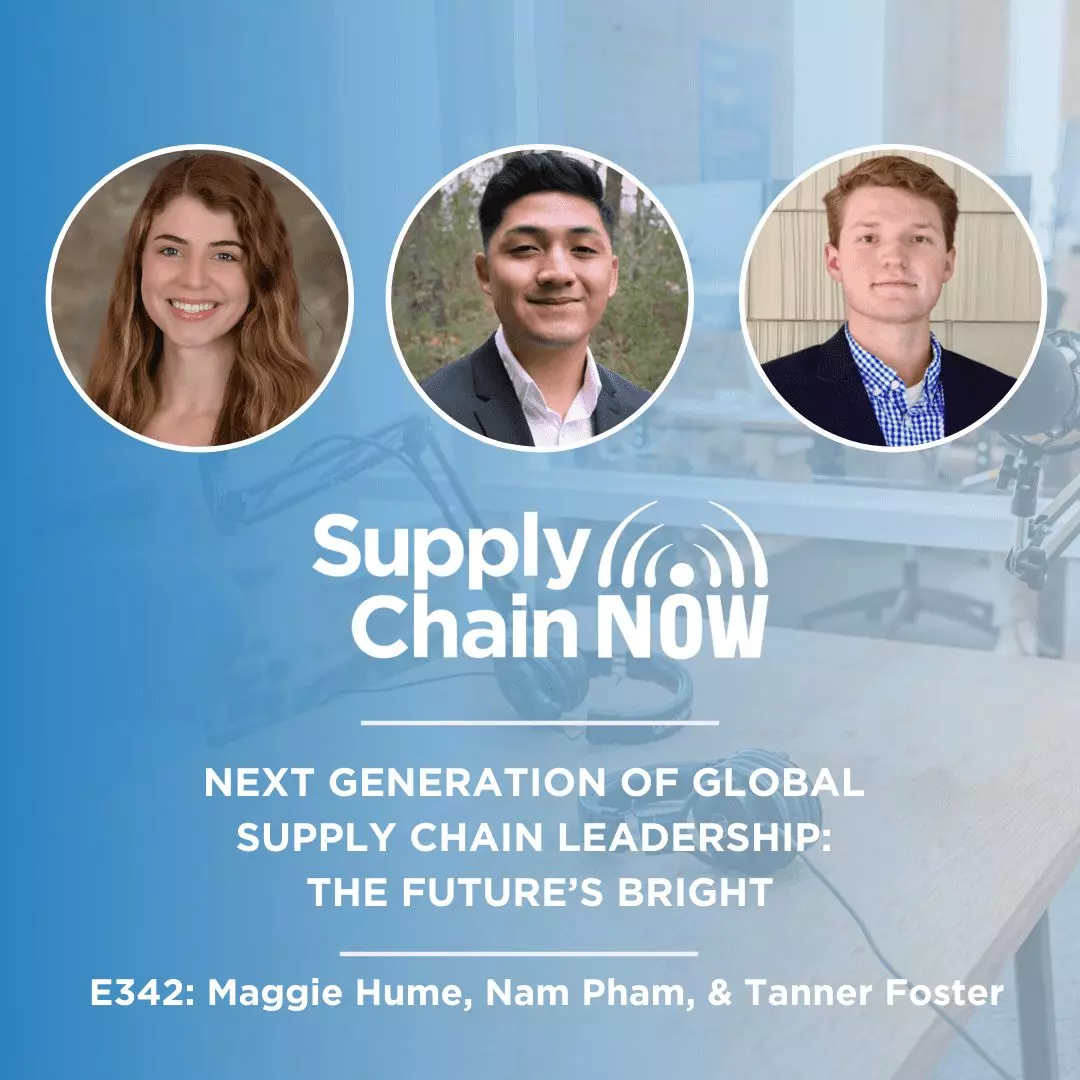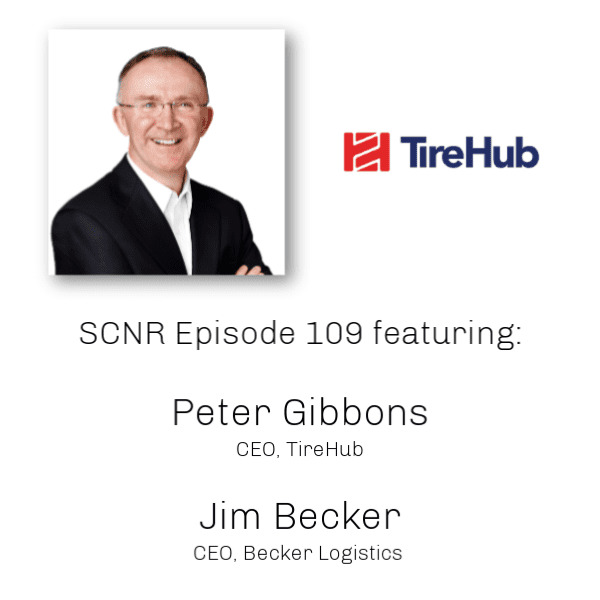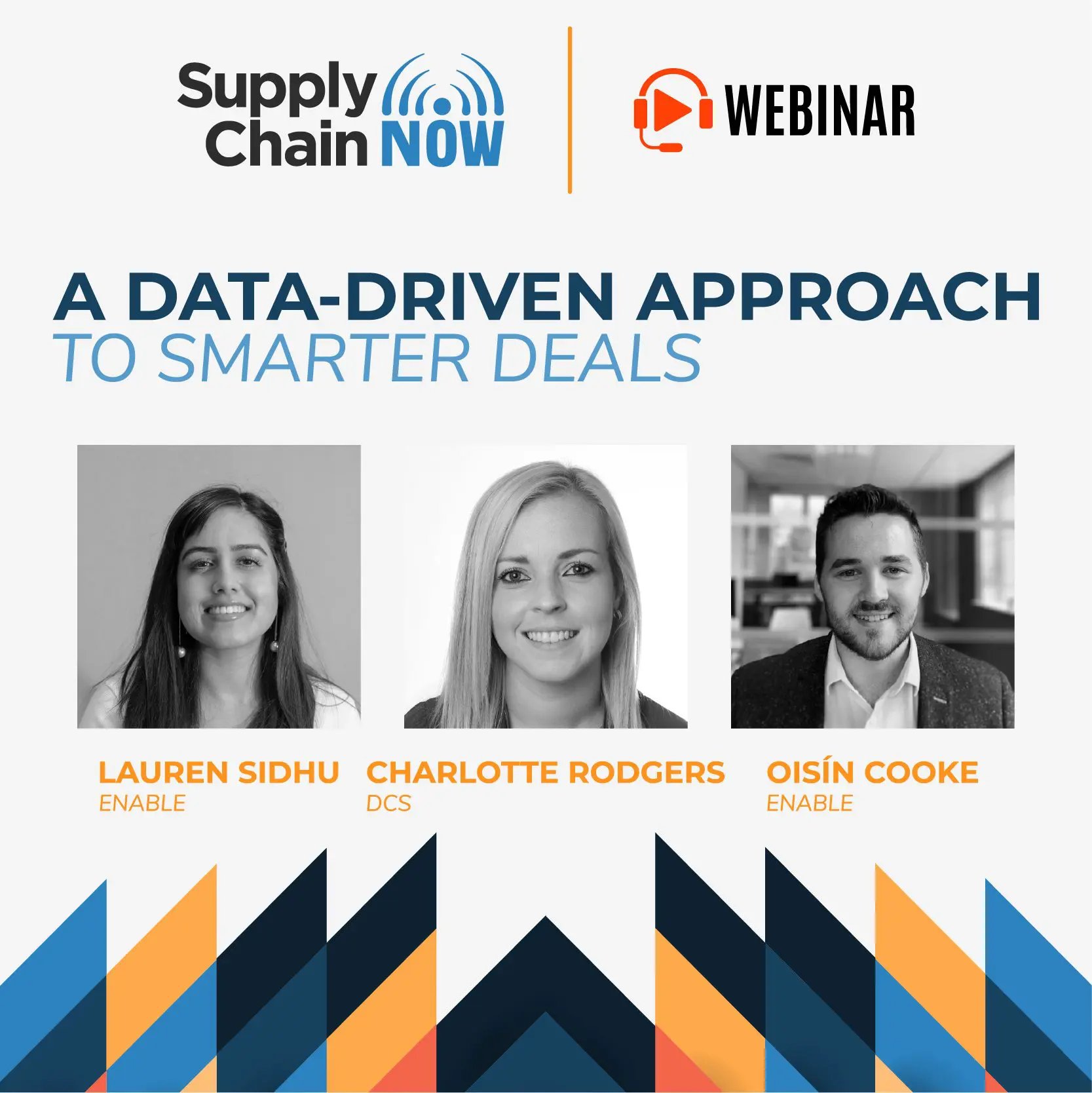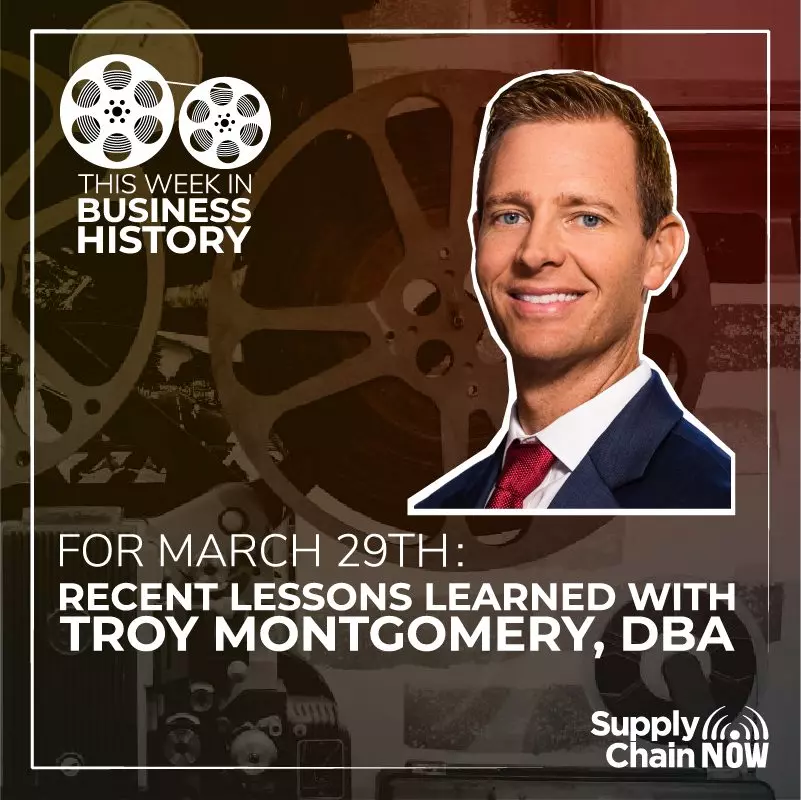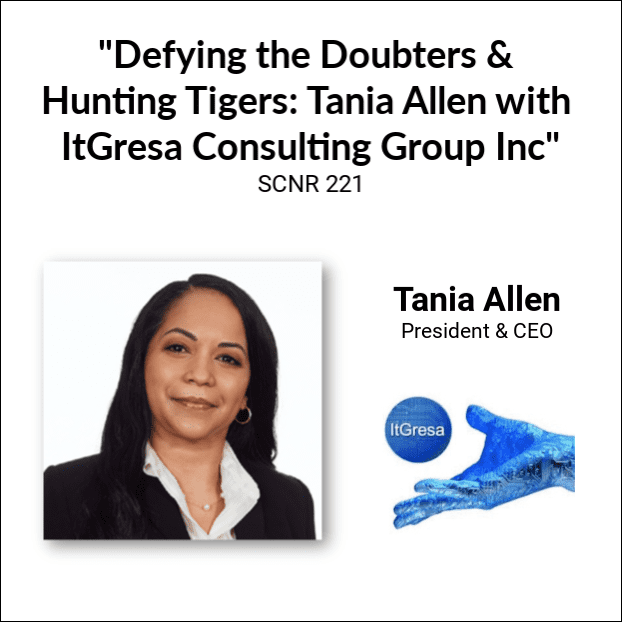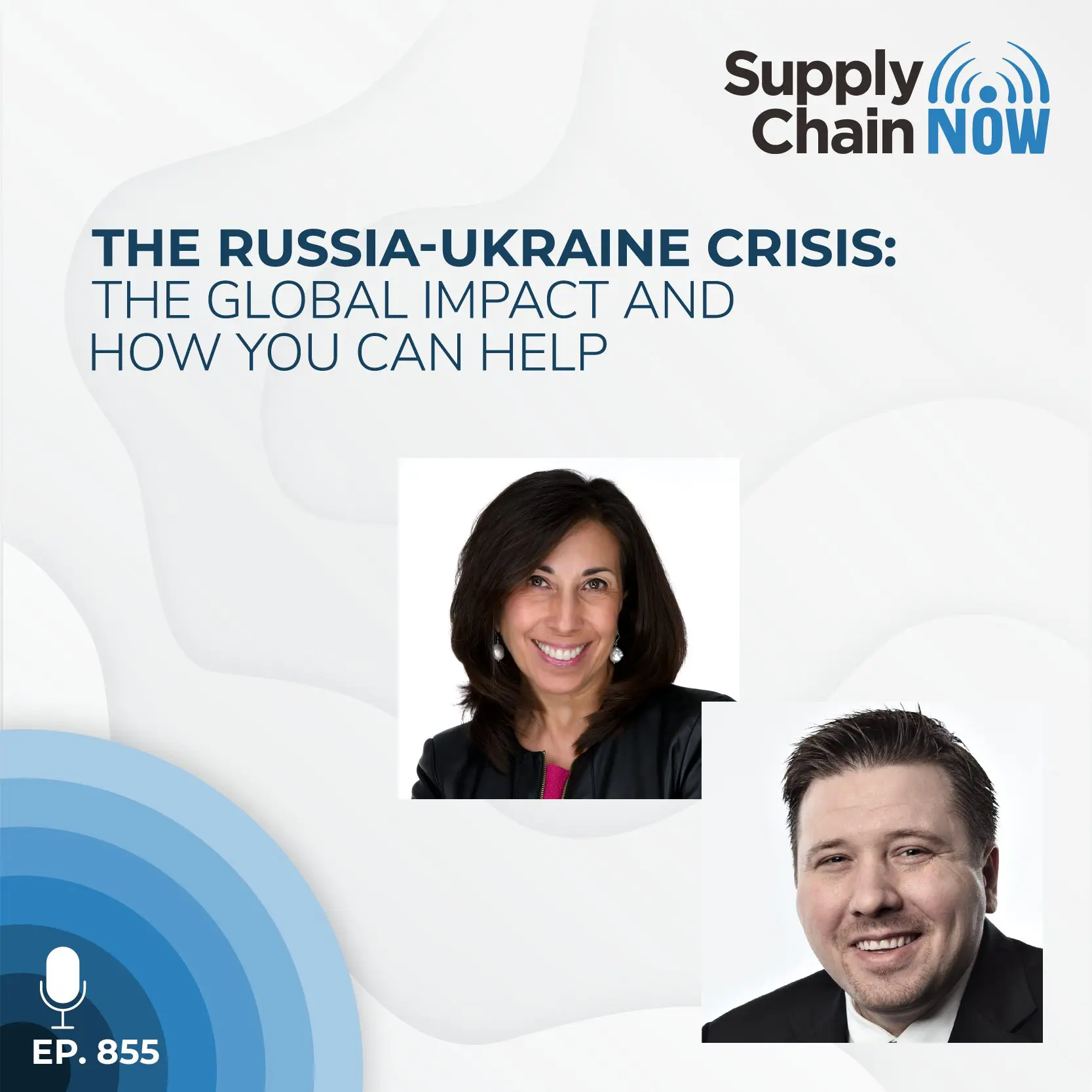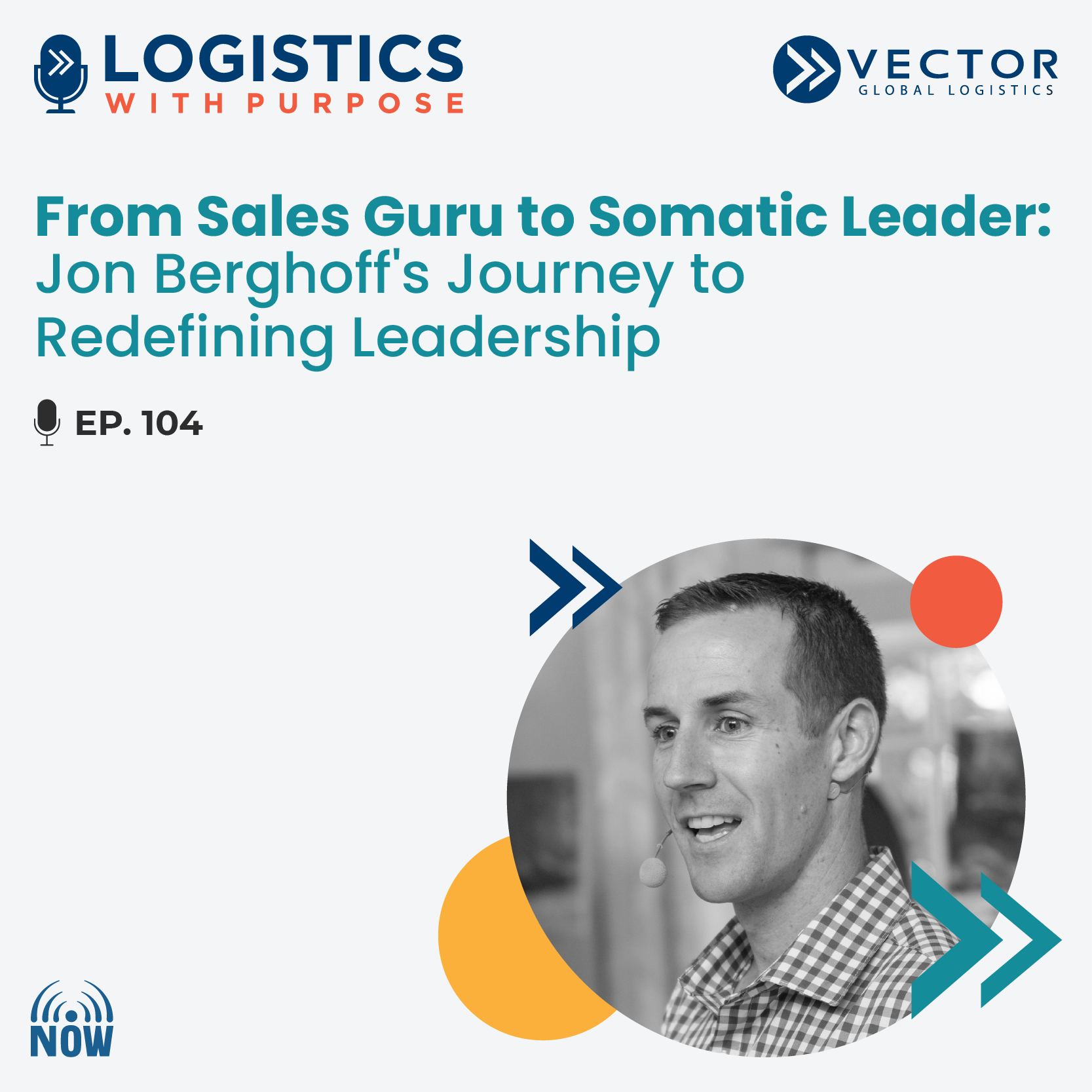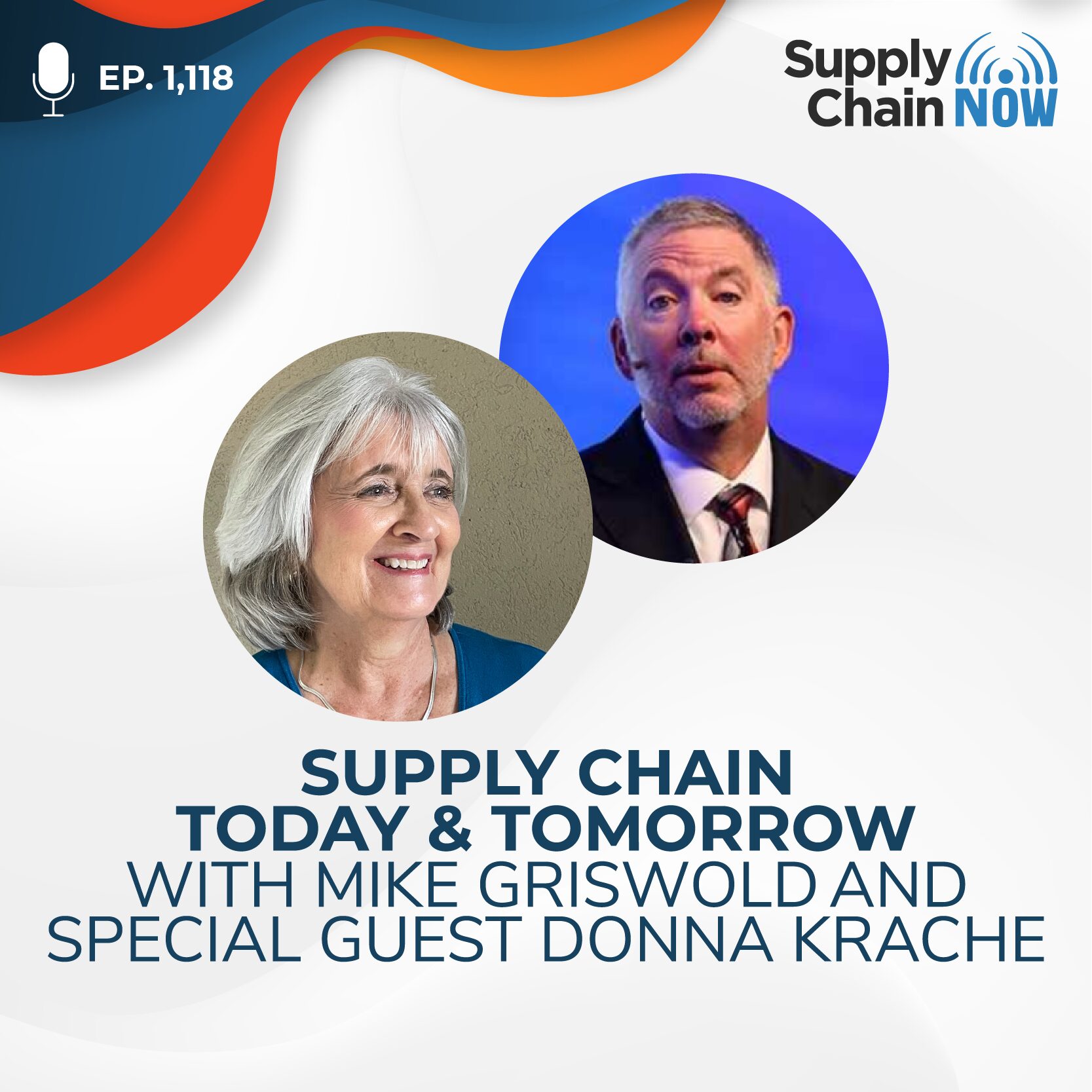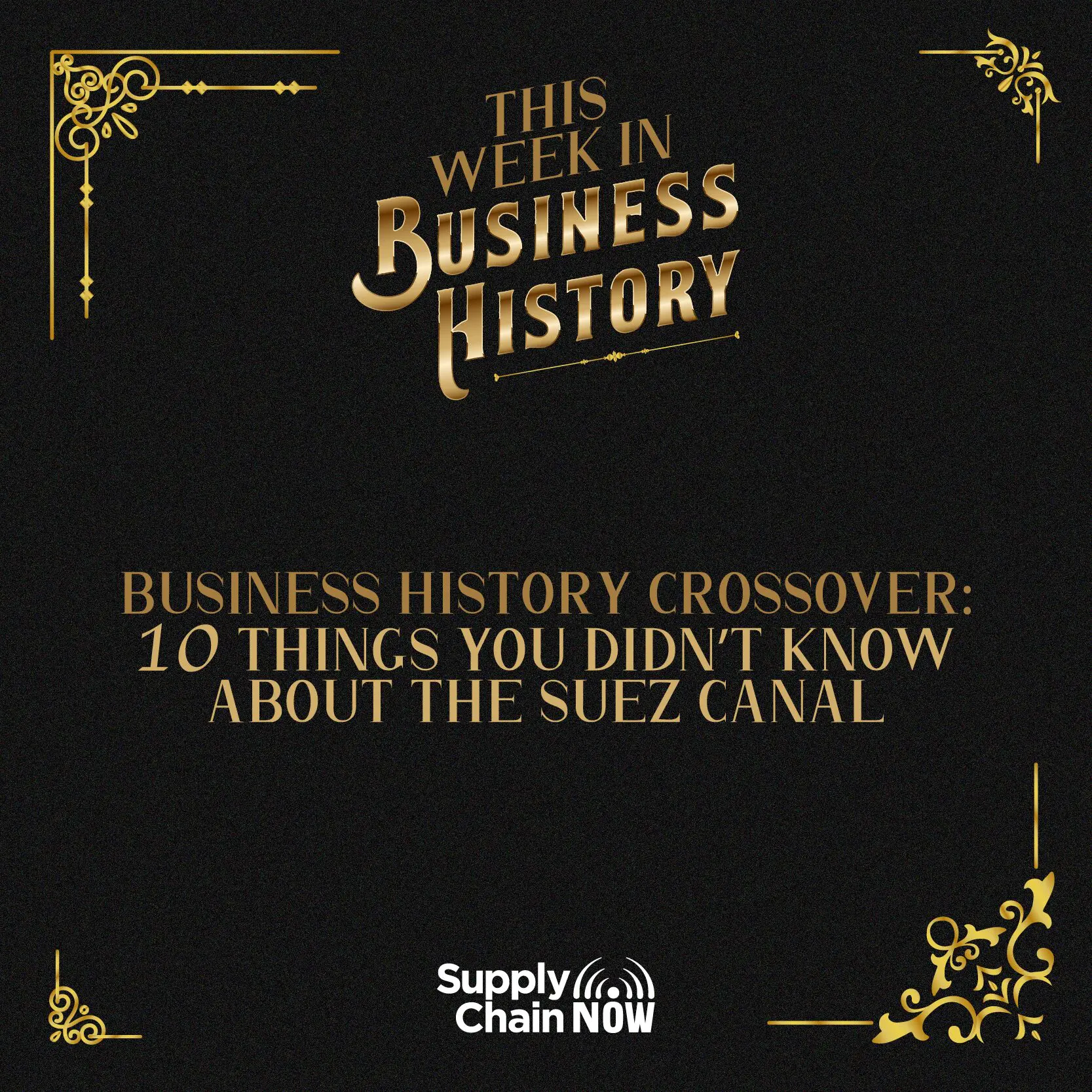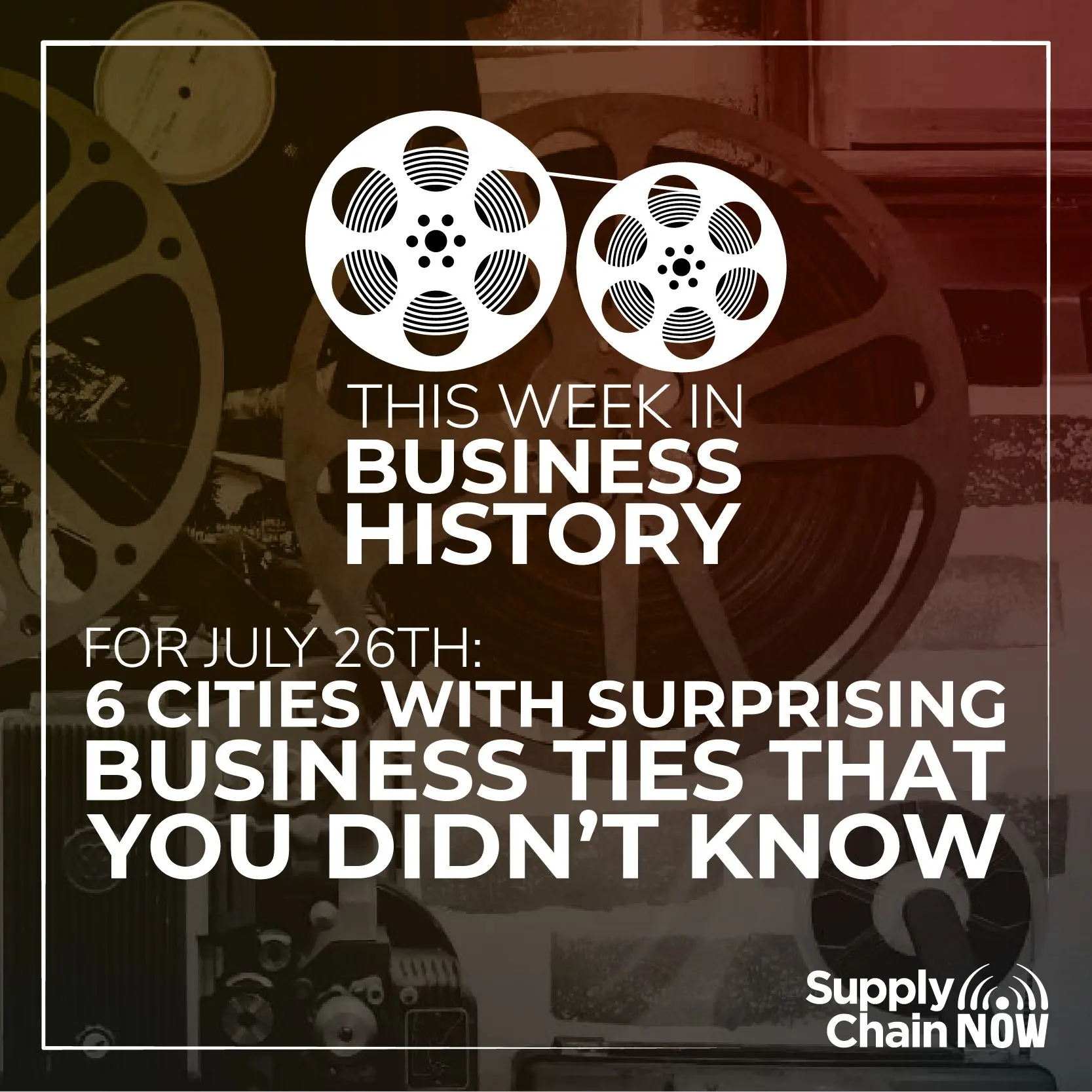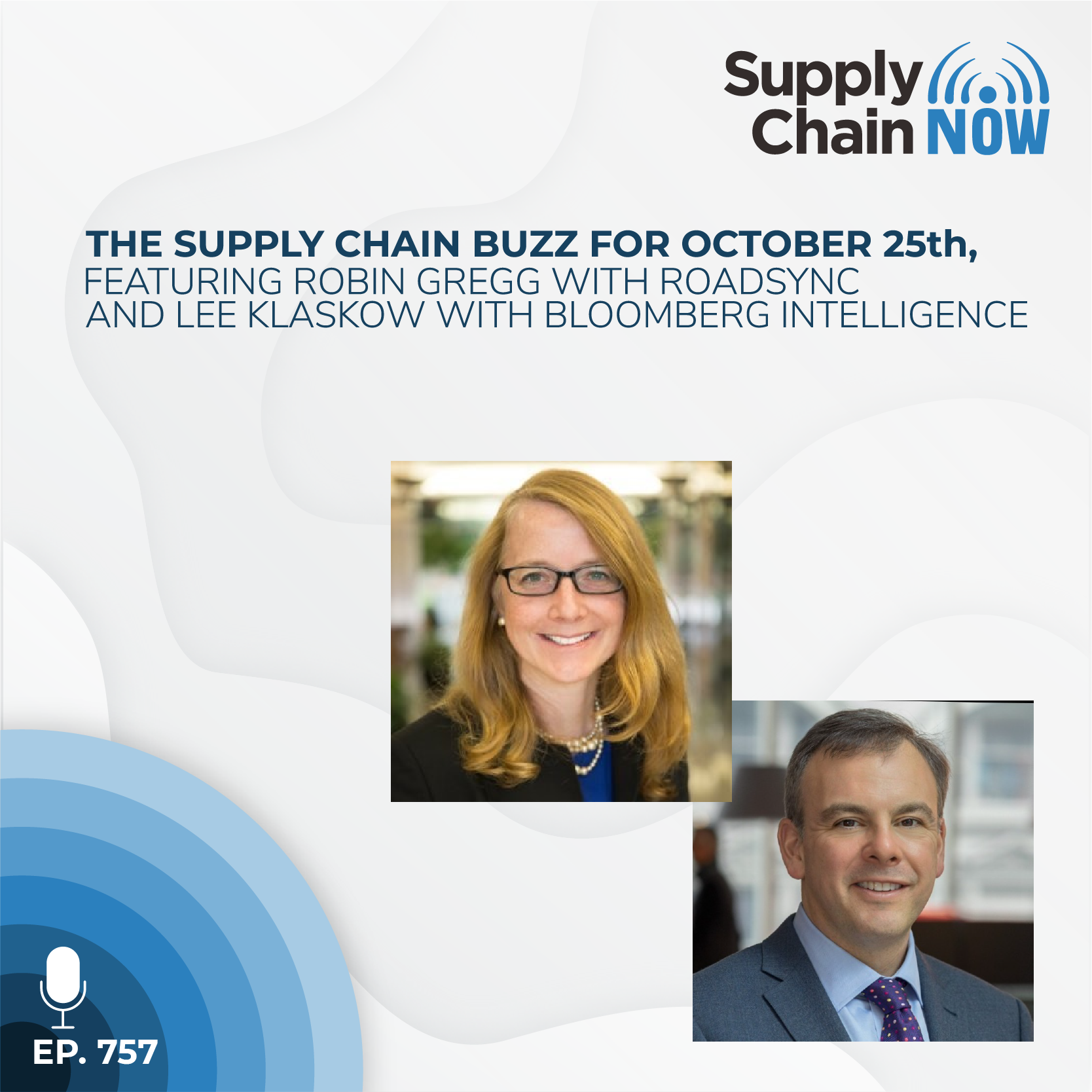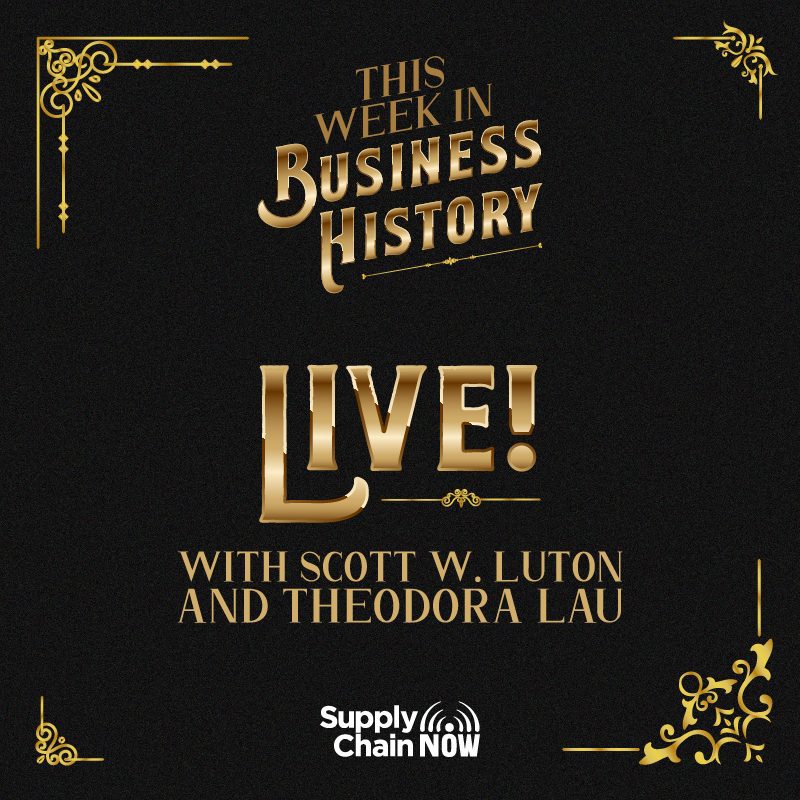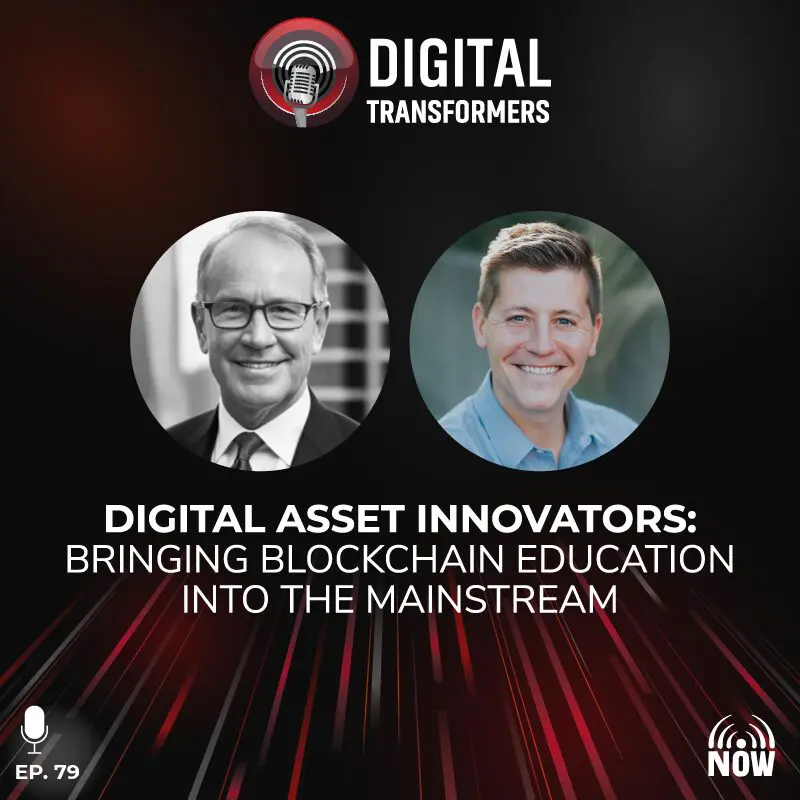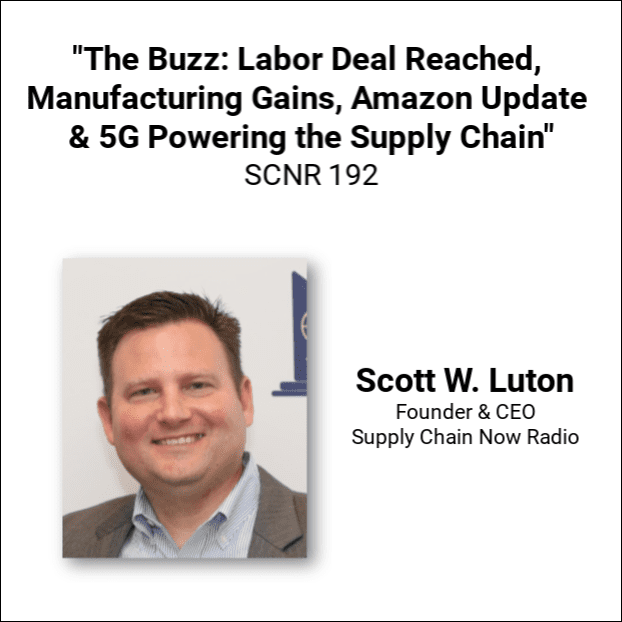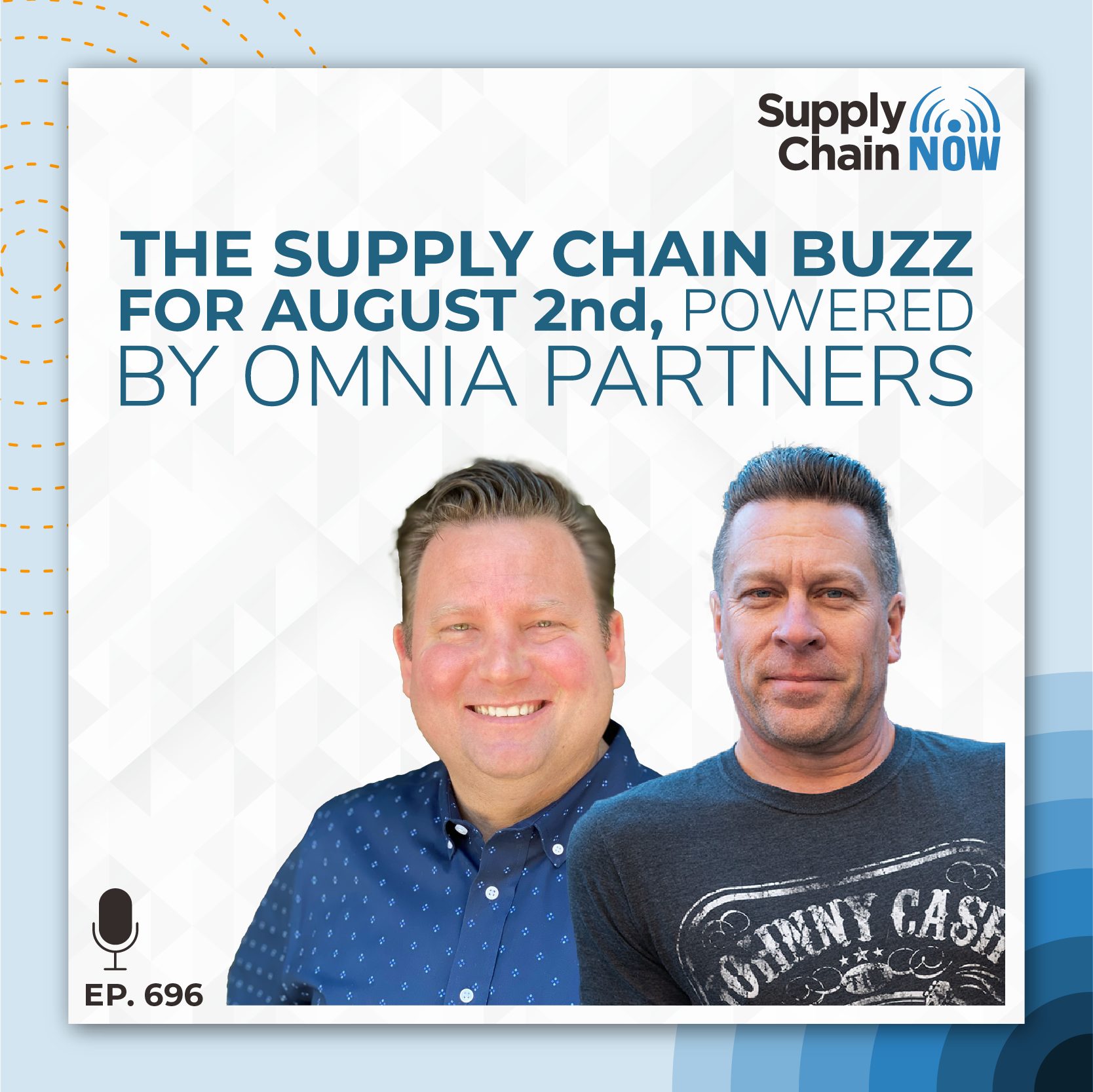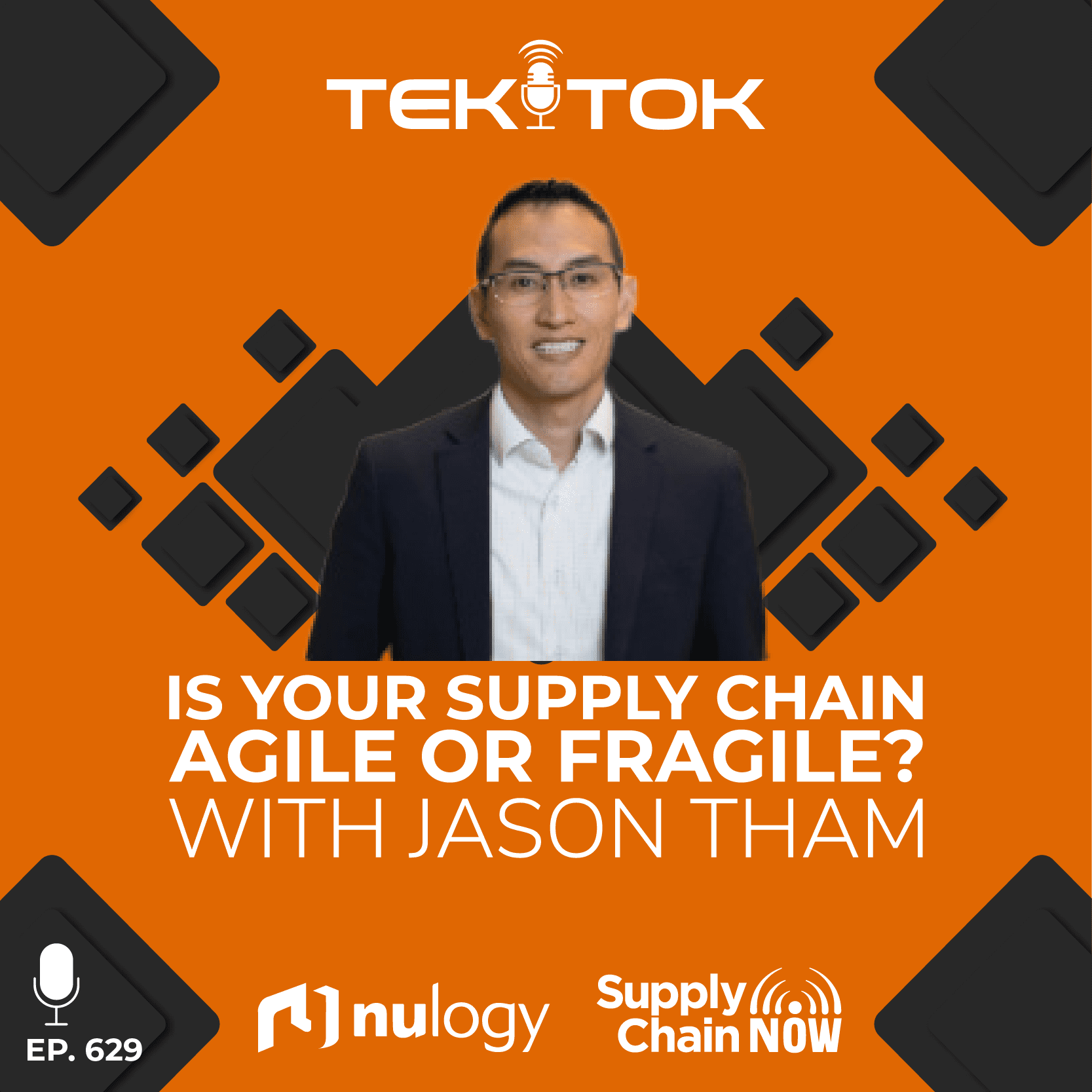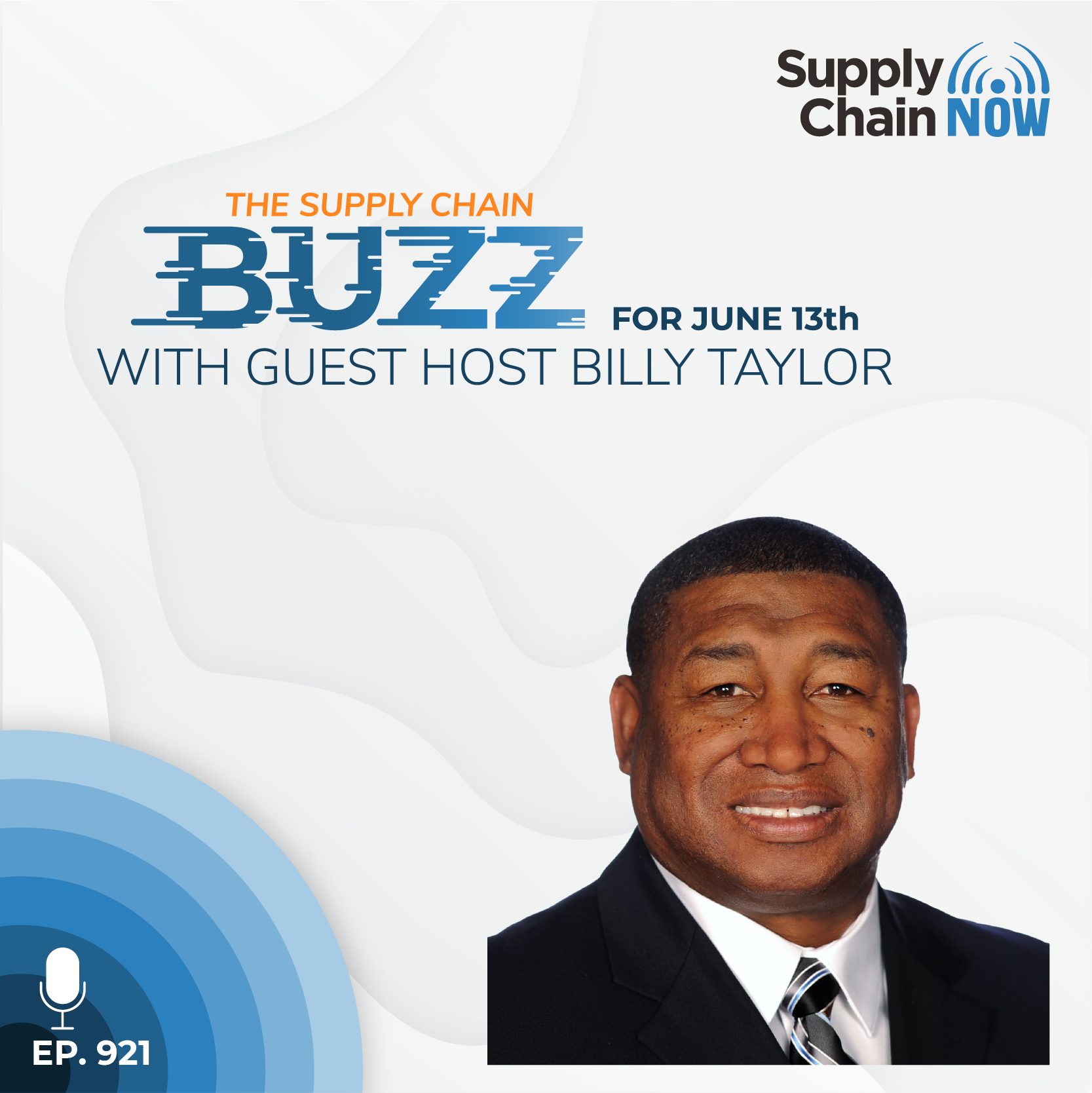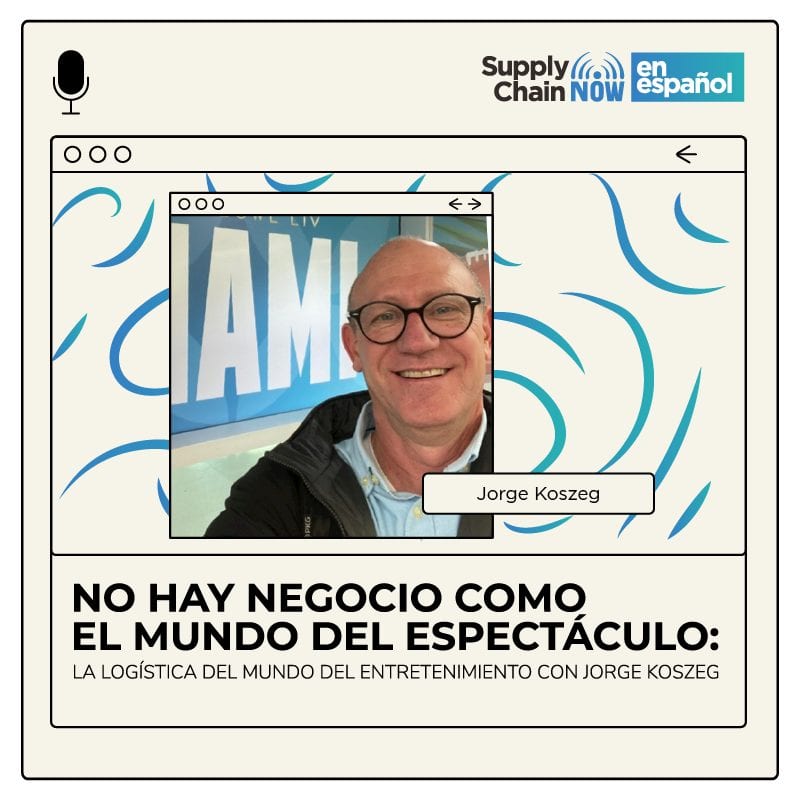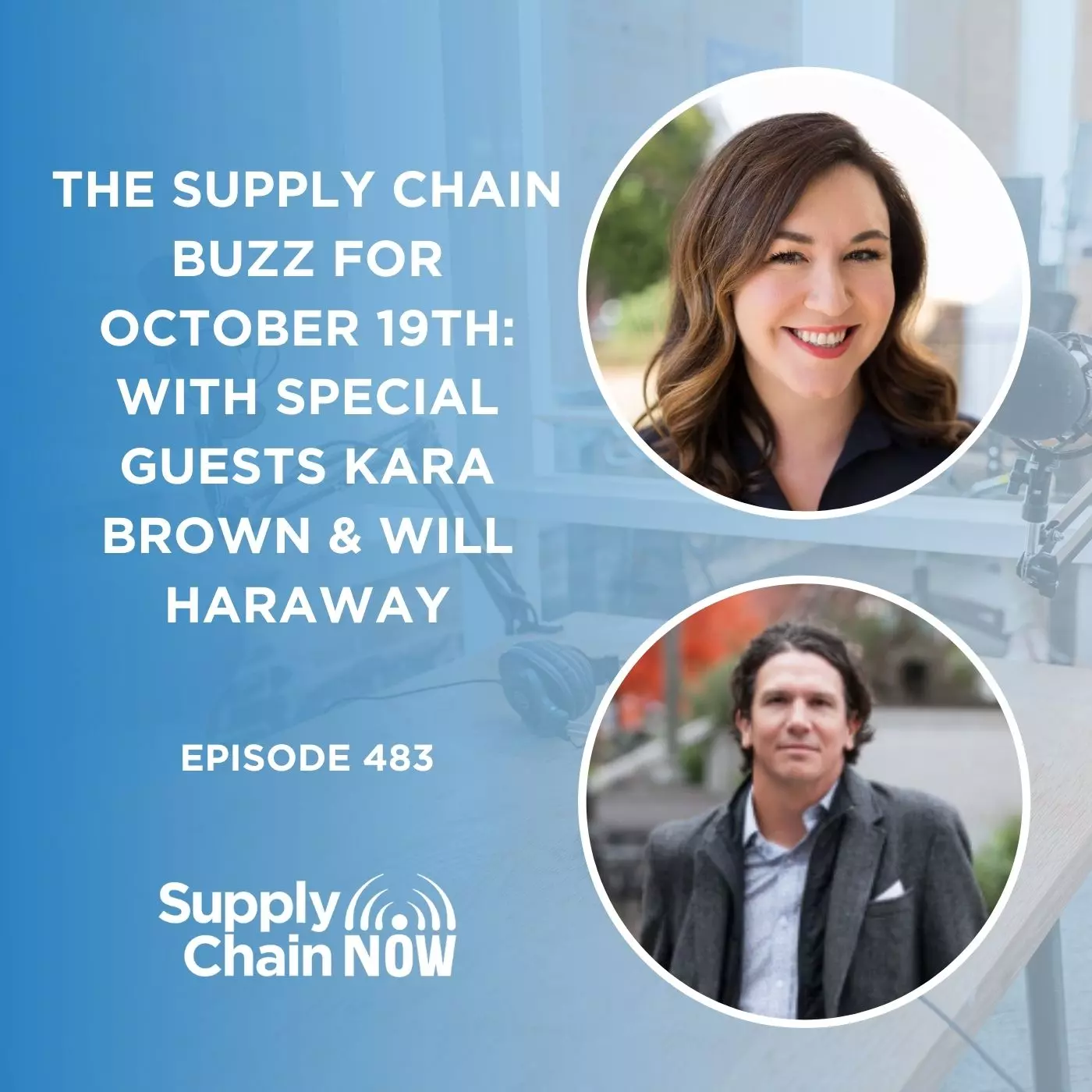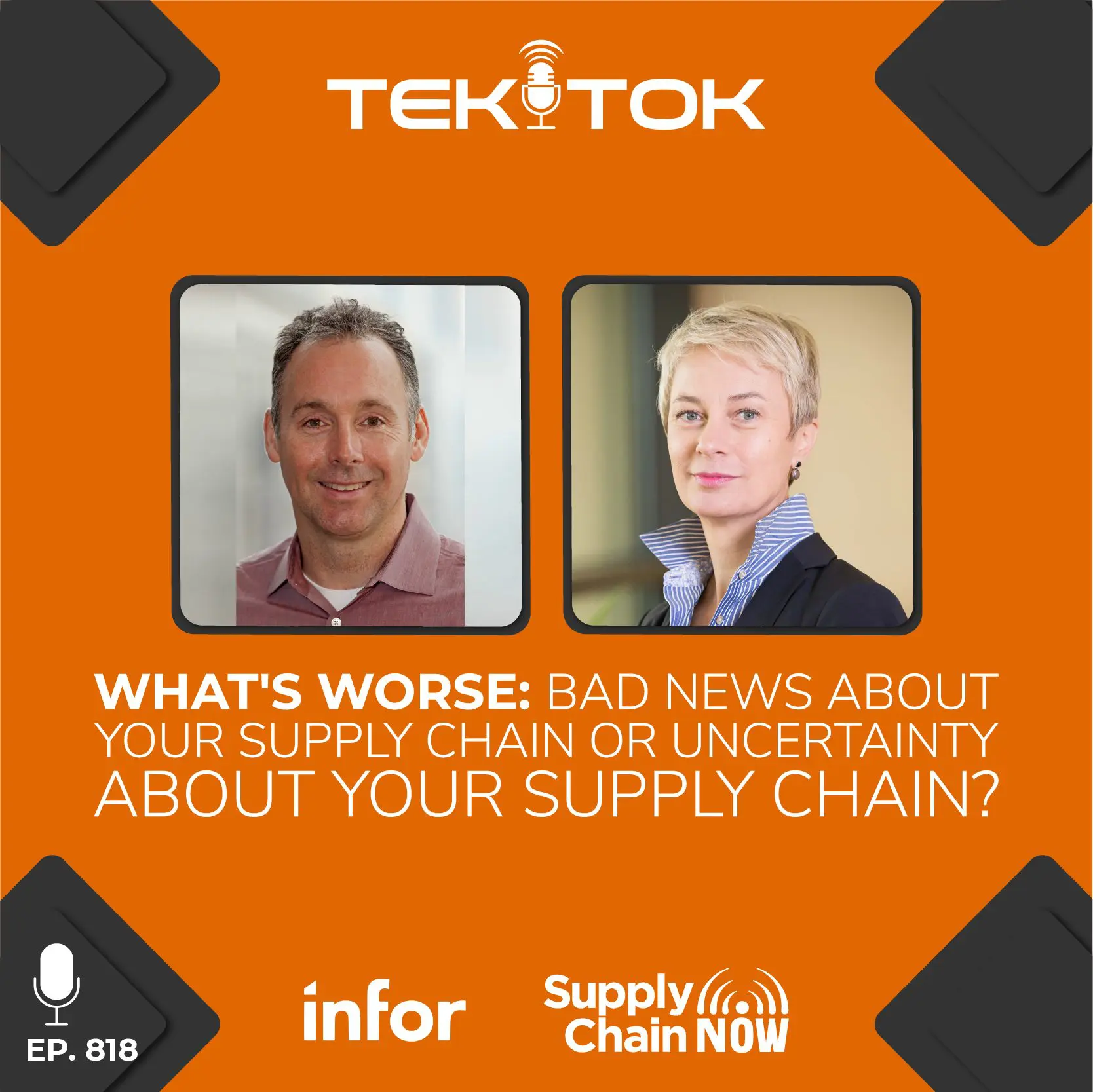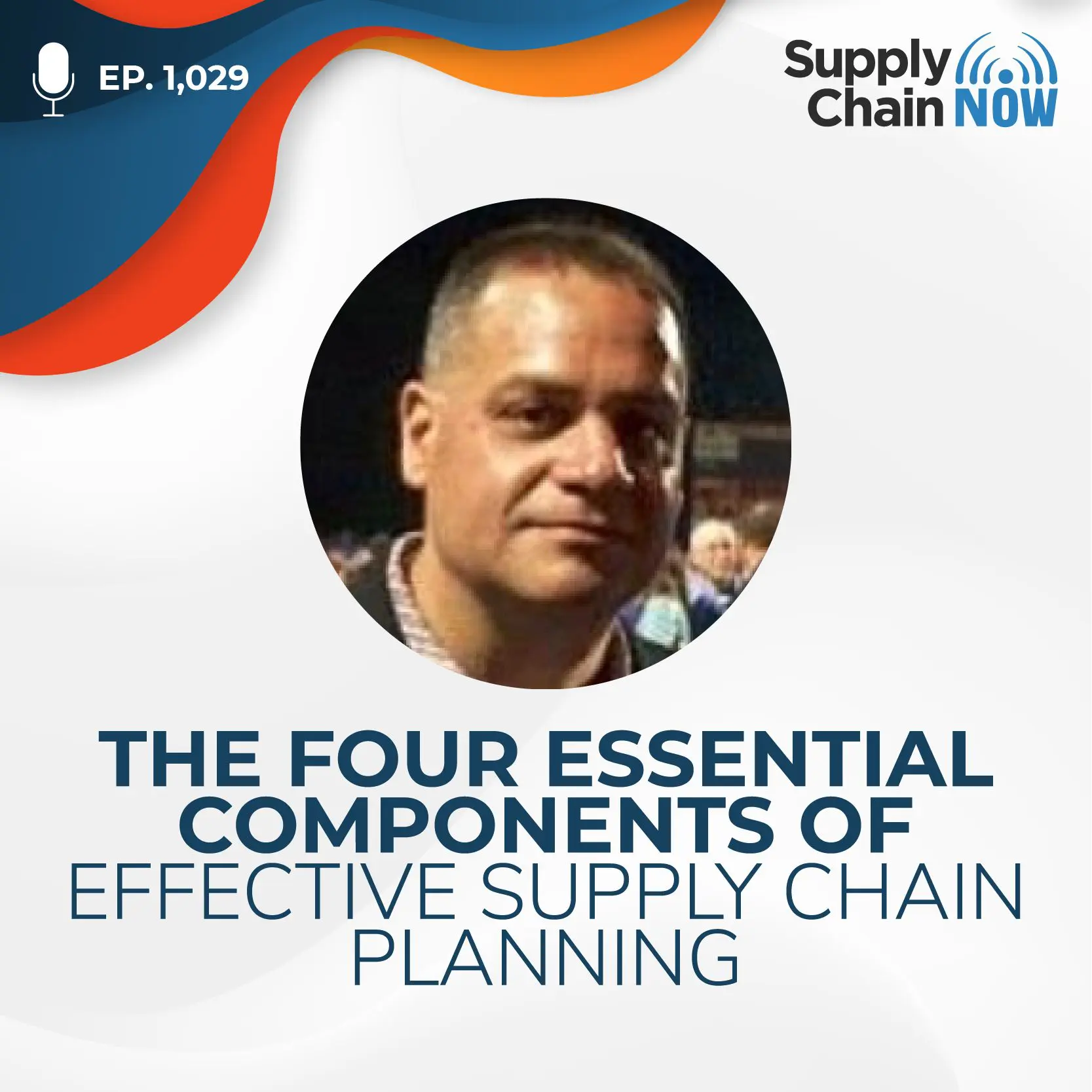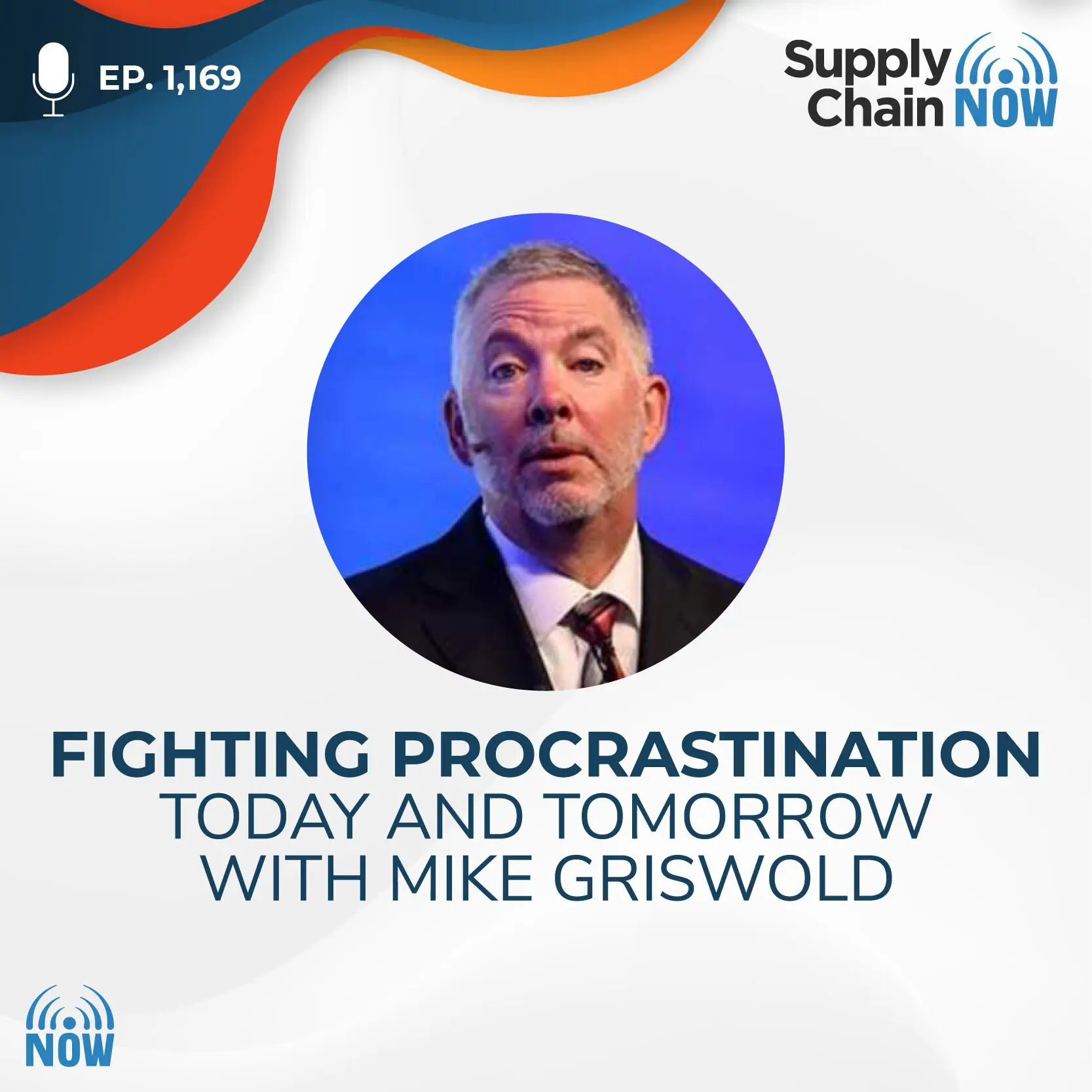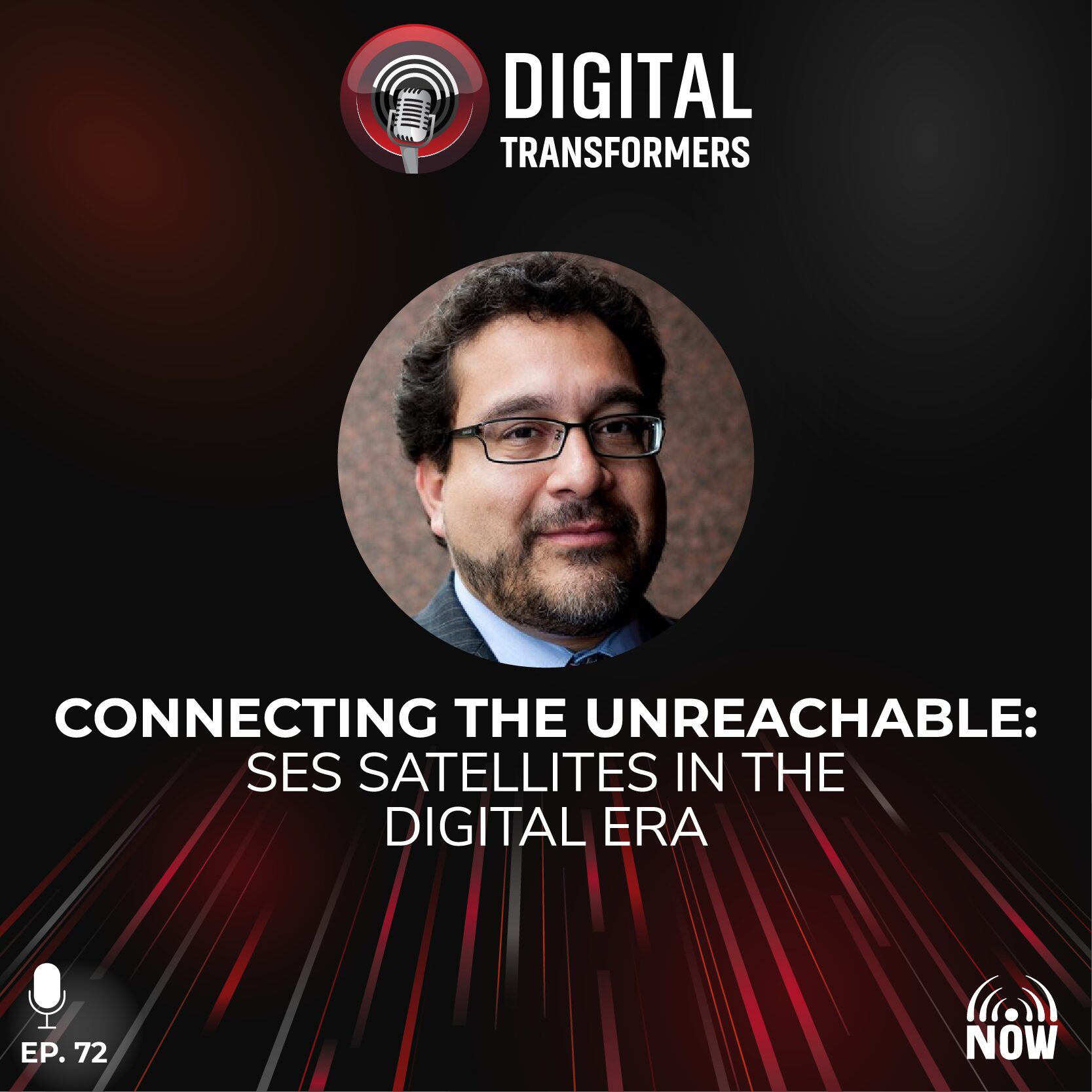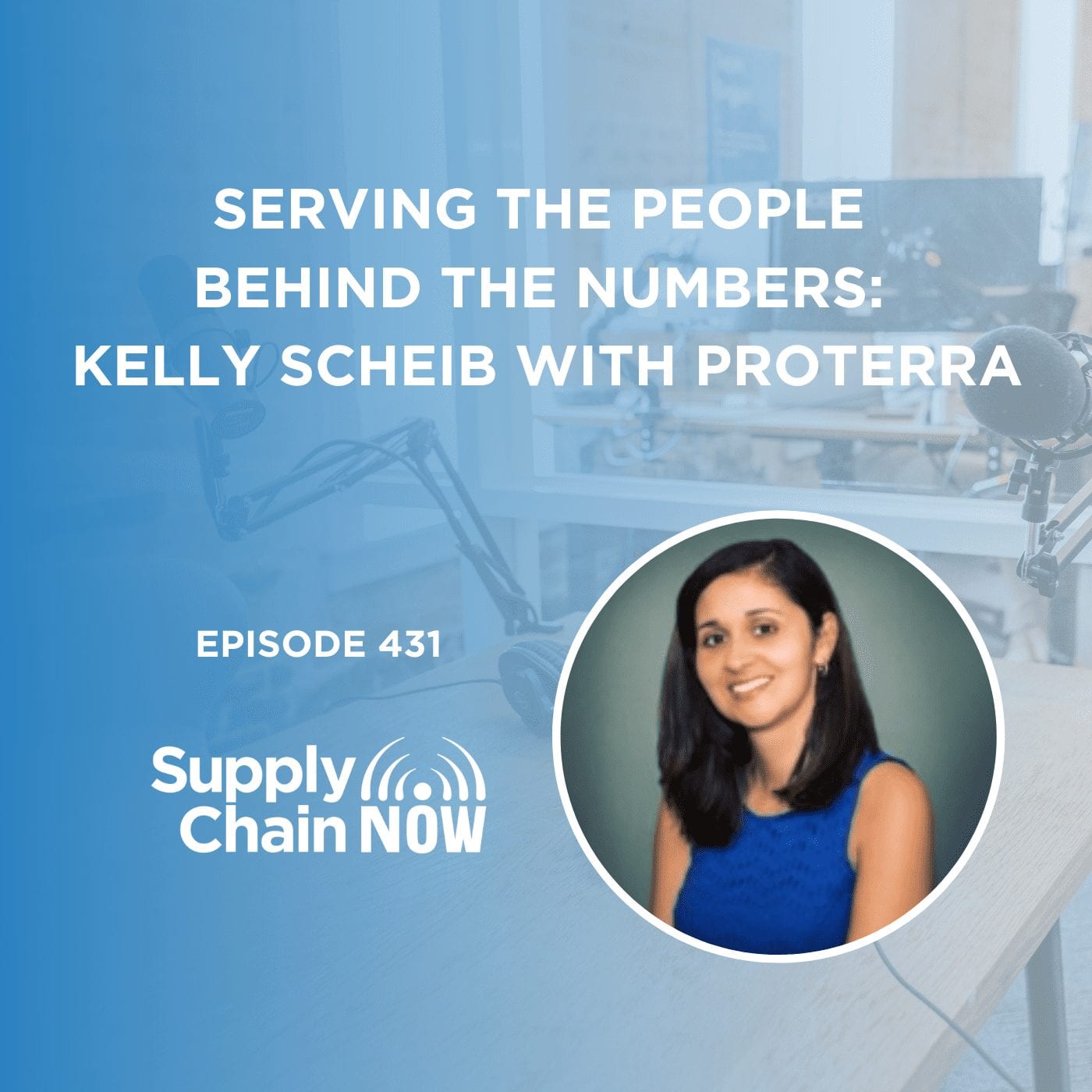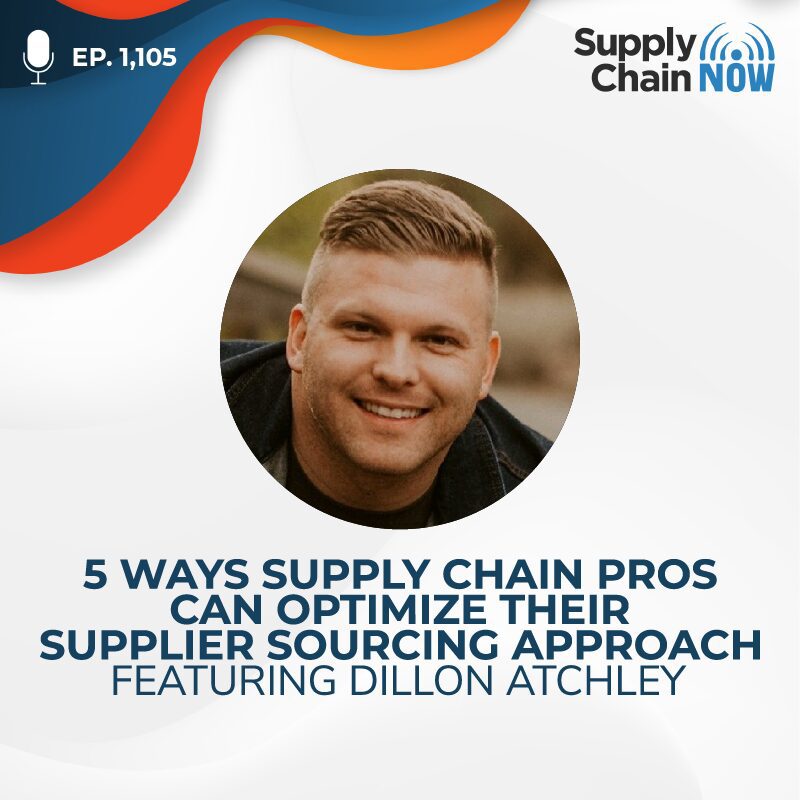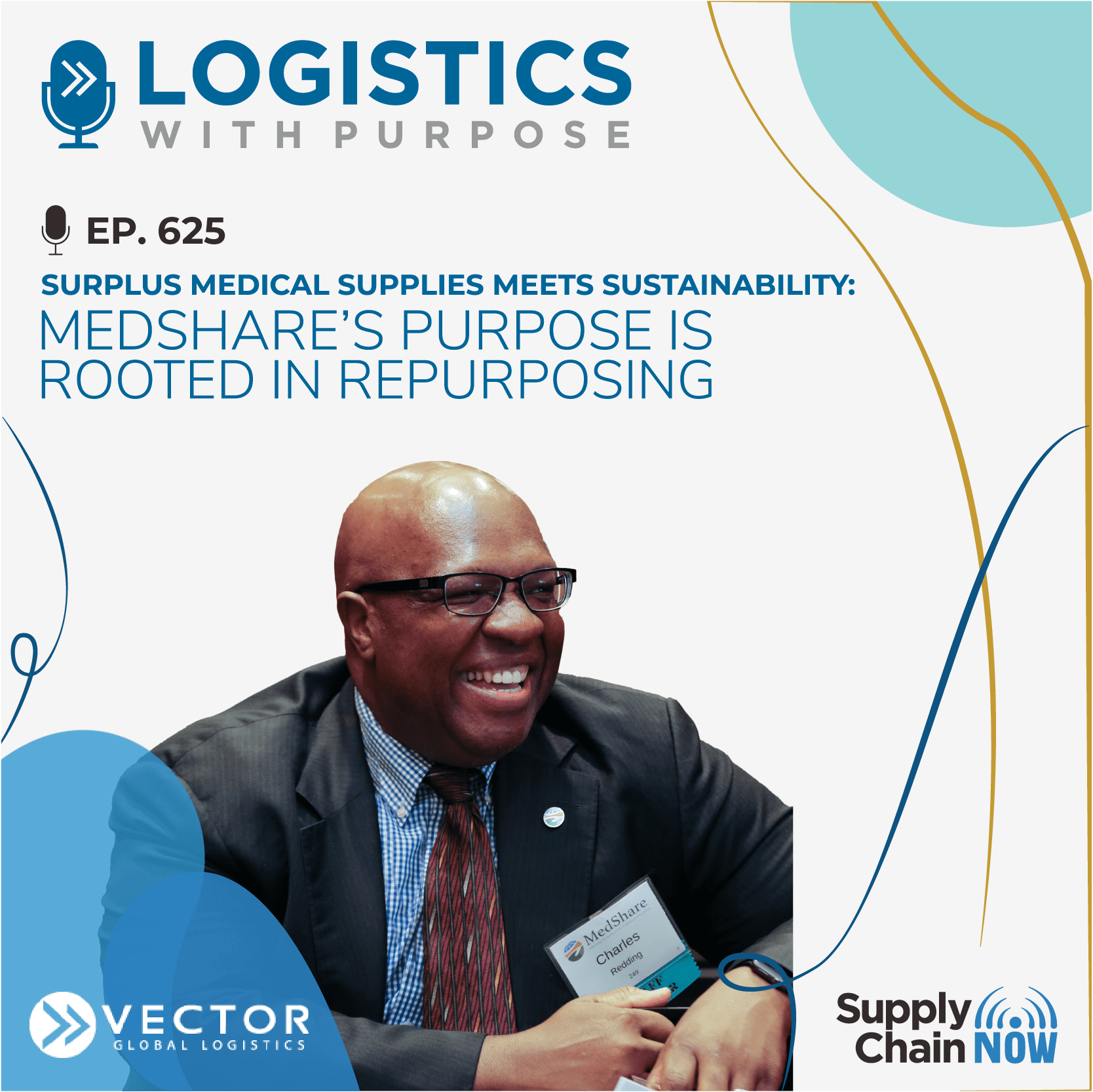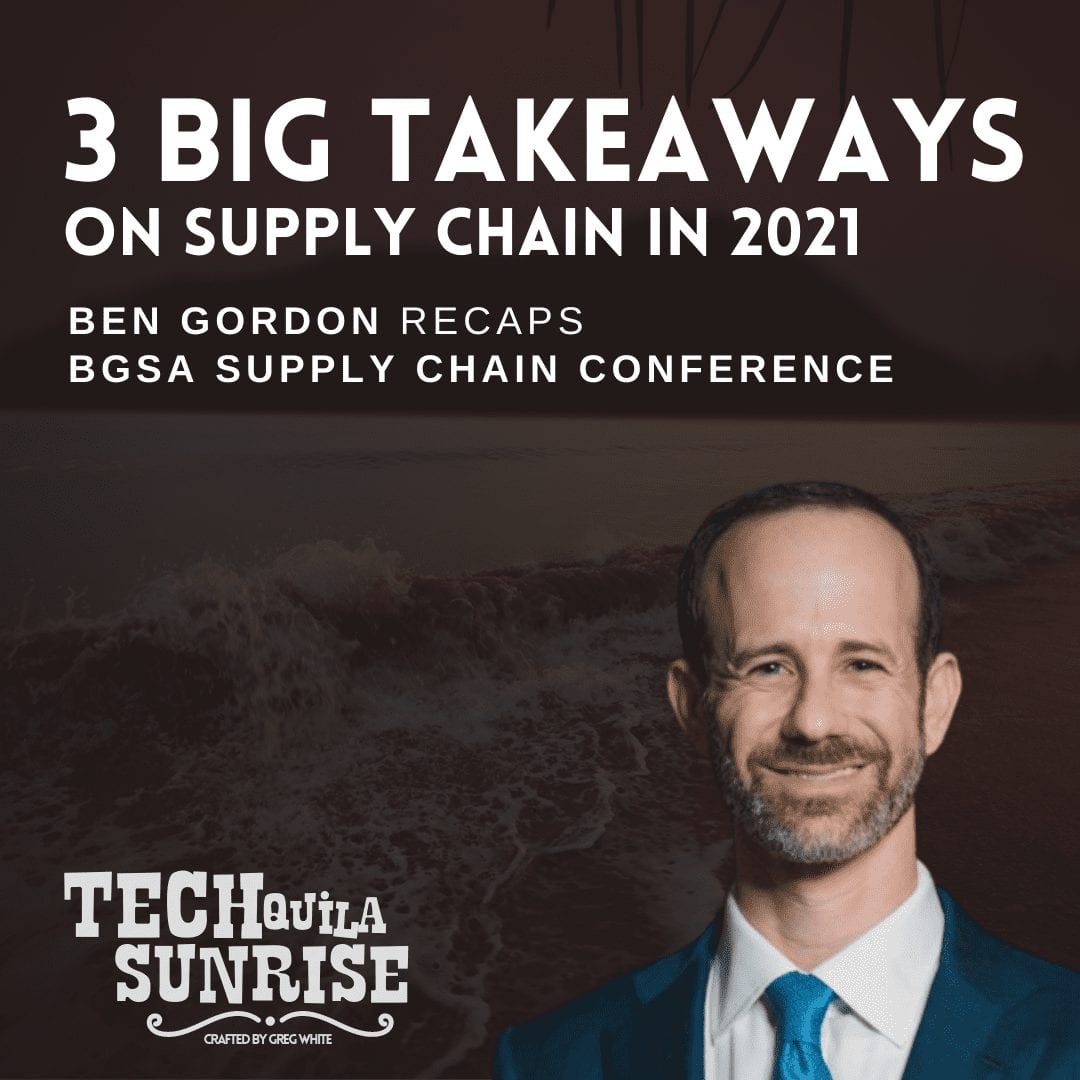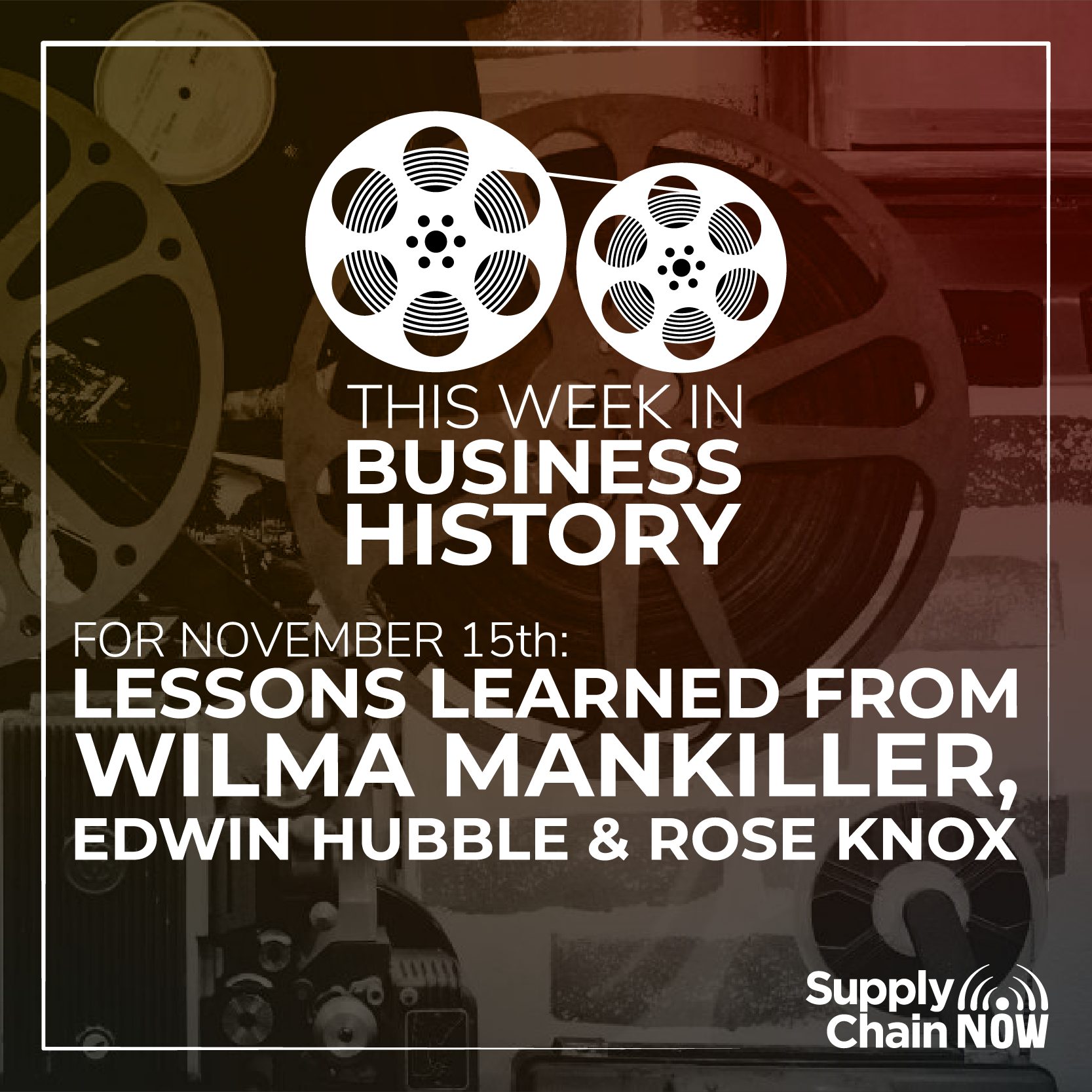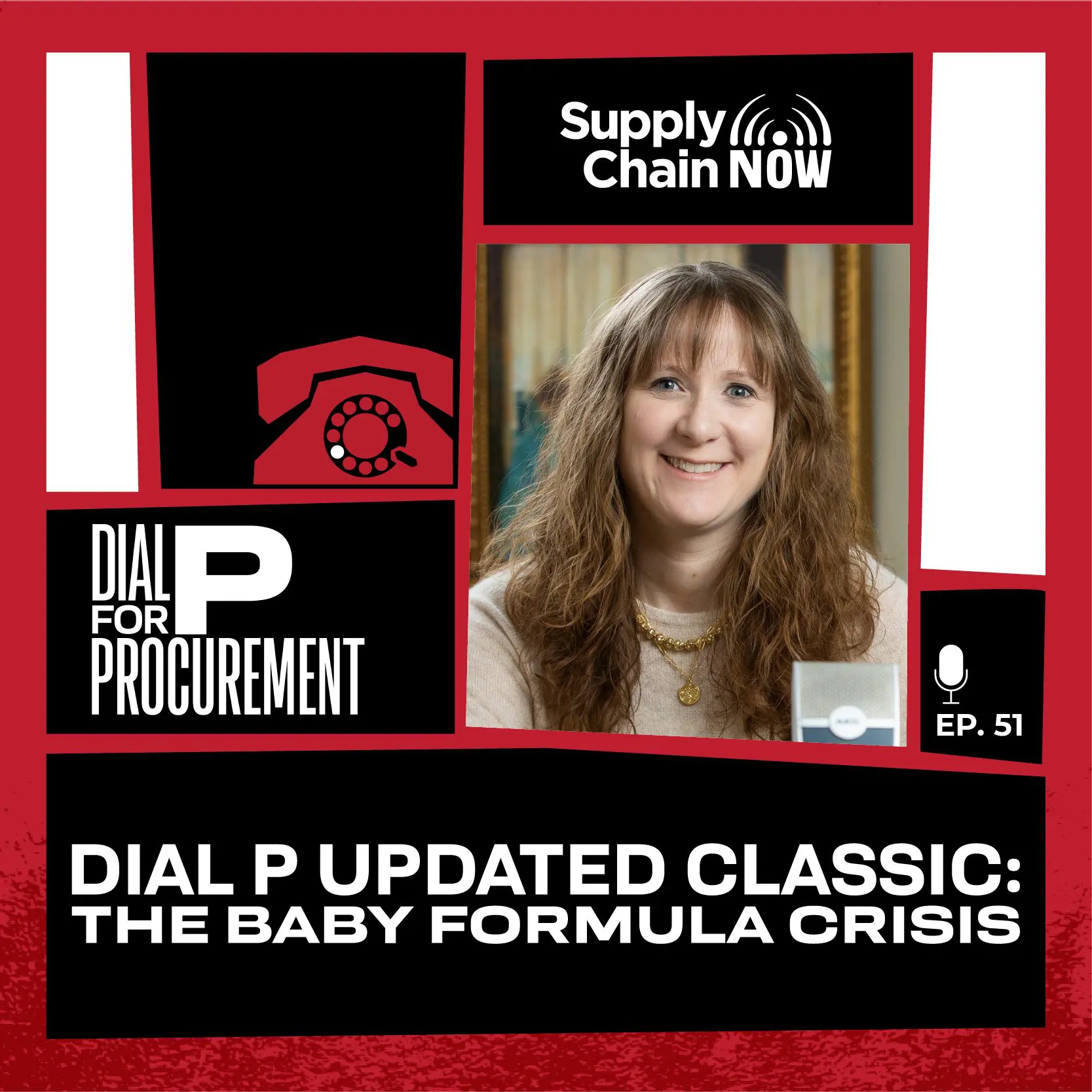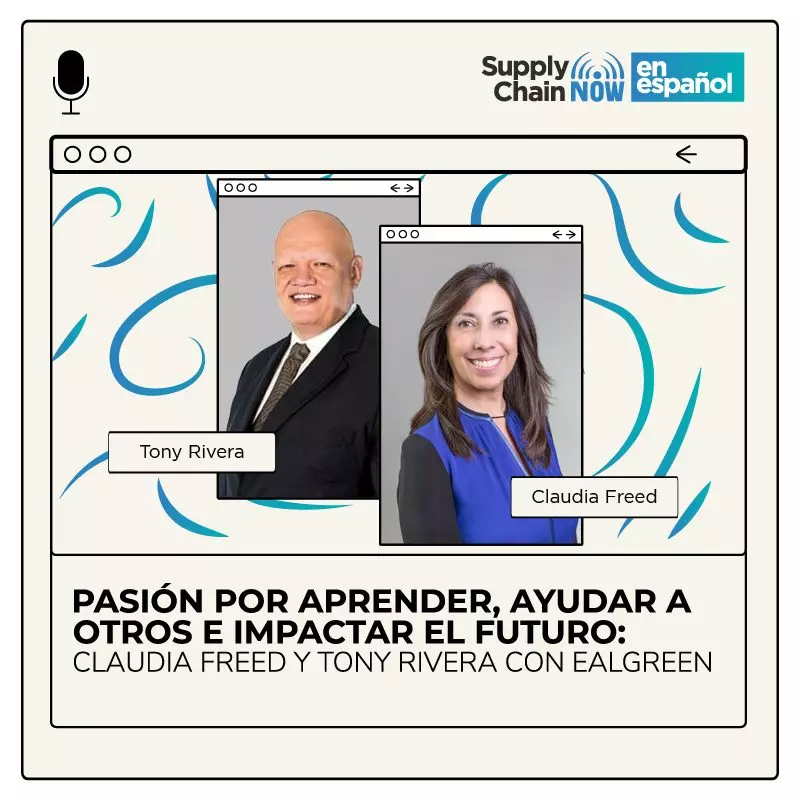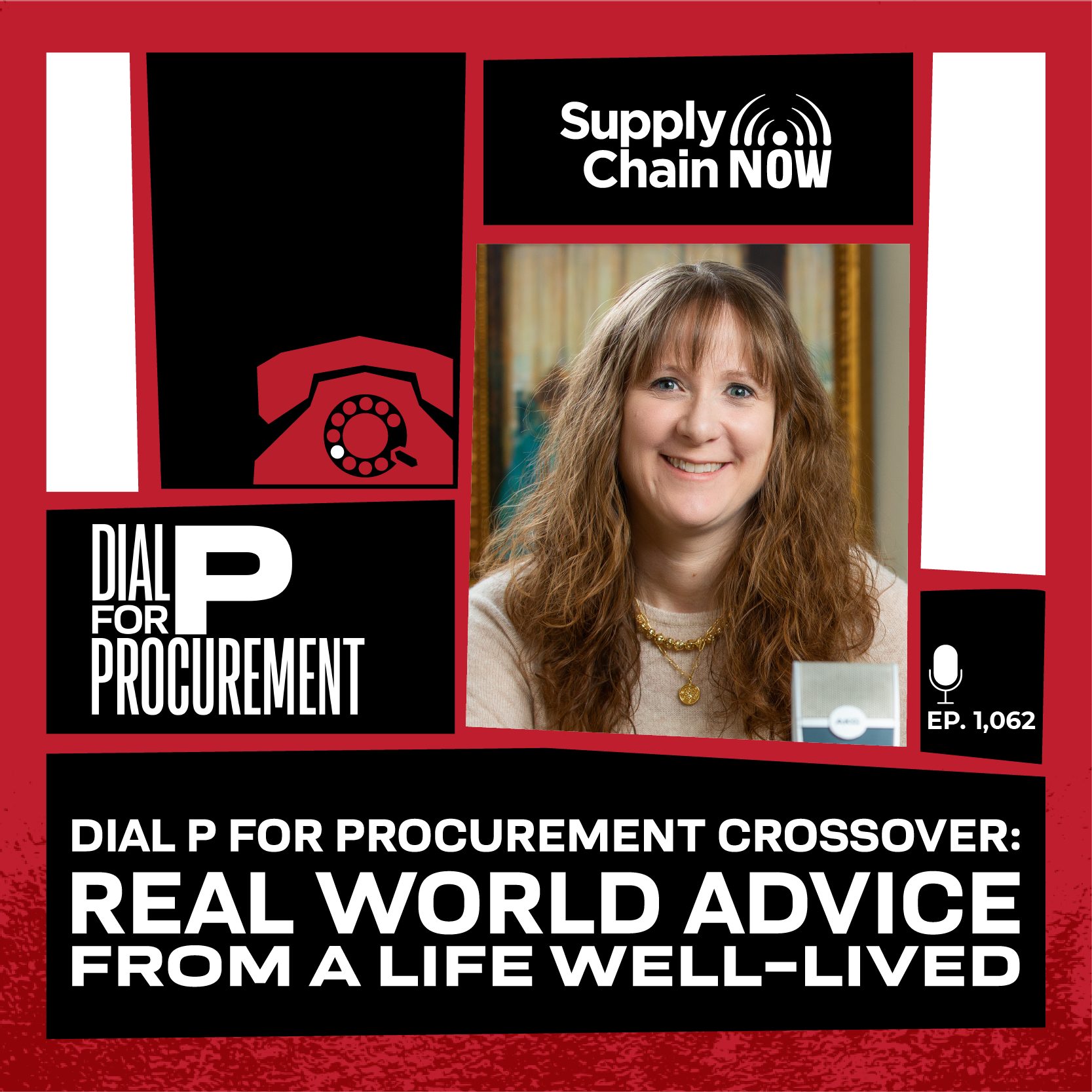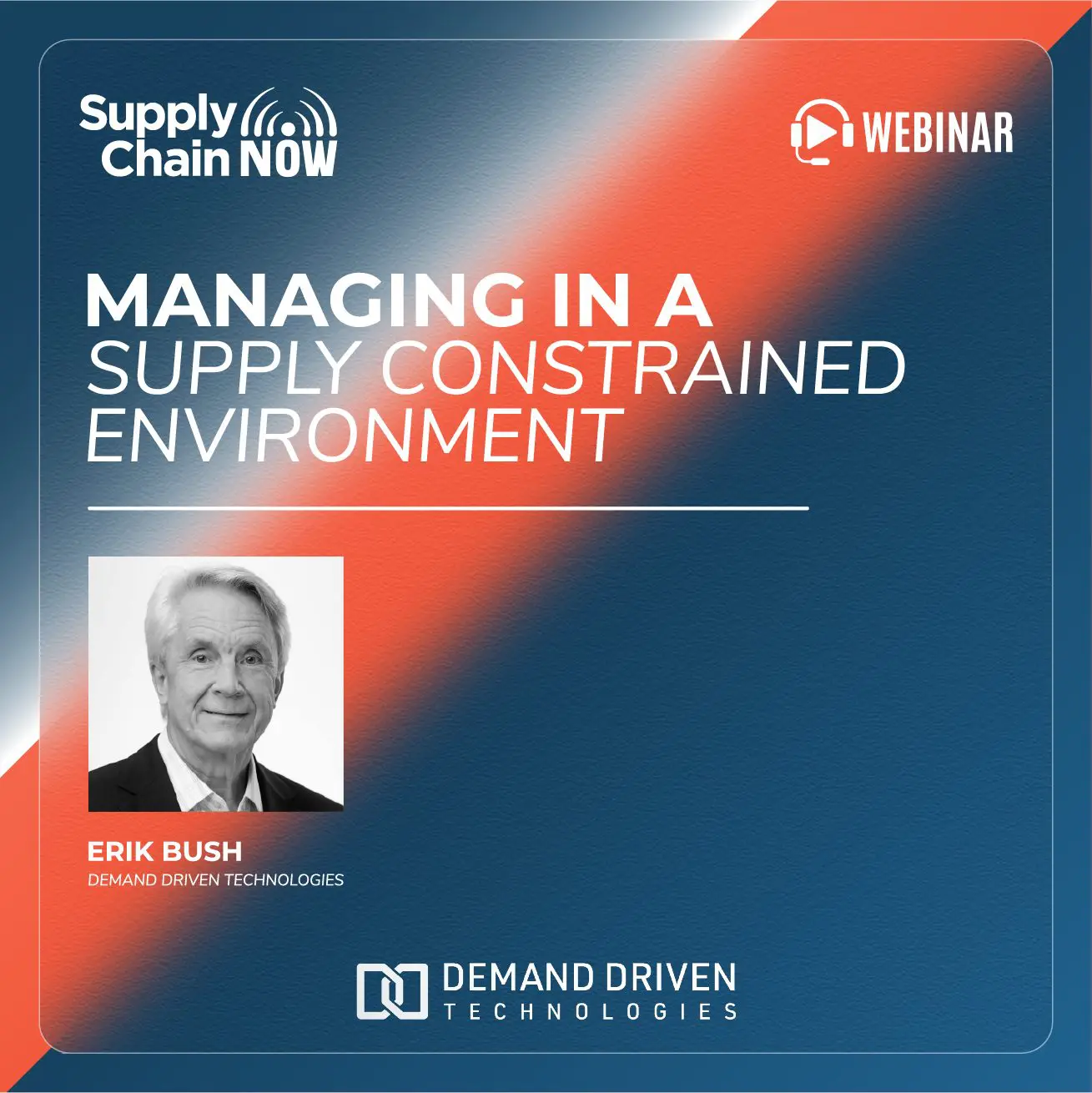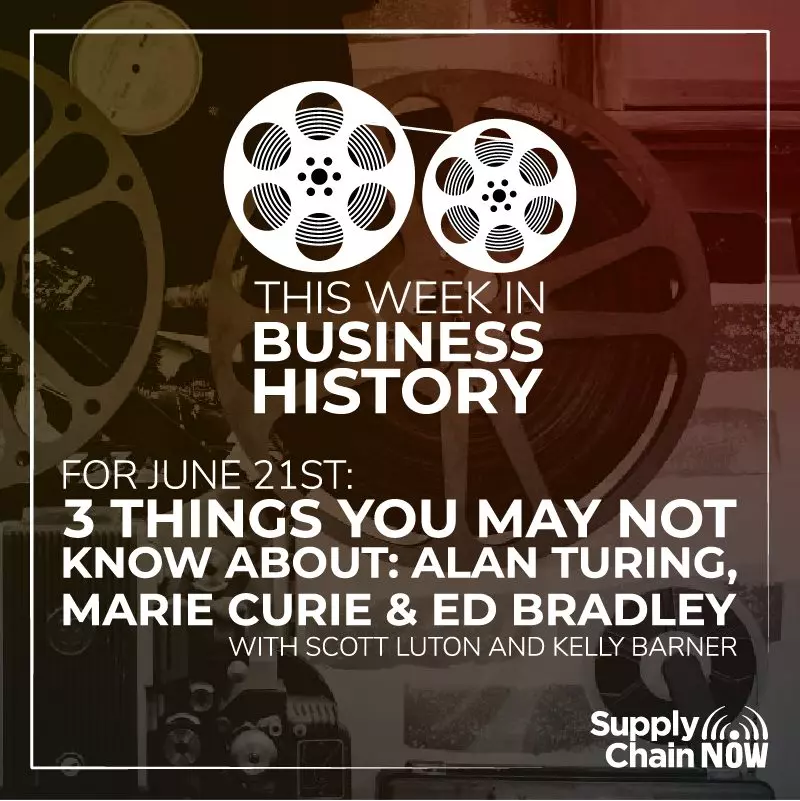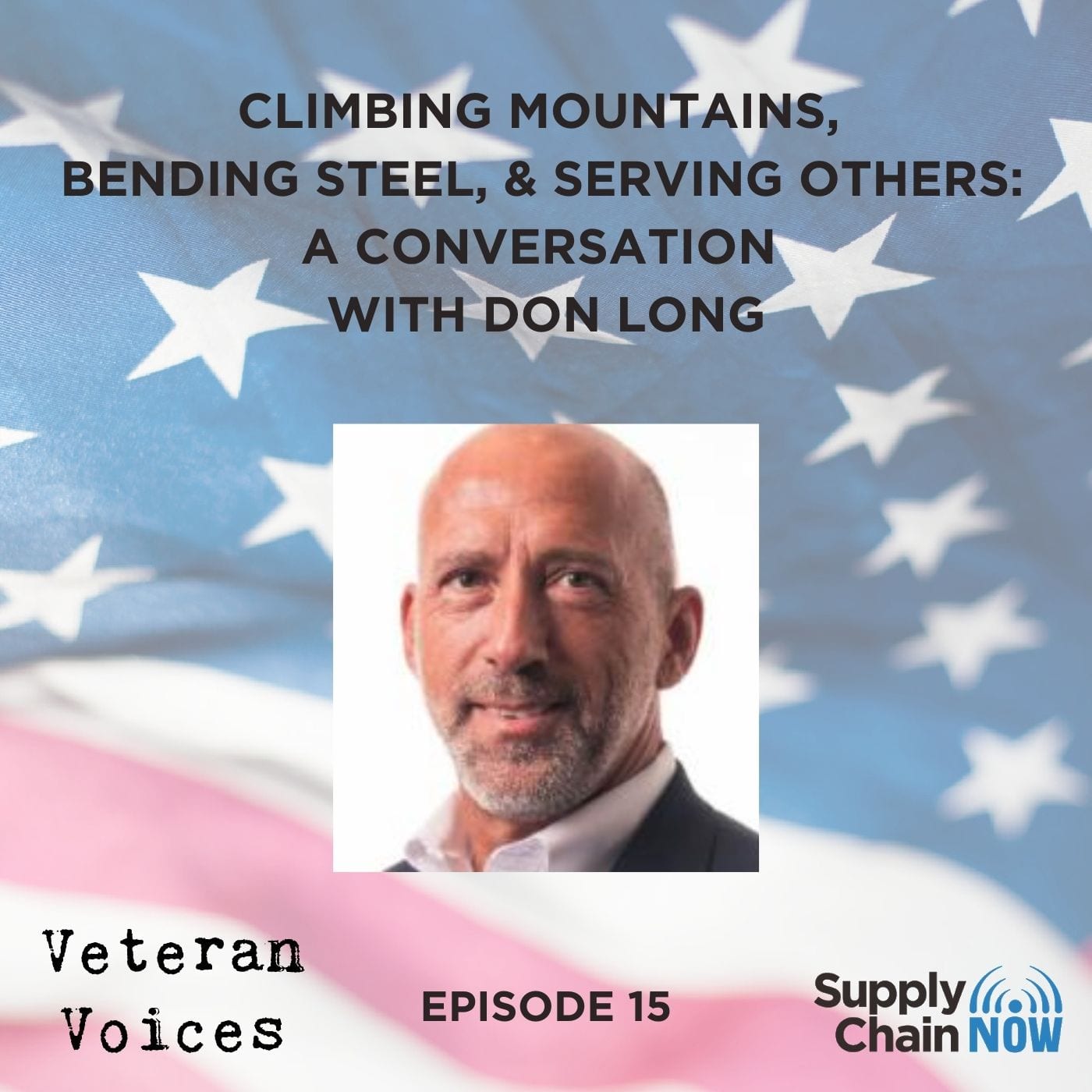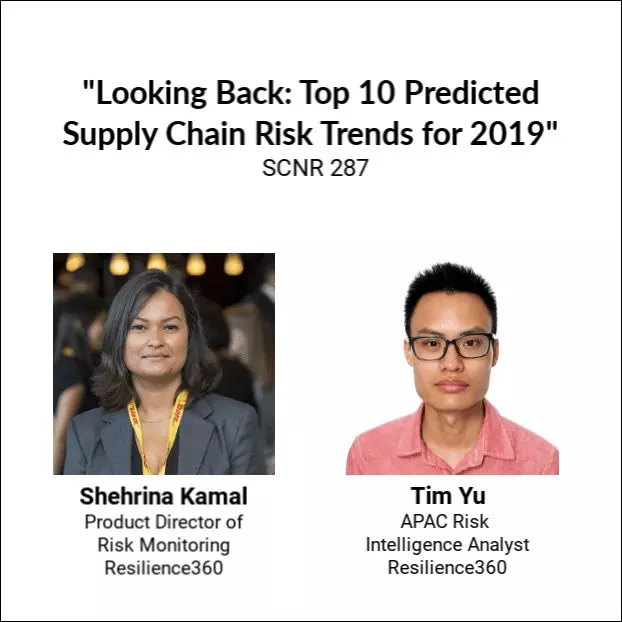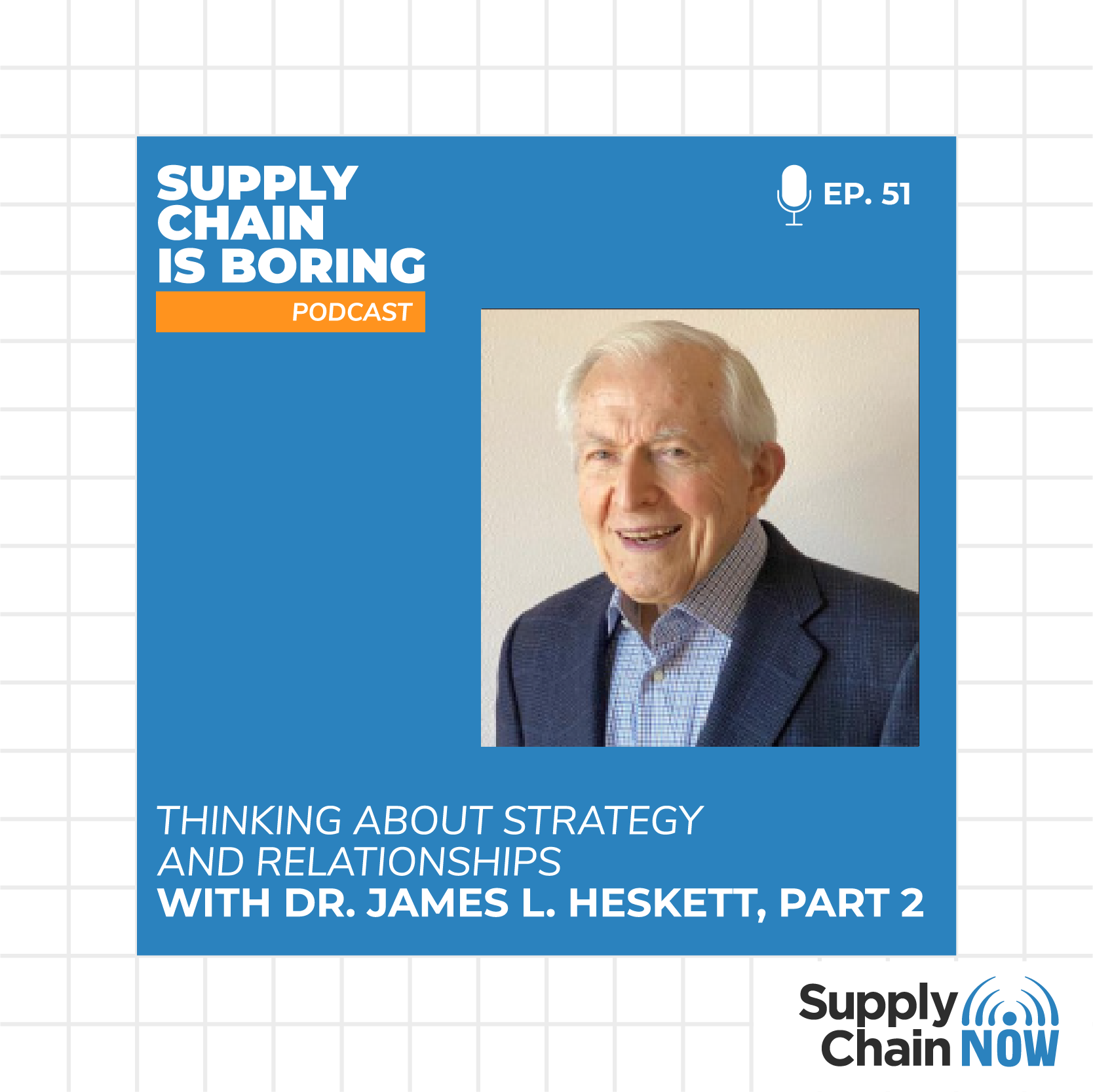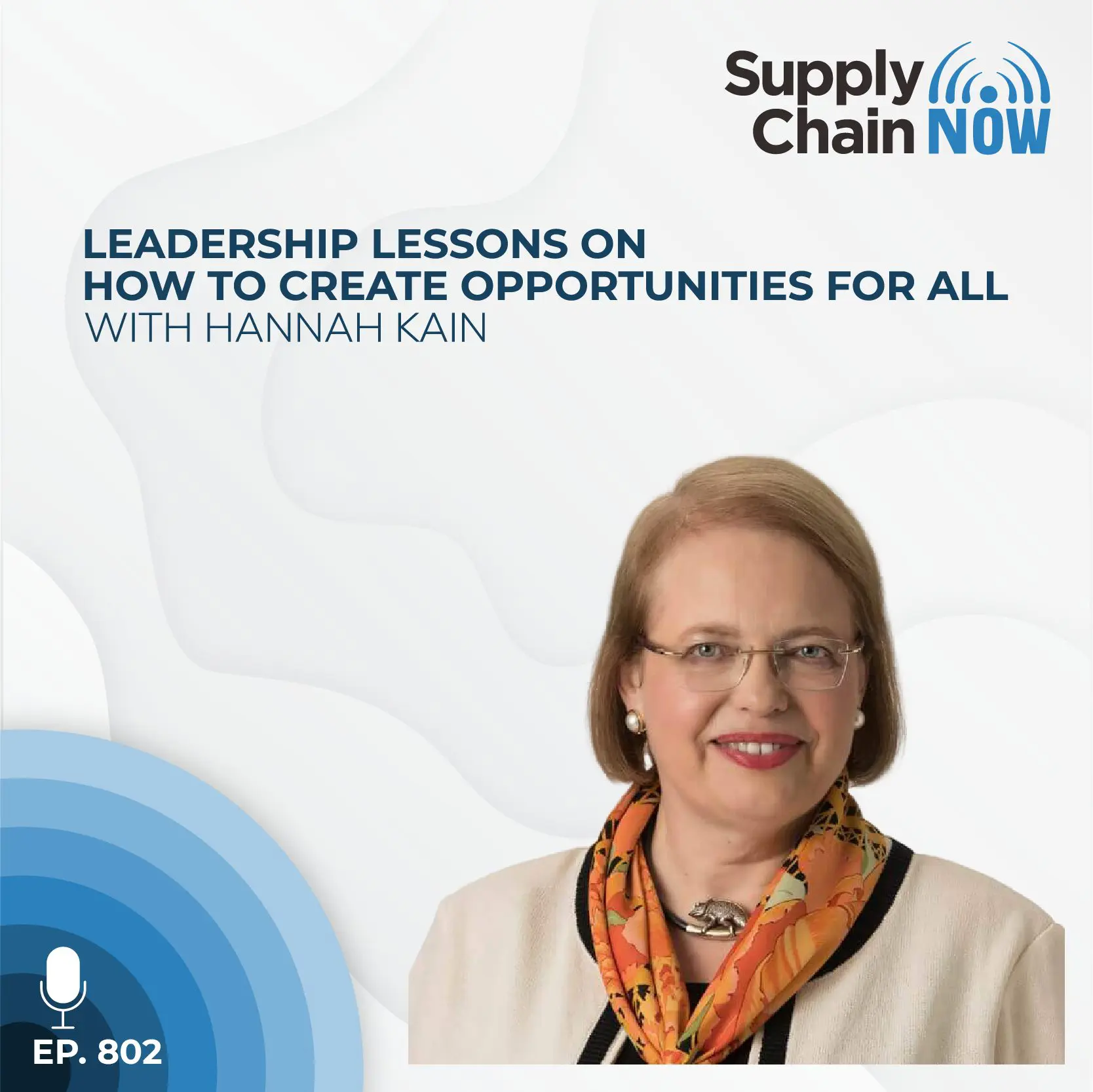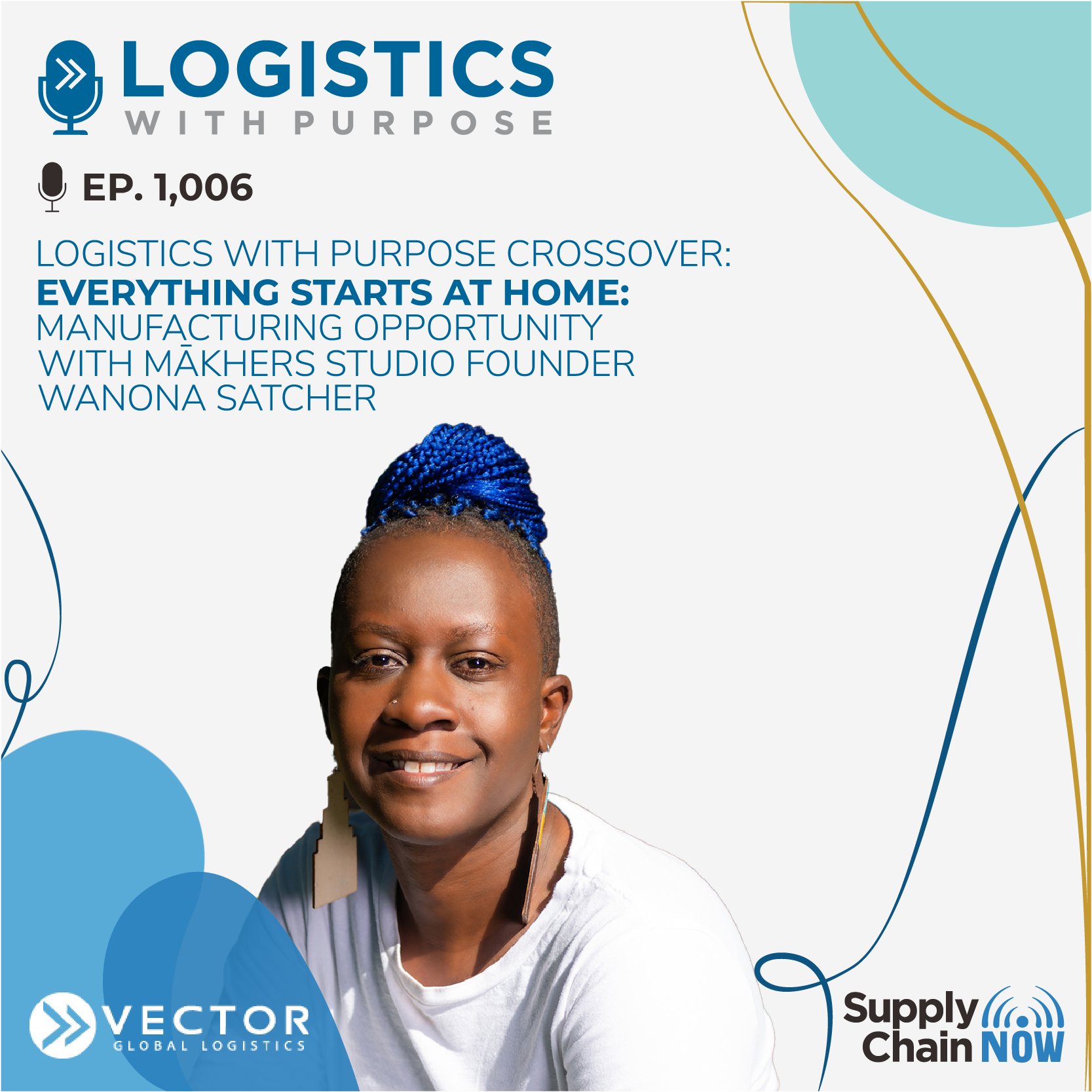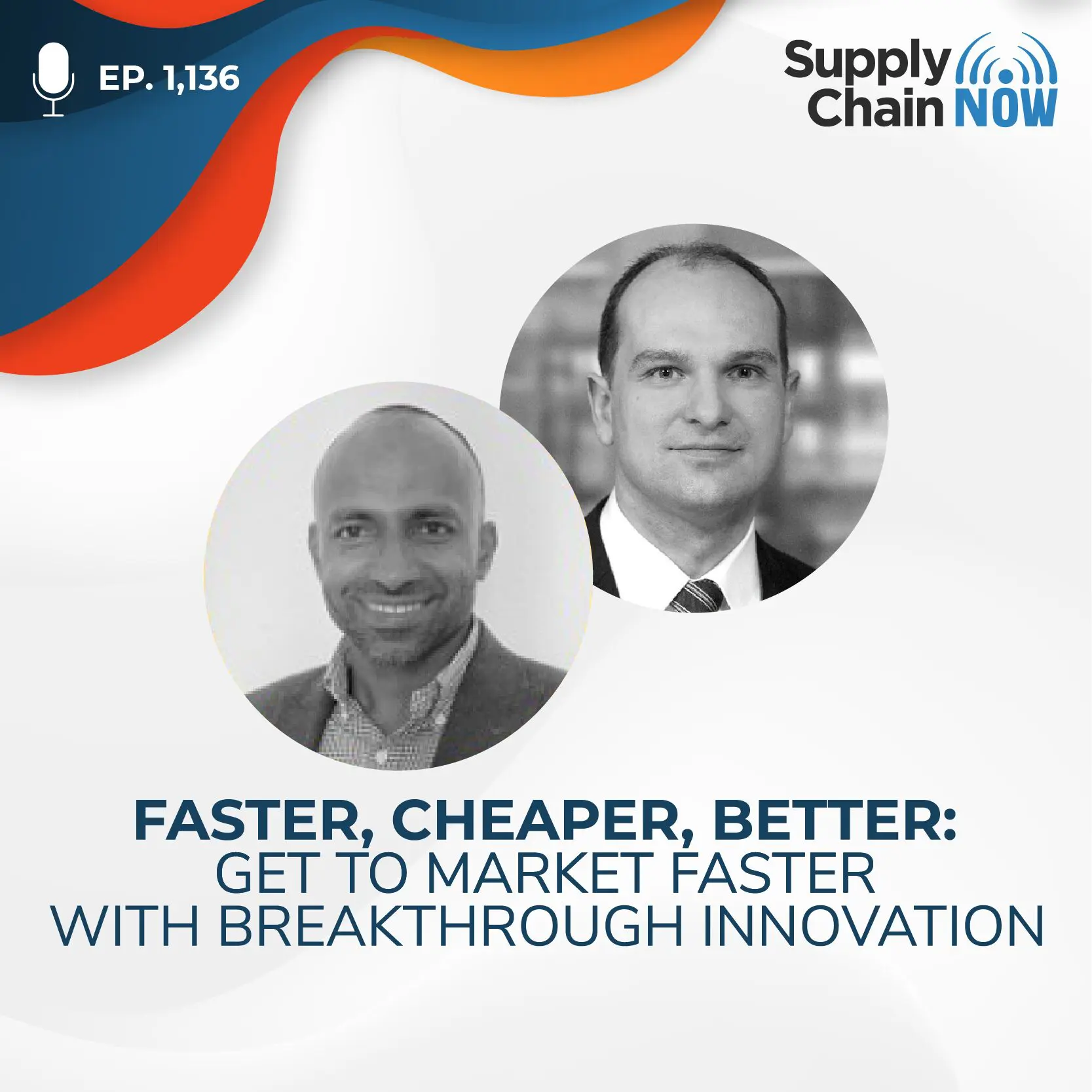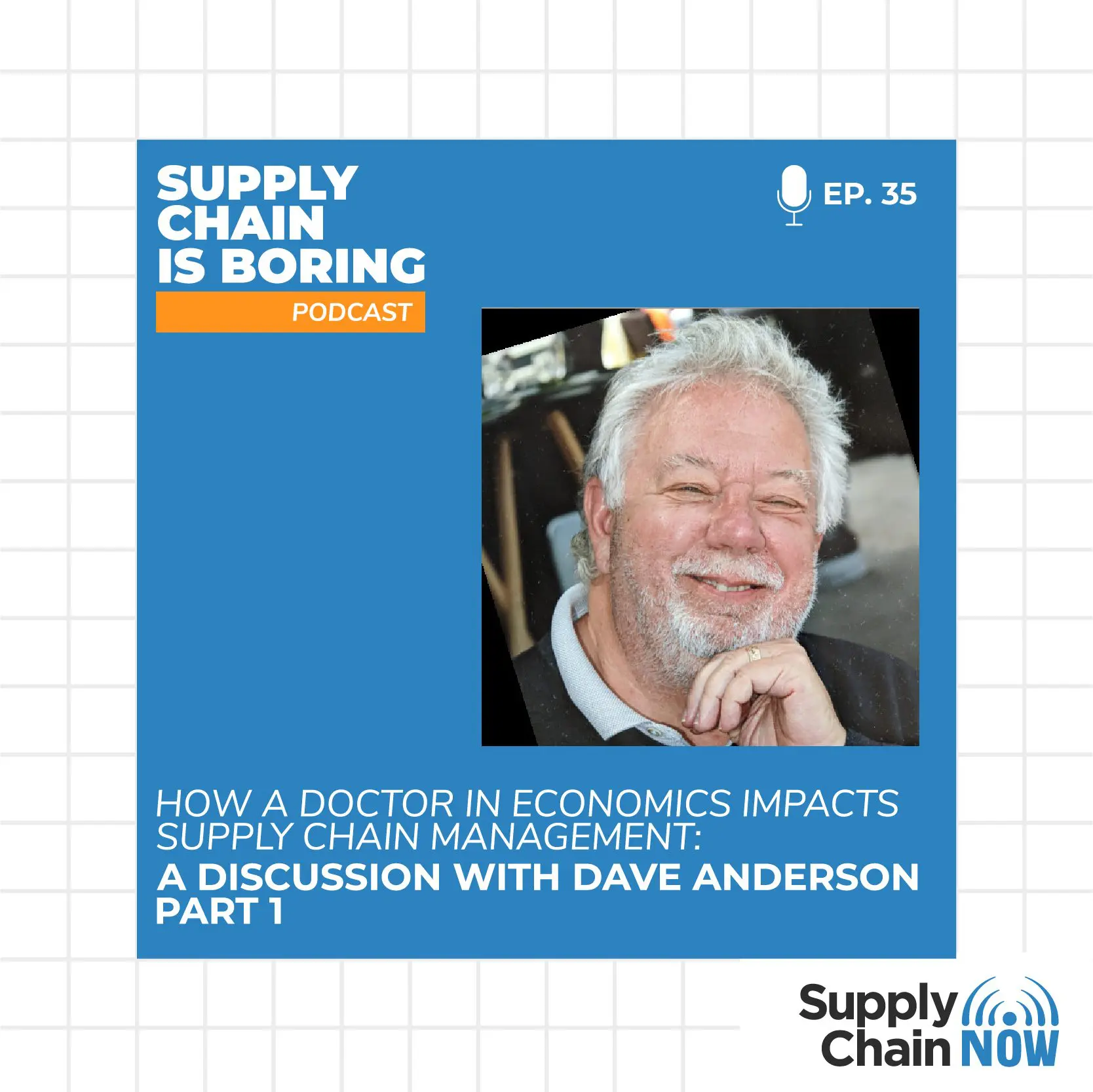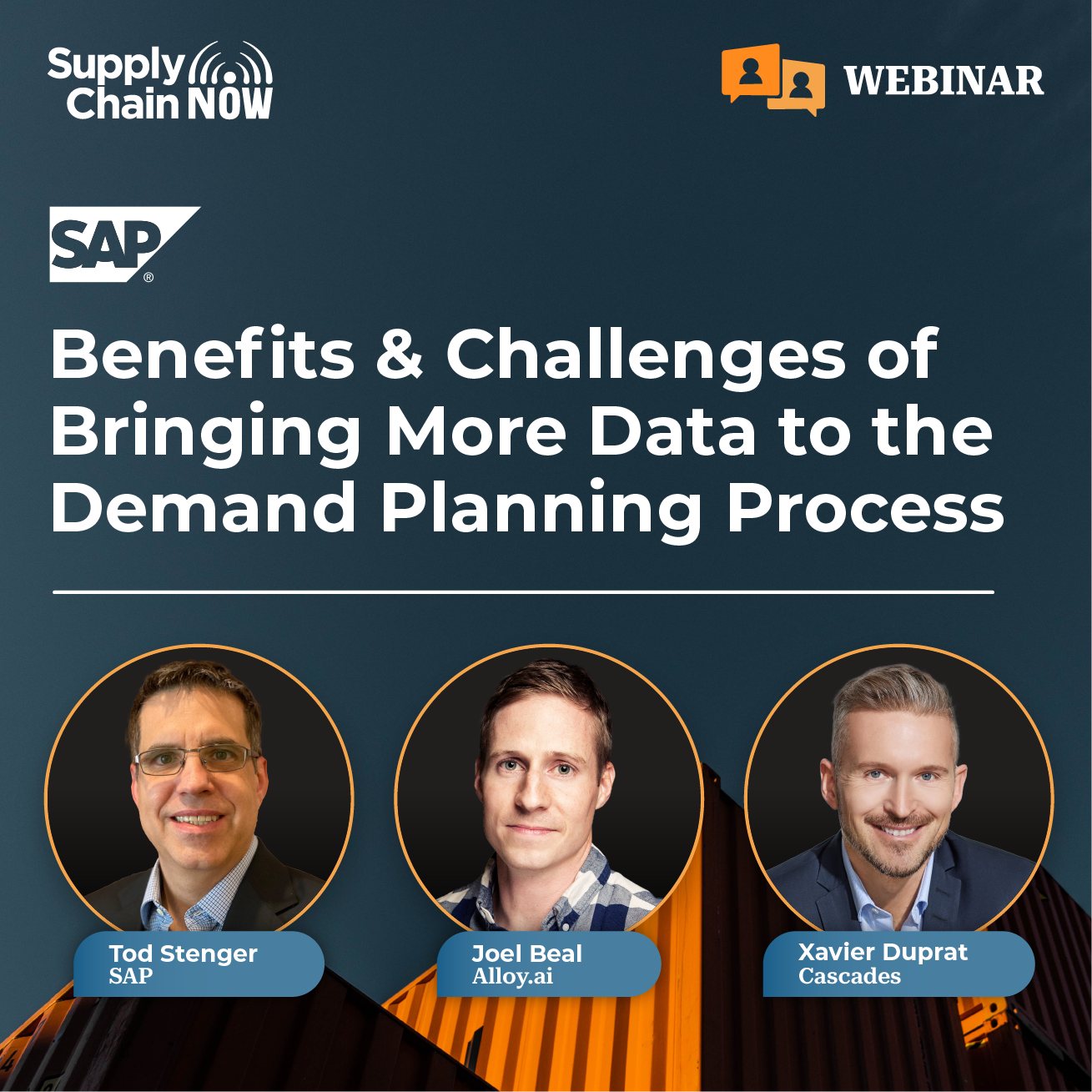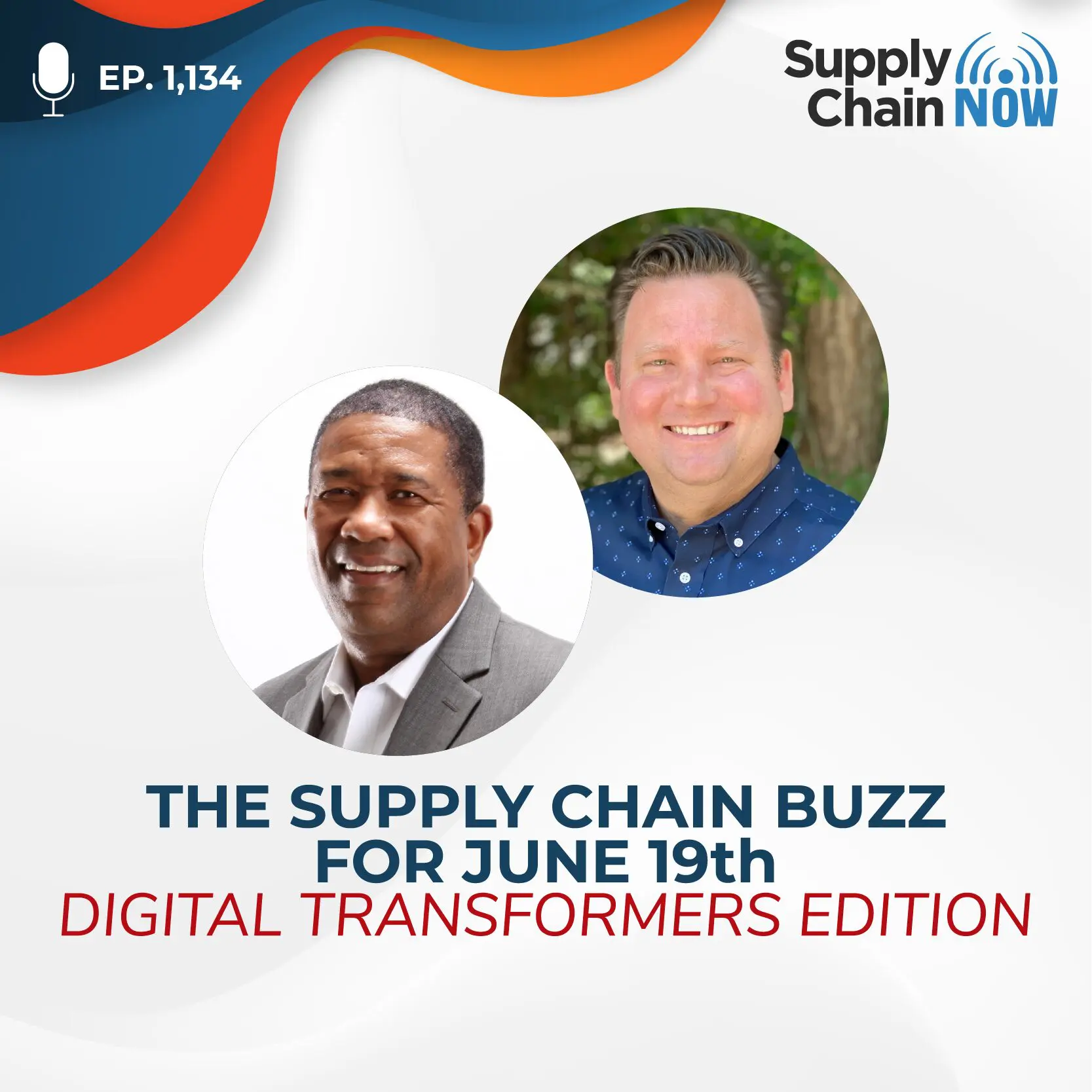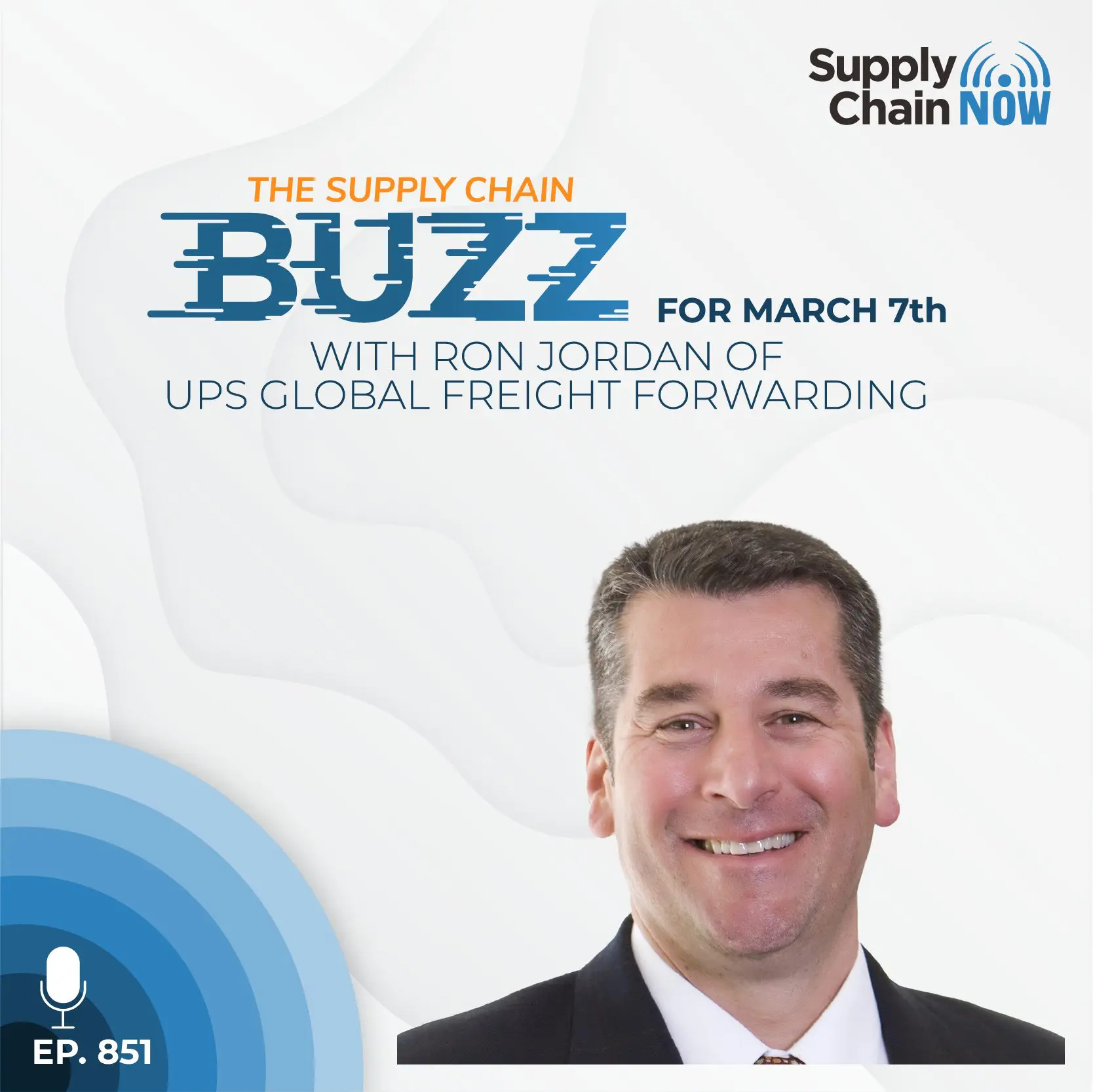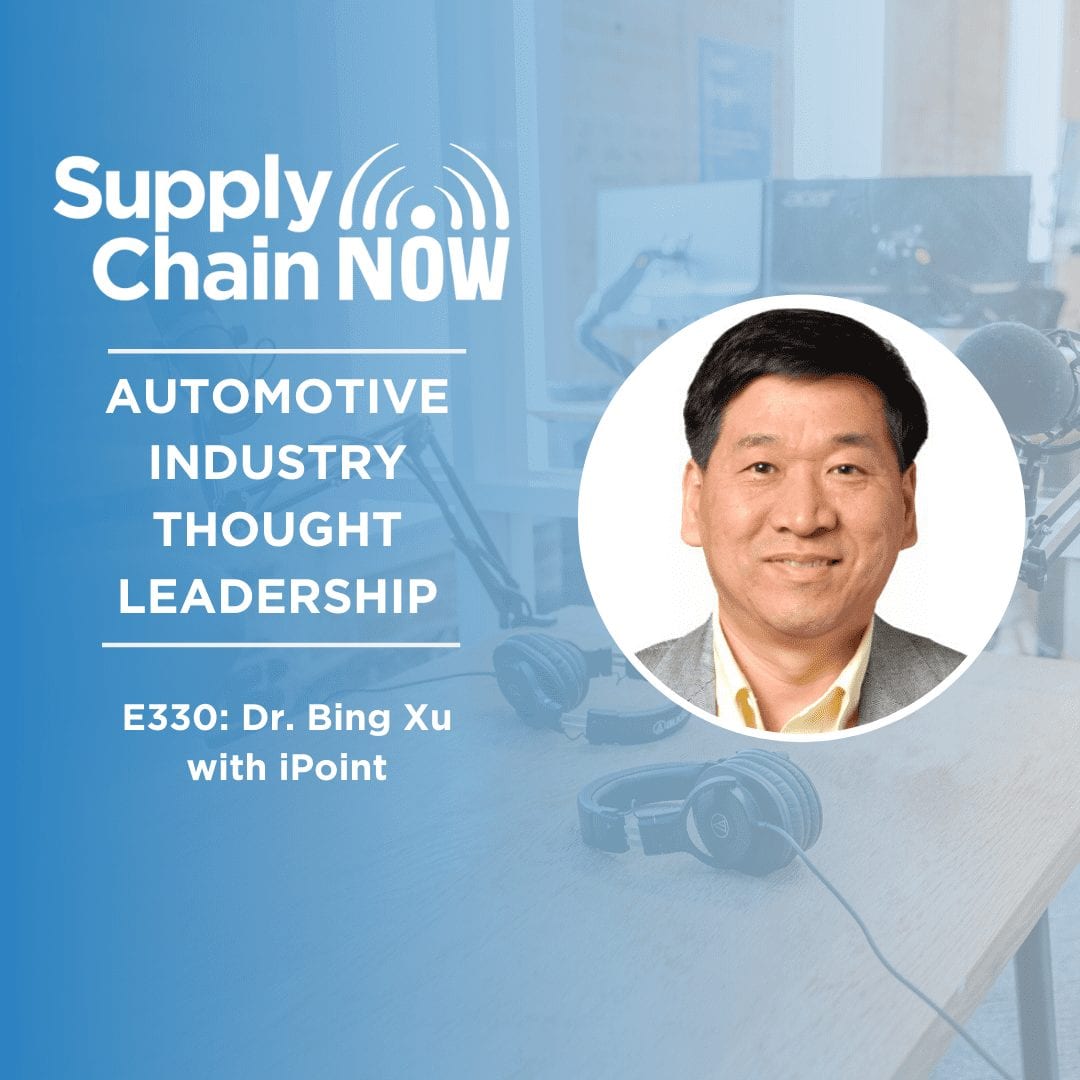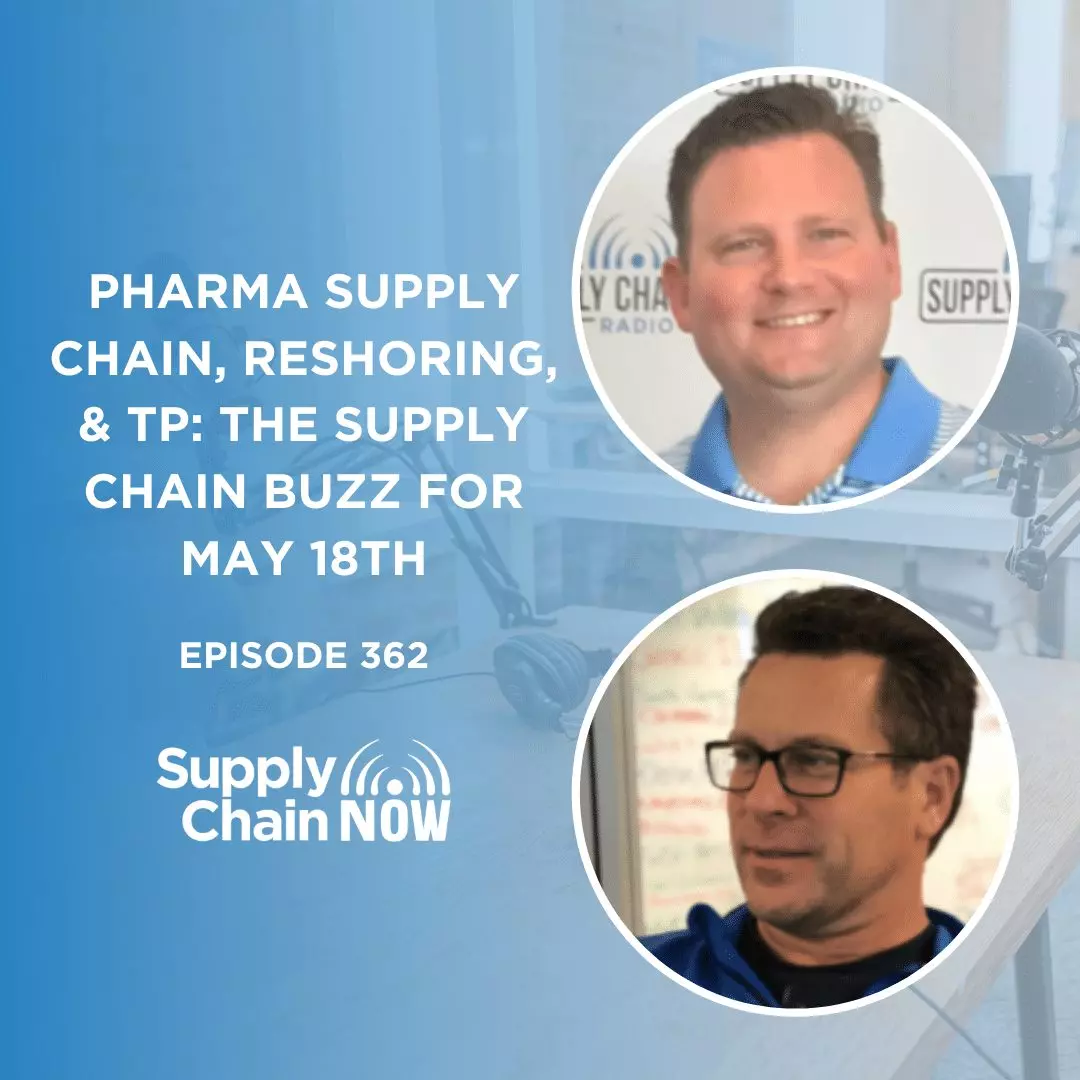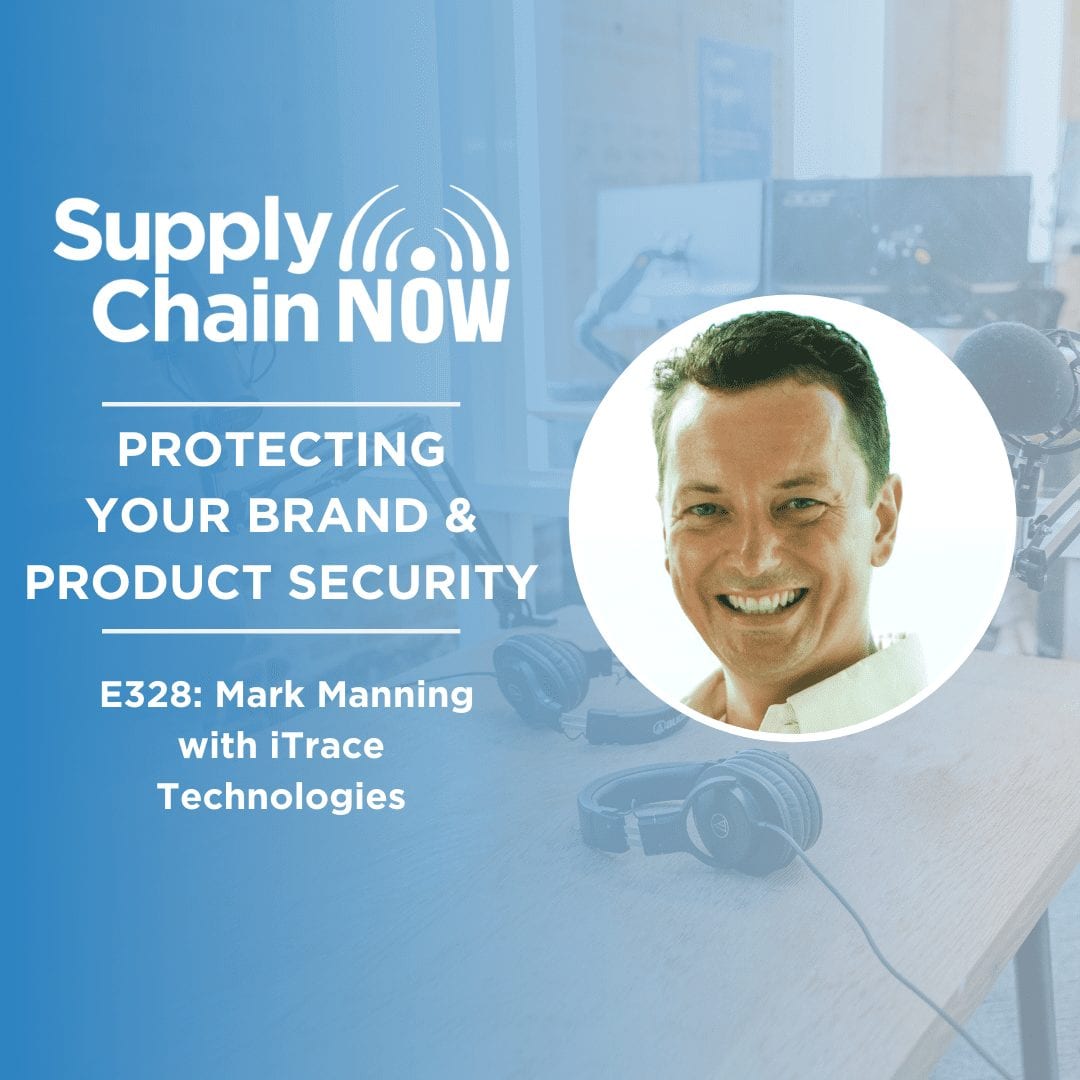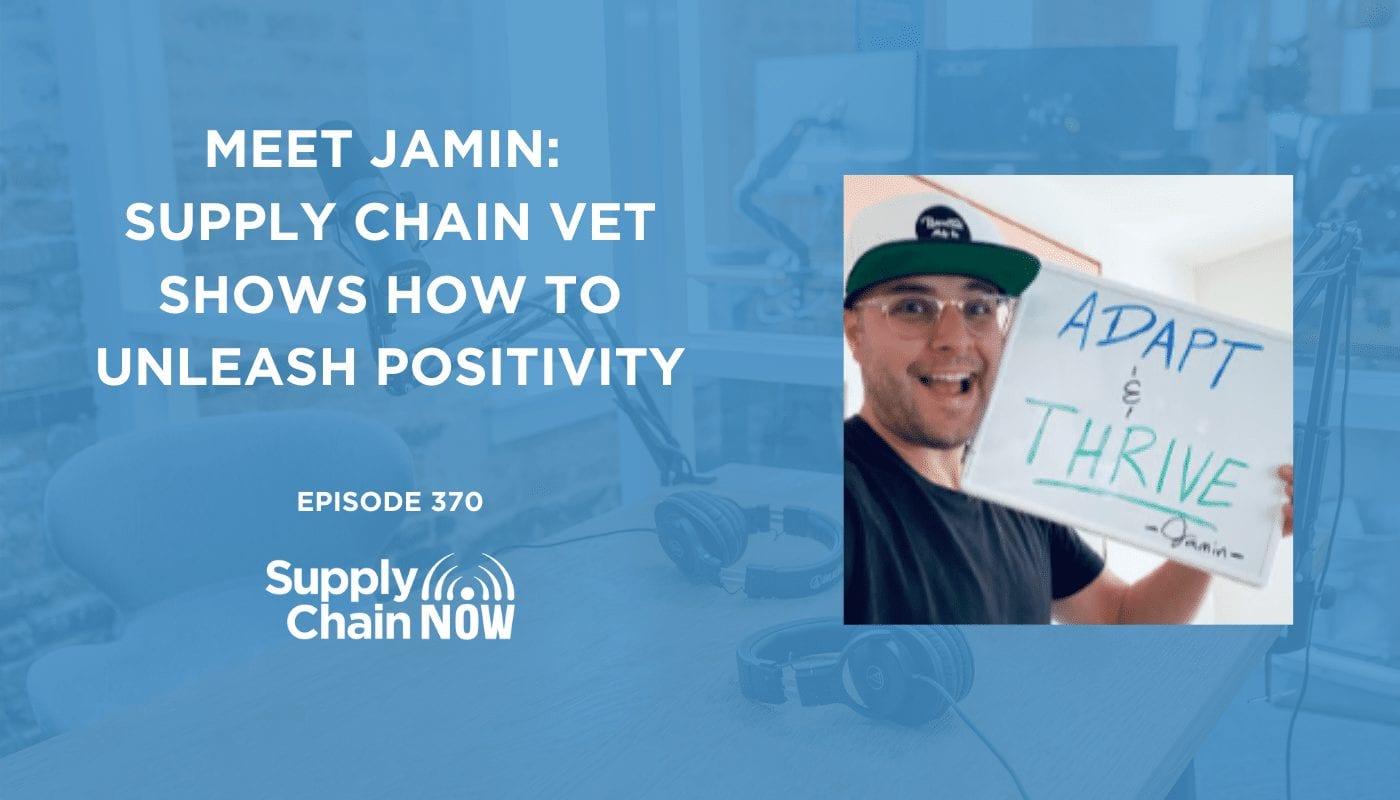
Episode Summary
“That’s what I love about supply chain; the pressure is not on a singular person to have the answer.”
– Jamin Alvidrez, Founder of Freight Tribe
Every leader has to have a vision, and Jamin’s vision is to become the ‘Ryan Seacrest’ of supply chain, bringing people together, showcasing their abilities, and helping them inspire others. It may not be the vision you expected to hear, but it captures Jamin’s unique perspective and positive energy perfectly.
As the Founder & “Dude to Blame” at Freight Tribe, Jamin and his team leverage modern social selling strategies to help carriers win new freight shipping customers, become more desirable to talent, and stand out from the “noise.”
In this conversation, Jamin shares with Supply Chain Now Co-hosts Greg White and Scott Luton:
· Why he thinks people continue to struggle to communicate and connect digitally with others in the industry
· The wild (wild, wild) opportunities he sees for the use of automation in warehousing
· Why he thinks the shift to working from home might actually improve new employee onboarding and the development of corporate culture
Episode Transcript
Intro – Amanda Luton (00:00:05):
It’s time for supply chain. Now broadcasting live from the supply chain capital of the country, Atlanta, Georgia, heard around the world. Supply chain now spotlights the best in all things. Supply chain, the people, the technologies, the best practices, and the critical issues of the day. And now here are your hosts.
Scott Luton (00:00:29):
Hey, good afternoon, Scott Luton and Greg. Greg white with you here on supply chain. Now welcome to today’s show. Today’s show. We have got one of the most unique industry leaders around jamming Alvidrez will be joining us here today. So not only is he one of the most in the know a thought leaders around, but he is one of the more energizing figures in industry. So stay tuned for what promises, Greg. That’s a great episode, right? No doubt. I am so excited. Just having him around makes me excited. I’m glad to join you. It makes us smile a lot more and feel a lot better about ourselves, right? Fellow chiefs fan. Yeah. Member of chiefs kingdom. So that’s right. Well we’re gonna, we’re gonna formerly we’re going to do him right and formally introduce him in just a second. But on a quick programming. If you enjoyed this video interview, be sure to check out our podcast wherever you get your podcasts from.
Scott Luton (00:01:24):
We publish Monday through Friday and Greg, sometimes Saturday. Right. You know, we’re very, very busy people, so we just publish all the time. That’s all right. Well we’ve got all kinds of vehicles now and all kinds of outlets. I mean you can, you can find us on YouTube, Facebook, Twitter, Twitch. Now that we’re not gamers working on it. Well where’s the tick tock? I wish for the ticktock handle improvement opportunities too. That’s what you’re here for. Well, so with no further ado and really kidding aside, you know, we have all these vehicles and publish everyday because we love getting as many stories like this and then as many leaders like this on the show. Yeah. If we did, if we only published once a week, we wouldn’t be able to get to nearly as many of them. So with no further ado, Jammin Alvidrez, founder of freight tribe.
Scott Luton (00:02:19):
Good afternoon. Welcome to the show. Hello. Good. Good to be with you both. Thank you so much for having me. Yeah, well, you know, Greg and I, we’ve been big fans for awhile. Uh, you know, tracking you on social media, love your, your, um, your general approach and demeanor, which we’ll talk about here later in the interview and love you some of your recent work. Yeah. Uh, Matt gains over it. Mmm. Metropolis. Yeah, that’s right. The great citizens of metropolis, Cassandra, Cassandra Gaines and JD have been great. Taught me a ton and, and I’m really enjoyed that. It’s been good stuff. Uh, so, all right, so for starters, before we dive more into business, get some of your thoughts on global supply chain. Let’s get to know you a little bit better. So tell us where you grew up and give us a story or two about your upbringing. Sure. So I grew up in orange County, California, um, and has been my lifelong hope to not be the annoying version of what that usually means.
Jamin Alvidrez (00:03:20):
Um, and you know, I, um, I, I enjoyed growing up here because there’s such a diversity of things to do, so I never got into like just one thing, just being a surfer or just being a skater. I liked the opportunities that good weather. Yeah. Sports to go to the beach, go to the mountains, do it all. What was your favorite sport? Football and baseball. He’d be a tie depending on what you asked me. Yeah. In both of those, did you play a wide receiver for football and baseball? I liked a shortstop or third base. You must’ve been quite an athlete. Well, I didn’t say I was good at either at any. Just like, that’s a great, that’s a great qualifier. I like that. There’s a, there’s a big difference there. Yeah. So I, you know, and um, some of those unique about the way I grew up is uh, grew up in Newport beach area of orange County, super affluent area. [inaudible]
Jamin Alvidrez (00:04:19):
uh, my family wasn’t affluent. Mmm. So, well growing up that had different unique challenges, I didn’t always like, Hmm. Now my perspective on that is I am so appreciative of that because I can really, and we’re not saying, Hey, hang with either side of the spectrum and kind of have an understanding. And I think that’s what really helped me kind of open up to be able to talk and appreciate a wide range of people and really engage in empathy. Okay. Either end of the, yeah. Economic scale. Outstanding point. Uh, I love how that upbringing gave you a greater sense of empathy. And my hunch is your sense of gratitude is probably was probably enhanced as well. Yeah. Yes, absolutely. That’s a, that’s a really good point. Yeah. Kent, you can’t have enough of that if you want to, uh, you know, make, make much of yourself, you got to have, have gratitude or then you just, and the being full of anger, frustration and that won’t get you very far.
Scott Luton (00:05:16):
Very true. Greg, let’s shift gears and let’s talk more about professional. Yeah. So I’d love to know if there was, as we talk about your professional journey, I’d love to know if there was a life shaping moment in your childhood or, or teen years or you know, or early adulthood that kind of, it helped create your worldview and shaped how, how you came to this profession. But tell us a little bit about that. And then take us through your professional journey. Yeah. So this probably speaks really honestly to who I am, uh, in that I’m slow. So this moment happened in my early twenties when most people probably happened in their teen years. Right. Uh, it was, uh, when I moved to Kansas city, I just got, for lack of a cooler way to say it, just tired of being an area where people were presuming to be cool or better than other people just because they were from a given area.
Scott Luton (00:06:16):
No, obviously I’m speaking to not everyone’s like that. That was the vibe I was picking up on. And I have family in the Midwest. I grew up going out there and just always loved it. It was the people that I ducked. So yeah, my early twenties, I was like, man, I’m going to just try something different. My uncle was generous enough to say, Hey, come on out. You can stay with me. And, uh, essentially explore, see what you think. So out to, uh, from California to Overland park, Kansas. I went [inaudible] Oh man. I just fell in love with, uh, the Midwest and Kansas city specifically. And that is when by accident I fell into supply chain. Okay. Yeah. You know, out there, didn’t really know anybody, just start interviewing. Um, I had a background [inaudible] in sales, like talking to people. Mmm. And so I was interviewing for those types of jobs and I came upon a freight quote and that was in there. This was about 2005, 2006 so they were still pretty fresh company. And at that time, you know, they were really on the cutting edge of, of technology. So I came right as they were. It’s starting to expand and add to the team and started in sales and I was awful.
Scott Luton (00:07:36):
I can vouch for that, I can empathize with that. Likewise. What, what made you so bad? Well, and this is where, you know, you would ask what was kind of a, a life altering or, or changing type of deal. And it really happened in this process of moving from California in the Midwest. You know, just by nature, having to get to know myself better, totally out of my comfort zone. I didn’t know anybody. So even just meeting new people, explaining, Hey, who’s [inaudible]? And then, um, as I was doing this, this new job in a new industry, and I get called in six months in and said, Hey, Jaman, uh, you were fired from sales. Now how you respond to this next question. It depends on if you’re fired from great quarter, not. And uh, so this is kind of the next evolution for me. They said, Hey, look, you, uh, you have a good attitude and, uh, you show up on time, so we want to repurpose you.
Scott Luton (00:08:37):
Okay. And they, at this time, previous to that, they’ve kind of been, uh, really focused on the less than truckload mode and they were like, we’re going to start building out, um, and trying to capitalize on the, uh, full truck load freight that’s coming our way. So we’re building out a team to talk, negotiate with the truckers, start those relationships with, uh, capacity. And so for me that is when the industry supply chain, what a third party logistics provider, what value they could bring. That’s when it all just, my mind opened up what it was because I was getting educated on the industry by the actual truckers. I was talking to mm. By those, uh, on the doc level or those doing the procurement of the transportation and getting to see it from behind the scenes. And I’m like, Oh, I understand. We do. So I was just awful at sales because I didn’t understand why what we did.
Scott Luton (00:09:38):
I didn’t even fully understand the part we played in the supply chain, all of that. And it was the very, uh, and I don’t mean this disrespectfully, but the very ground level, the varied, yeah. Of course, level of our industry train me up, taught me, and just really opened my mind. So that was a very, this kind of starts that the question of my professional career, but also to answer your question, Greg, about pivotal moment for me. Yeah. I was repurposed. So there was a leader, uh, that’ll never forget Lori Whitman. She saw something in me. And just cause I sucked at the given job I was brought on board for. Yeah. That wasn’t the end of the matter. I wasn’t seen as just a title. There was a per a person there [inaudible] she was going to see how to get the best out of me.
Scott Luton (00:10:25):
Okay. And so I’ll never forget that lesson. Love that. And then being trained, like going out and not relying though their training and onboarding, they did a good job. Right. But it just wasn’t in a language I spoke or it wasn’t clicking due to, you know, so maybe I learn differently. So then going out and talking to people and, and learn that way, there’s just no excuse to not go educate and learn. And um, so I really learn the value of that. And then third, you know, you don’t have to learn from the people call themselves the experts or that are at a high level. I have a certain title. Mmm. A lot of tons of people actually touching, doing that, doing the work that can teach you. And you can reverse engineer from, from there to more of a, a macro level. But sometimes getting in that micro, it can be real beneficial.
Scott Luton (00:11:20):
And that that’s when I fell in love. And ever since then I’ve been hooked on, uh, on supply chain and the people in it of it. Well, you’ve got to have a curious spirit, which you annunciated there. And often it’s best to learn the value you present to the marketplace from the market you present it to. And if they’re talking about truckers, you learn from truckers, right? I think so often, you know, when, when people are in a sales environment, so offering often, Mmm, you ought to try this. This is something that a great teacher taught me once hum a song, right? A song that you know, and in your head you hear the tune, you hear jingle bells or, or you know, or happy birthday or whatever. Mmm. And then drum it out. Like drum out the melody on, on the table and you’re still hearing it as you drum it out.
Scott Luton (00:12:15):
But the person that you’re drumming it out for, they have no idea that frame of reference that’s in your head. So you have to get outside your own head. Wow. Yeah. And actually hummus for that person or hear it from that person to be able to communicate. So you know, little tips like that. That’s exactly what, what was her first name? Laurie. Laurie Whitman. And that name sounds familiar. Not like everybody from Kansas city knows it is what I, that’s what’s new. Frankly. She must’ve seen something in you to give you that other chance because that’s not a natural thing that happened to you. And you want an, when you say pivotal moment, one of the things you’ve got to think about, is that right? I know you really appreciate that. We just have to share that with the audience because they may not no that right.
Scott Luton (00:13:05):
We know you fairly well. But um, yeah, that was a great gift that she gave you. Yeah. Calling it a gift is the perfect way to put it. Cause that’s truly how I feel about it. Yeah. And that’s what I really, you know, you say that sometimes Greg. No, and I watched these is that, I think you put it the gift of naivete. Yeah. Or some version of that. And essentially that’s what I’ve tried to hold onto is yeah, that curious kind of spirit. Yep. And so, yeah, from, from there, I, you know, I really just embraced it, started opening my mind. Mmm. And so I did, you know, did really well at, at Freightquote enjoyed it. But, uh, often as these stories go, Mmm. Was getting homesick after a few years, a few years. So like after some winters, California. So how long were you there?
Scott Luton (00:14:01):
Four years. Okay. You became a chief span in four years. Yeah. And it wasn’t during that pivotal moments. So I gotta ask, I gotta ask Jameson, who was, do you remember who was quarter give us, was this, this wasn’t during a Christian days. That was the mid to late April. Let’s see. Is Elvis [inaudible] and then, uh, then they went through like Brady Croyle and some of the randoms. It was some lean lean times, but again, the pot, just to be that annoying, positive game in Heward in the lean years, you even had to make the tailgating even more of a spectacle. I love that. I actually fell in love with, first is the tailgating and the hospitality. During a couple of years when I was in Wichita, I had a great opportunity to take in a chiefs Broncos game at Arrowhead. And you know, growing up, know I didn’t go to many football games growing up, but, uh, as a, as a young newlywed, we had season tickets at Clemson football back before this run that the tigers have been on.
Scott Luton (00:15:08):
Uh, and that was kinda my, my football experience. Right? The big environment, of course you’re taking Falcons games, right? It’s just not the same. You go to Arrowhead, especially against the Broncos. And they were so much energy in that stadium. It still sticks with me because it’s such, it is, it is so much. Um, there’s not as much passion. You’ll find a much passion and a lot of pro sports, like, like what I experienced there and that chiefs game. So no wonder you got hooked. Well, and that’s the, I’m not trying to make this apply. It actually just jog my memory. Uh, that is what I fell in love with and gleaned from my, my initial, you know, in Kansas city is those people, they, they go all in. I mean, they’re all in, they, uh, are behind their team there. They’re wearing the gear there, cheering and they are really in the moment when that the chiefs are playing a Rose or whatever it is.
Scott Luton (00:16:05):
They get that passionate about their, their kids’ sports too. And it’s like, alright, it’s cool to care. Like I don’t have to. Yeah. You know, I kinda, I really, I appreciated that because, uh, at least my interpretation of, of some of the culture I grew up around is more like, Oh man, it’s not, it’s not totally cool to care. And I’d be like, Oh, forget that. Like, this is so, it was so neat and they’re having so much fun. I really, and enjoy living life. They’re living life. They’re not scared of letting folks see them enjoy the little thing or the big things or, you know, uh, I love, got it. What you’re putting out here, Jamie, is so important, being who you are, being transparent. Yeah. Yeah. Good way to put it. All right. So, all right. So we better get you back to work a little bit about your career after Freightquote.
Scott Luton (00:16:55):
Yeah. So, uh, I had a great relationship with appeal. I worked through that Freightquote they didn’t have an office in California, but they were kind enough to, uh, essentially hooked me up with, with ch Robinson, my boss’s friend. Oh yeah. General manager and uh, uh, the seat Robinson office in LA. So I went out there and here I am thinking I’m like pretty hot stuff now. Like I got this figured out, I understand supply chain and I’m doing well. Mmm. Whoa. I was, I was wrong about what I got into the seat Robinson office. I mean, what a well oiled machine and yeah. And this is not to speak poorly a frequent, they were, you know, more in their infancy. Right. Uh, and so people were just moving fast. I feel like I just got promoted from AA to the major leagues and uh, so I had the next evolution of a learning and that was another good lesson.
Scott Luton (00:17:48):
Oh, okay. Man. Like don’t, no resting on laurels. No thinking. Got it. Uh, which is such a foolish, I thought I was having anyways in our industry, it’s so vast and ever changing. And that’s the kind of the second part I fell in love with, with supply chain ever changing moves quickly. So what you can learn. And uh, so I did that [inaudible] Mmm. Through a series of trying to make this real concise. He was a screw up on Christmas when I first started working there. It was a top 100 accounts of ch Robinson and it was, uh, also privately held. So that’s a nice way of me saying the owner can do whatever the heck he wants and be real emotional. Right. So something went wrong on Christmas day and just wasn’t happening. So he called up the, uh, the owner of that, but you know, the general manager and said, look, wants you to fire everyone that works on my account.
Scott Luton (00:18:45):
Hmm. They did not do that. Oh, they did have to remove the people from handling that account. And you’re thinking, you know, right around Christmas time and uh, also towards the end of the year and yeah, quote unquote good people. We’re uh, on accounts tied to different accounts. So there was one kid who’d been there a couple months. It was trying to keep up and find his way. That was definitely free. So, uh, I got it picked by nature of that. Not, not because of anything great I did. And um, this, uh, this account was in Otay Mesa, which, uh, I’m not sure how many of you are familiar with that is it is technically America, but it’s more like Mexico. Yeah. Hmm. And um, just where are you talking about a city that exists because of supply chain warehouses? Right. Right there on the border.
Scott Luton (00:19:41):
Right. And I went onsite to this account where they, um, we’re running all types of modes from trucks, trains, drop trailer, uh, you know, getting involved in the warehousing, these areas. I hadn’t really touched before. And so I just applied lessons learned. I was freaked out, overwhelmed, and I was like, well, so I’m going to remember my experience of Freightquote. I’m sure he’ll start talking to the people on the dock. As simple as that. I didn’t even know what to talk to him about per se. I, I definitely didn’t know what I didn’t know, but I knew anything they shared with me was an improvement. What’s a good place? Eat taco trucks are amazing. So that actually worked. I did get those tips from them as well. Mmm. And you know, I, I, I do that. I bring coffee cause I was like, I don’t have much value to, to add really.
Scott Luton (00:20:31):
And, but I’ll bring them coffee. I, you know, and I, yeah, to the people at the dock and in the warehouse. And then I was like, well let’s just take this up chain if you will. So then their boss talking to them the same way and then finally talking, engaging with the owner in the very same way. It didn’t change my questions or my attitude and people really opened up. And that’s when I realized like, Oh, being vulnerable and not getting too caught up in adding value. There is actually a value in being vulnerable and honest and open and doing what you can. They could, they could tell like they didn’t expect me to know everything or be the savior, their supply chain. Right. I had some coffee and good attitude and want and listen to them. So that lesson I was so grateful to it to get to have.
Scott Luton (00:21:23):
Hmm. Um, so never be afraid to be the dumbest person in the room. I mean, truth is, most people will think, okay, well Jamie, he’s pretty smart guy. So if he’s asking questions, I must not have given him all the information that he wants. Everybody has that kind of imposter syndrome. So they’re always looking at how have I failed if he has to ask that question. Right. Yeah. And that’s, that’s where I think that like the way you say the gift of naivete, it’s not the curse. Not knowing isn’t the curse. Oh, it’s a gift. Oh, I have an opportunity to ask a questions. It’s all about how we frame it in our minds. Hmm. Yeah, no doubt. Sorry, Scott. Go ahead. So excited to be talking to them. Well, I was just going to say add, um, to some of our listeners that may not be in the world of supply chain and dealt with putting out the fires and all the stress that comes with, you know, getting the right thing at the right price and the right location at the right time.
Scott Luton (00:22:22):
As you might imagine, it was a ton of pressure on these production environments. Mmm. If you’re someone that, that lives at every day at four, a warm welcoming person that come in that is willing to listen to you and be kind of that, that respite, yeah. That hard charging environment. I can see, I’ve never really thought about that much. Uh, Jamie, but I can see where, you know, no wonder folks. Okay. When you came around and, and the value you brought being who you are. Okay. Yeah. I think you said that really well. Like the, you know, being the respite being refreshing. Um, and that was something I came up with Nope. Pawn on, on accident. Um, yeah. But then it really started to realize, you know, we see this today too, even in, in social media or putting content out, Whoa, add value, bring value.
Scott Luton (00:23:09):
That’s okay. Speaking for myself, that’s a lot pressure. And then how do you define value? Sometimes value to someone is just listening or, uh, saying hi to them and they’re like, Oh, but that was a sincere hi. Like, you know, being open in different ways. So, uh, reframing that add value or what do I need to do in the situation? It’s, we don’t have to be a miracle worker in every situation or have the, the amazing answer or anything like that. Yeah. And that’s what I love about supply chain is it’s not all the pressure’s not on a singular person to have the answer. Yeah. And there’s almost never a singular answer. Yeah, that’s a good point, right? I mean, we’re experiencing that now. Everybody is down on lean and I admit I’m no fan of lean, but mostly they’re trying to boil the problems with what happened when this seismic societal disruption occurred initially to one thing.
Scott Luton (00:24:09):
And it wasn’t looking for a scapegoat. It was a confluence of of many, many aspects of supply chain. Yeah. Yeah. I’m a big fan of lean, have been for years. I think there’s a lot of companies that misapply it and they put it under the lean flag and it’s not, it’s just an excuse to do different things. And that’s what gives the, the, the methodology and the approach such a bad reputation with a lot of folks. Um, and that’s a leadership problem. But nevertheless, Greg, you make a great point because there’s a lot of folks are looking for that one thing. Oh, it was his or her fault or it was this fault. And to your point, it’s not, that’s simple. Well, and the truth is if you look at things this complex, that simple, you actually [inaudible] in your haste to try to add value or provide an answer, you actually make yourself look immature and actually naive. Yeah, yeah.
Scott Luton (00:25:05):
In the, no, no. You don’t know. Right. When you, when you make, uh, statements like that. So it’s better to be genuine, better to be careful, better to be less harmful. Hyperbolas is that a word? Sounds good. Pretty good, isn’t it? Um, if we could take it one step further, cause I think this is a really important, the point to make, I think in search of margins and margin add companies have taken certain methodologies today. Yeah. Absolute extreme. You’re right. And, and, and what that has done, and again, not well, we’re all in search of gains. Right. And adds more value whether they’re taking care of our customers or the bottom line. Okay. What that does is put you in a bad position for one of the most unique curve balls that industry’s ever seen. So I think that needs to be stated and I think we’re going to see some adjustments.
Scott Luton (00:26:01):
You know, we’ve talked earlier about the grocery supply chain in particular and just how lean they are. They kept things where as the industry has evolved in recent years. Yeah. At the regional level. So it’d be interesting to see kind of what the, um, what the fuck, the new position, what the fallback position is based on the learnings from, you know what 2020 has brought us. Yeah, yeah, yeah. That’s right. The old ditch to ditch. Huh? That’s human nature. That’s all right. I love that you learned how to drive in Kansas. So James, sorry to right turn there. I’m going to do it a harder, you said ditch did it. So truly my first quick story, but the first time my tires hit Kansas was in the middle of a ice storm. I had no respect or understanding of what that really meant. The only thing I knew is man, I, I hit the Colorado Kansas border.
Scott Luton (00:27:06):
Um, I had a few hours to drive and I couldn’t stop because USC is bowl game. Uh, football bowl game was starting and so I was like, Nope, I’m going well about an hour. And I hit some ice and ended up in a ditch, uh, just outside the fine town of Greenfield, Kansas. Oh wow. Where they came in, you know, a record pulled me out, you know, I wasn’t hurt. I wasn’t fast. Yeah. And they put me up in a house up for the, were a few hours, uh, until I was able to get a ride, uh, into Kansas city. But yeah. So truly that is how I learned to drive in, in Kansas, was ditch to ditch. And Malcolm just shot me note that the population of Greenfield, Kansas is 277 folks. So hopefully one of those 277 folks came to your aid then?
Scott Luton (00:27:56):
They did. Oh, they were super nice. I mean there was um Hm. So it was an ice storm as a serious deal that actually shut down power. And um, so they had a small contingent in the national guard come there with uh, generators and uh, we’re going around to the homes, checking on and everybody, and especially the older folks, some who didn’t have a good setup, we were all in the, um, I think it was the Elks lodge. Uh, they’re the little, just a little one room and people from the town brought some food and about 30 of us, some others had gotten in accidents too. I wasn’t the only one, which actually made me feel good. Yeah. That’s not a good thought. Right? Like that’s a negative for them. But, um, yeah, and they, they made us food and, and we hung out. So yeah, it was a warm welcome Kansas, but a rough. So were they good spare ribs that they made you or you know, I think I got a, what I get, I got corn, bread, potato salad and ham. Okay. And it was good. Yeah. So let’s talk about Greg. Wait, is it time yet? Are we sure? He hasn’t been fired from his latest job yet.
Scott Luton (00:29:09):
I can make it real. I can make it real short. Come on, let’s do it. I P I ping pong. Right. So I was at ch Robinson, another lesson I burned out, uh, four years on site. No cool way to put it. A hundred percent on me. This wasn’t a accompany thing. I just went, yeah, all in. I loved it so much. And being on site at a facility that ran 24, seven, my mind started to work that way and I love going there. Oh, problem. At 3:00 AM I’m different. I’ll be there and check, you know, on the dock and that sort of thing. No dramatic story or anything like that. No other ditch to ditch driving or anything crazy. I just like lost my, my love of Oh, what we do. Hmm. And, uh, so I had a very Frank conversation with my, my boss at the time.
Scott Luton (00:29:57):
It’s almost like, Hey, I just got stepped back. And so I resigned from that. He was super, you know, everyone was really great about it. Yeah. Supply chain. I just can’t quit you. It’s basically after a couple of months. Yeah. After a couple months I had the realization right. Cause burned out. I didn’t fully realize I had burned out or why I couldn’t articulate it the way I’m saying it now. Yeah. And so then about that time, uh, I got a call from, uh, my old boss at a Freightquote and he was like, look, we got this land of misfit toys team that, uh, from an acquisition they had done. They don’t quite fit in the model of what frequent is right now, but we want to, uh, Mmm. We want to integrate them and also integrate their customers that are sort of unique. Mmm.
Scott Luton (00:30:48):
So why don’t you come back on out to the Midwest and, and have a go at it. And so, uh, that’s what, uh, that’s what I did. Um, went out, moved the family. Now at this point I had a couple of kids went out to the Midwest and, uh, let a team, I have about 25 people that were like me. They were a little unique land, land of misfit toys if you will. And uh, and that was, that was great because it was kinda, you know, it was the next evolution without realizing it. The next evolution of applying lessons learned, getting to share them with the different people on the team. [inaudible] take this team and even, you know, out there customers and start okay. Taking them as a singular person and backing it out into a singular vision. So instead of just talking, yeah, all these people the same.
Scott Luton (00:31:37):
I was like, well, let me remember with things like what Laurie Whitman did for me and seeing me as a very specific and unique person and then, you know, onto the next, onto the next and what amazed me. And it was awesome, is to see how that actually then brings out sort of a, a singular voice or a, a mission. And that’s when I really started identify with Mmm. I started to sing about applying these things towards leadership and the unique opportunities within our business too. Apply that kind of basically wrangle the unique and, uh, so I’ve, I had a good time doing that. And during that time ch Robinson bought freight quote, so it was back under the snowflake again and went and ran a sales team there for a little bit. So you learn how to sell. So I learned, yeah, I finally learned how to set, well, funny you say that, right, because, uh, just to be super raw and transparent notice along this way, I hadn’t totally sold again.
Scott Luton (00:32:37):
So I had that chip on my shoulder. That’s a cool way to say it was an insecurity. I had an insecurity or you know, a chip on my shoulder. This doesn’t own me. I can do this. Yeah. So, uh, I had gotten into sales leadership’s position. I could train sales. I’m good at it, but I still was like, man. And you know, I’d go do presentations and all that kind of stuff. Frontline real sales from intro to close. I had not had a full blown go at it. So, uh, also about the towns like, man, all right, I want to try it. Expanding, uh, my experience. And so I went to a startup, they’re in the Kansas city area ag force. And it was sweet because it was the next evolution and it was, you know, in some ways I guess you could view it if we’re just talking on paper, literally a step back.
Scott Luton (00:33:27):
But I got to sell from intro to it to close. Hm. Essentially enterprise sales for them with a, a smaller team. And, um, I just saw the product there. I learned a ton. Yeah. There are three PL as well. So they are, yeah. Well, um, uh, drive in, uh, temp controlled and, and intermodal were the three main okay. Products I was selling. Hmm. And, uh, so then, yeah, it just was, was awesome. Um, and then that’s becoming more near term. Um, had to, now I’m back in California. Um, they, I do not have an office in California. And so like, man, also the labor laws in California, we’re not looking to add a California employee if you move anywhere else like we got. Mmm. So I was like, no, that’s, that’s all right. So that’s, uh, had to come back out to California. My mother, uh, it’s been in poor health for a lot of years, but, uh, it was really getting down and, um, I have three kids and wanted them to get to experience being around her.
Scott Luton (00:34:35):
Uh, watch some, some USC football with her, uh, kind of for the last season and things like that. Huge. But yeah, big part of my family. So, uh, that, that brought me back to California and now that’s where freight tribe, it came about. Okay. And, um, really what freight tribe is, well, look, I got it. I’ll break rules again. Technically I’m supposed to give a real concise answer, right? Like that’s the, that’s the smart thing to do. And introducing a business, I think we could be pressing up against a couple hours, but why not? Let’s see how long we can make a podcast go. So the short of it is, you know, I wanted to take everything I learned and help pass it on to people. So Mmm. Help them tell their story. Cut through noise. [inaudible] you know, whether that be through social selling, social media or platforms like this. Mm. I’m trying really hard. Not to be honest, but it’s just going to slip out. I was like, man, I want to be the Ryan Seacrest’s of supply chain. Ryan Seacrest.
Scott Luton (00:35:42):
I was trying not to be honest, I know where Ryan Seacrest is from. Right. I actually don’t, I it a lot. Oh yeah. Oh, you know what I did? I did remember hearing that. Yeah. But I was like, man, here’s a guy. He like walks just like he sets up. Yeah. You know, and the different things he’s on, he sets them up. He, you know, I started to understand that I have a talent because what I started to see it as four bringing energy and firing people up and essentially helping people see things in themselves that they weren’t saying and push them along. I don’t have to be the center of attention, so to have the balance of bringing energy and not be the center of attention, I was like, Oh, that’s okay. That’s something that there’s a need for, because usually you see what are the people who bring a lot of energy.
Scott Luton (00:36:31):
Sometimes they also has to be like the person and they can be super annoying. At least for me. You may have missed that. I saw that Greg, to our listeners, Jason May have just identified and defined other folks in the room, which shall remain. Nate, I don’t mean to do it. That’s hilarious. Interesting. Jaman it was so interesting to me, and I don’t know if you are a just a psychologist by nature or are you’re that school. We know you, you really, um, it’s almost like you’re engineer of introspection. I mean, it almost sounds like memory way to describe it. Yeah. It sounds like it’s just in his DNA. It’s methodical to how he, yes. Regularly inventories his qualities or his experiences or his, Mmm, yeah. Where he wants to get better or what he’s really good at. I mean, it really is very unique. Oh yeah.
Scott Luton (00:37:39):
Thank you. Yeah. And you know, articulate, coming, understand it. It’s just now know coming to me if you want to say it that way. And I’ve, so freight tribe came about as the testing ground to see what I could do with that. And I don’t have, I think, you know, I think it’d be cooler if I set out the answer and here’s specifically what I offer. Right. What I’ve been finding is I’m, I’m working with, you know, lending my experience. Mmm. Consulting with some other three PLS given my 16 plus years in that area. Mmm. But I’m really interested in this and, uh, this type of median too set people up, uh, similar to, to what you guys do. Uh, Sarah Barnes Humphrey has been good, huge on helping me figure some of these things out as well. And, um, so it’s, I really want to make this sound right.
Scott Luton (00:38:30):
Correct. Um, and not, uh, rude, but it’s been a real positive of the timing of this global pandemic. Was it the human thing set aside? Yeah. Cause this all started before the timing was perfect as I’ve gotten to just really network and learn and see what’s out there. And, uh, that’s what I would say to anyone out there is man, there is endless opportunities to go and just just talk to people, meet people. It is, it is wild to me how little I had leveraged that over my years. And so yeah, I want to preach about it to everybody and, and myself make up for some lost time. Well, you know, uh, you’ve spoken already extensively and if you can’t, if you don’t pick up passion and a huge passion for supply chain and the first half of this interview then, then maybe you got check your pulse because Jaman brings it in load.
Scott Luton (00:39:25):
So, so really we’ve got a good feel for what Mmm, why you’re so passionate about supply chain. I’m especially going back to how you were talking about and how then the environment is ever changing and you have to lose, learn something new probably every hour, not even every day, every hour. Uh, it’s one of those, one of those environments that as reg you mentioned earlier, there hardly is ever one answer. And if there is, it’s going to be a different answer the next, next time. Um, alright, so let’s, well, you know what, let’s, let’s make sure what else. Uh, I’m saying there’s, you’ve already answered that, but what else did we not tackle that makes you so passionate about it so well and I’d love to know, aye. Also, I want, I need to know the answer to this question. I’m sorry guys. I’m making myself a Senator.
Scott Luton (00:40:14):
This again, I need to know the answer to this question so I got you. Yeah. If, if I’m walking down the hall, this is my favorite question. You’ve listened to us, you know, this question has come that was coming. If I’m walking down the hall and I’ve got a heaviness on my heart, I’ve got a pain in my business. I’ve got key words in my brain. What are the keywords? What is the pain that I’m feeling? What is the thing I’m trying to escape that makes me know that I need to call you at freight tribe? What is it? What’s your super power? Yeah, I did. Do you remember you asked that? I liked that a lot. Um, for me, um, you know, and it’s a bit of an evolution, but I have been amazed at how hard it is for people to communicate what they do on social platforms.
Scott Luton (00:41:07):
Mmm. And even to their teams, right? Because people act like a Lincoln, Dan or you know, Instagram, Facebook. These are just communication tools, email out to your teams, okay. With people, you know, texts with your team, all just communication tools. So I think a lot of, I’m finding people struggle to truly connect because they put in too many buzz words. They’re not vulnerable. They don’t want actually share. Uh, you know, they’ll, a lot of times leaders will have visions, but they almost, I don’t know if it’s too intimate or do you think it’s too simplistic or what it is? Share it. Uh, I think that we lose sight of that. [inaudible] something that I really am fascinated by and I, I enjoy helping people with. How do you talk with people at people? Um, you can scroll through a link, Dan or through Twitter or something.
Scott Luton (00:42:03):
It is amazing how many people talk at you. [inaudible] even though it’s just words, it feels like being talked at and it’s actually hard to queue, you know, especially on immediate like email or Twitter or LinkedIn. It’s tough. I don’t know how many messages, IRAs, I’m like, Oh, Whoa. I accidentally was talking at people telling them what to do. And it’s like, just reframe it, uh, in the questions or thoughts or some, you know, some vulnerability. Mmm. And so that’s what I love to really dig in and, and help people with that. Uh, and the S the second part of that is, uh, people really ha, I think given people have usually the answers. Um, so I’m not a guy that has the right answers in most cases. Okay. I pride myself on having the right questions. Yeah. Are you able to extract that? Yeah. That’s great.
Scott Luton (00:42:58):
And so are they, I mean, are they struggling to, I mean, are these companies that you’re dealing with or people that you’re dealing with, are they selling three PL services or are they buying three PL services? Or are they selling trucking, you know, LTL or truckload or I find it or it tends to be a freight brokerages, three pill services, especially when you get into that, uh, I’m sure you guys have seen this a million times over as you start to scale out a business, you know, you started with your, your buddies, your friends, a small group of people. But as you scale, you get so focused on the business, you just assume, okay, the message and communication is continuing. But as you get closer to that, a hundred million dollar in sales margin seems to happen. Somewhere in that 75 to a hundred million dollar Mark, you start hitting up on a ceiling of being able to scale and ignite [inaudible] at scale and, uh, deliver a concise message that everyone gets behind the same way it was when it was just, you know, you and a couple other people in a room together.
Scott Luton (00:44:03):
Yeah. Yep. That’s interesting. That’s an interesting dynamic. People bust through that. Yeah. Yeah. And that’s too, what I liked about this format of Oh, okay. Podcasts or, or video and social media is you can really, you know, make people feel good, make them feel secure. And if they’re not working with, you know, me per se, uh, they can then start applying and doing these. It’s very right. It’s not easy, but it’s very simple. I enjoy putting it out there because it’s, you know, lessons I acquired from other people. I didn’t, I didn’t pay for the lessons. So, um, it is, it’s fascinating. It’s very unique, uh, the niche you have found, especially where there’s a huge gap in the market and there’s a huge skillset and experience and expertise you bring. It’ll be interesting to bring you back home and kind of see as, uh, uh, freight Trav evolves and, um, it’s just exciting.
Scott Luton (00:45:02):
I’d love to hear it firsthand in terms of what it does and the opportunities you see. So when I come back with frosted tips, when I take the ride, Ryan Seacrest of supply chain too far as a hundred million dollar business is breaking through walls and listen through things. I love it. Huge opportunity there. We’ll be right back. So let’s talk, let’s go, let’s go broader with the conversation. Let’s, let’s move because there’s no shortage of, um, issues and challenges and problems or innovation. You name it. Rural supply chain is [inaudible] prior to the pandemic, Mmm. There was a millions of mains of things attract. But right now, today, yeah. Here in late may 20, 20, what’s a couple of things, couple of issues or challenges or trends that you’re tracking more than others? [inaudible] yeah. You know, um, I was like tend to do, I think about the people, right?
Scott Luton (00:45:59):
So I’m just really fascinated to see what will happen. Mmm. With the workforce, with the talent. And, um, you all discussed this with Sarah Barnes Humphrey recently, and I was fascinated by it. What is it going to look like? People start to understand the talent pool they now have to pick from even. Okay. Globally as we’ve, we’ve started to test out and get more comfortable with work from home and be like, Oh man, now I’m not okay. Yeah. Confined by, you know, a handful of zip codes where people could come into the office. I can find a talented, uh, person in, you know, Brazil or wherever it may be or wherever in the United States and vice versa. So I’m really fascinated to see that play out and to see if organizations truly understand what it is awesome opportunity we have there. Yeah. And then more on a, uh, I guess a little nerdy level is to see as people start diversifying.
Scott Luton (00:47:01):
Mmm. They’re sourcing and, and their manufacturing, well, three D printers, uh, well, you know, how will we start engaging, you know, utilizing them and, and uh, will it be more at scale? Mmm. I’m super fascinated by that. Yes, we are too. You know, it’s interesting. Mmm. Do we have someone, we’re going to go back to this phrase again, finding opportunity and not being opportunistic, independent make environment. You know, th the sheer amount of innovation, whether it’s brand new technology or if it’s technology has been around forever, you know, it’d be really interesting in the months ahead to see the real practical, successful, effective, yup. Innovation that comes out of, uh, in supply chain out of the pandemic, uh, era, right? We’ve talked about that quite a bit. Yeah. I mean, you know, first of all, so many companies are thinking about reassuring or China plus one, two, three or near shoring or, or whatever.
Scott Luton (00:48:00):
It’s yellow. The fact is that’s going to take a lot of automation and I think we’re entering a time [inaudible] society in the, in our workforce and frankly with the kind of work that automation typ typically does, where the largest generations in the workforce now don’t fear automation, they welcome automation. And that’s a good thing because if we’re going to have any opportunity to compete against China and those low prices that we want so badly, automation is going to be absolutely required. Wild, wild, wild opportunity on the web at the warehouse level for automation. Amazing how old school the, the, uh, warehouse operations are. Yeah. It’s also interesting Jaman to see how regional that is. Um, because 10 years ago, Lorena stone Golan who was at the time, uh, CEO of Victora, which was a wine and spirits distributor, one of my favorites, um, favorite industry.
Scott Luton (00:49:02):
Mmm. They had a completely lights out warehouse except for there. Um, vintage wines. Mm. Product was, was received. It was put away, it was taken out. It was picked, it was packed. It was shipped all by robotics and that was in Norway. So, Mmm, of course labor is very expensive in Norway, so sure. It makes, makes, uh, good sense to do that. But yeah, the technology is, there is the willpower there to do it. And I think we finally reached a threshold in terms of generations in the workforce that will accept it and that eliminates menial and dangerous and, um, and Mmm. Unsatisfying work and work conditions for human beings and they get to elevate to the next level. That’s right. That’s really excited. Like that, that excites me. What you just hit on there. Lot adapt and thrive kind of positive take on, on adapt or die.
Scott Luton (00:50:04):
Mmm. Because that’s where I think we can really, you know, 10 X ourselves as people is when we realize that automation, robotics, it’s not the enemy. It is the enemy. And if you don’t want to change and you don’t, you know, expand your mind, learn new skill sets and understand that, know dancing in unison with these, these new strategies, just open up the world to you. And yeah, you might have to, you’re not Mike, you’ll learn new skill sets. You might, you know, the job you did yesterday be different tomorrow, but that can be such a liberating thing if we just, if we let it well and those skilled trades that remain in human hands, they still will be there and they still will pay more. I mean, look, we had 2 million unfilled, unfilled trade jobs when the employment level was 96.5% 2 million jobs were going on welders and plumbers and various and sundry other trade jobs.
Scott Luton (00:51:06):
So those good paying jobs will be there. And the more menial tasks will be handled by automation. So, well before we ask Jamie the trade, another question I want to ask Greg the main Neller question, which is what the heck is various and sundry, various and sundry? Um, that is a lot of, a lot of stuff. Did I say that? That is, is it is a quota. You got to get one in every episode, Greg. It is definitely a Greg wide ism, various and sundry. So that just means a bunch of stuff really. You got to remember my great grandparents were around when I was a kid and they talked like it was vaudeville every day. You must have crushed crossword puzzles. Yes. I have no idea. Yeah, love it. Love it.
Scott Luton (00:52:00):
Um, so let’s go back to the talent piece, but real quick before we move on to things down, let’s talk about talent for a minute. Clearly it’s something you’re tracking something you’re passionate about. Mmm. Yeah. You know, we talked the other day, I can’t remember who we were talking with Greg, but we were talking about, I’m in the months ahead as folks move more to remote working permanently. We’ve seen companies, you know, shutting down hundreds of locations. Right. And the industry is going to figure this out. Some folks will be back to the new normal in person of course. Oh, okay. Professional services and some other other, you know, non-factory and non and other sectors may very well not well. How do we, um, Jamie, what impact do you think that’s going to have on, uh, onboarding talent and, and, and getting folks, you know, I think of some recent college graduates has as a move into the career and they’re joining companies for the first time. Yeah. Yeah. They’re not bonding with their employees or with their team members in person or their managers. What have you, what, how are companies going to break through that you think? Well, I think that’s a, I’ve heard that as a concern come up, uh, for many, but this might be somewhat of a hot take. I think it’s going to improve. Onboarding. I think it’s going to improve, you know, uh, or in advance, uh, culture. Um, because now we can’t rest on the laurels of, Oh, Hey, they’re just going to assimilate.
Scott Luton (00:53:30):
Yeah, perfect. That’s pretty way to sit. They’re not going to just learn by we’ve, we’ve gotten, uh, and I noticed it with myself when I was training and onboarding new people, I was like, Oh shoot, getting a little lazy. I expecting them just to assimilate here conversations. I would just go sit with rep so and so and so. I think it’s going to force us to be Mmm. More intentional with the training, more intentional with defining what our culture is. Because right now culture, if we’re not careful, it could just be, Oh, Hey, we have beer Fridays and there’s a bag set with our company logo on it. Yeah. Oh that’s, that’s if you’re a real a top company. So, you know, we can accidentally, and I would go out on a limb and say, we have, I’ve gotten a little lazy with onboarding and culture and this is going to force us to really be intentional, really define it, articulate it.
Scott Luton (00:54:21):
And then the other piece of it is, man, these, uh, you know, we’re talking specifically onboarding new ones, like college age. How do you think they’re forming friendships and connections right now? So I think a lot of, some of the, the fears we have are limitations of how we connect or what we need. That generation there making great connections digitally. So they’re, they’re more advanced than us in that way. So I actually think it’s going to be better long run. I don’t think it was a hot ticket. I’ll think as a very smart take. Greg, what’s your, uh, what’s your take on [inaudible]?
Scott Luton (00:54:57):
I think that’s an, that’s an incredible take. Honestly. I was mostly thinking about it. I’m not sure there’s much more that I can add there, but Mmm. Yeah, that’s, I had not thought about the fact that this is another situation. Necessity is the mother of invention and we will persevere through this as well, right? Yup. We will be better for it. Adapt and thrive. Yeah. All right. So one quick, one quick comment Jamie talked about we’re going to, it’s gonna force us to get more intentional. Yes. You know, some of these processes, whether it’s talent related or, or other aspects of a business, we can get real clingy too. That’s how we’ve always done it. And we’ve got a process for that. Well, if it’s, if it’s bad process, you know, we’ve got, we gotta be intentional about making it more effective for whether it’s you know, customers or new customers or new employees or, or for that matter team members that have been there for awhile.
Scott Luton (00:55:54):
Ben part of the organization for a while. So I love that phrase. Getting a lot more intentional about, uh, fixing fix them probably is broken whether they were companies realize it or not. All right, so Greg. Good. Right, right. So speaking of phrases that we have come across this week, Scott has coined this phrase. I mean, it blew my mind when he said it. I almost fell out of my chair. We were in the middle of, um, and he, he has coined this phrase, the trillion dollar question used to say the $64,000 question. Then the $64 million question. He skipped right over billions and trillions. And I think that is so appropriate. So, um, first let me just say that, uh, as a, a bit of a, an homage to you, you can see some of my, a gear in the back here, my Otis Taylor Jersey, my favorite chief of all time and my autograph Lynn Dawson.
Scott Luton (00:56:55):
Mmm. Photograph now my second favorite chief’s quarterback ever, but also a super bowl champion. Um, so I wanted you to, to show, I want to show off my background so you feel comfortable showing off your background when I asked you this question. And that is you have been chief span for a good long while, right? And you have gone through a lot as a person and obviously you are very introspective. How do you say, stay so positive all the time. And what’s the magic? What’s your mantra? What’s your methodology for being so up and being able to deliver that? Up-ness yeah, uplifting this to other people. But first before you answer that, show people, let’s take a step back and show people your backdrop so they can see the whole word all at once. Right? There you go. Thrive on chalk. On chalkboard going old man, that’s old school. I like that. You’re like one of those vintage guys that’d be cooler if I did.
Scott Luton (00:57:59):
Mmm. You know, it, I got to say it’s my mother. A sheep passed away in January and a number of years. My childhood. Okay. Tell the day she died. Um, she had various health problems. Hey man, it did not limit her. And it was, she was never, um, she never shy about sharing that. Uh, there’s not a secret sauce. You don’t, there’s no magic pill. There’s nothing. It’s just your mindset. You got to, you know, life be tough. Sometimes you can accept that. So, uh, and not have to try to make it all pretty. So she was really, really good at drilling into me the power of a positive mindset. It’s not a fake mindset. It’s not accepting reality and, and just, you know, living in the clouds. And that’s what I think makes it genuine. [inaudible] so her mantra, and it goes back to right.
Scott Luton (00:58:55):
USC football. Mmm. That’s not university of South Carolina. That’s not USC. Thank you. Thank you for saying California. There’s only one USC. Oh, it was a big part of, uh, her childhood and, and, and on the mine and, uh, fight on is there. Their battle cry truly, uh, became her mantra, look, kick in the teeth, things will, it’s not always going to be ideal, but the idea of fight on you have control. We each have control. We each have options. They’re not always great. It’s not always going to be a blast or feel good or anything. It doesn’t have to be. So I just find a lot of positivity in her example as she, okay. Battled her cancers throughout the years. Never was negative. Never woe is me. Mmm. And just fought on with, uh, with a smile cause you’re going to have to go through it anyways, might as well smile and, and try to make other people around you of steel.
Scott Luton (00:59:54):
Good. Mmm. So I just really, really took that in from her and now I’m just, uh, doing my damnedest to carry that on. That’s awesome. That’s fantastic. You know, somebody said to me once a long time ago, I mean, first of all, yeah, I think I told you live with my great grandparents. They went through the dust bowl 10 years and this was during the depression, right? There were no jobs then. There was no soil. Then there were no plants then there were no animals and every day, everyday they thought it was going to be better. And how could you not leverage that? So to have an upbeat spirit, you know, somebody once said to me, I can’t even remember who it was. There is abundance in the universe, thanks to whatever you believe your higher power to be. There is abundance in the universe and that, um, you know, I think that pulls a lot of people through, right?
Scott Luton (01:00:46):
To know that there is the opportunity and Scott is a great example of that. We ended up every show with that and it’s inspirational, um, for people to be that uplifting. So, yeah. Okay. I, you know, I’m happy for you. I’m happy for us to be able to experience you and for everyone out there to get a little slice of your knowledge and have your uplifting spirit, um, you know, to, to help people through their day, through their lives, through their career. Right. It was very real, very genuine. And it comes across your social media presence. So to our listeners, if you’re not following or connected to Jayman on LinkedIn or Twitter or the other channels where he’s, he’s active, go out and do it because it will brighten your day. It’ll, it will inspire you, no doubt. Um, and it’s good stuff. All right, so let’s make sure, Jamie, that our audience knows how to connect with you.
Scott Luton (01:01:39):
Uh, and of course the freight tribe initiative. I’d say probably the best way is on LinkedIn, Jameson, J, a, M, I N and the whole Oprah Madonna thing. And just go the singular one name rocket ship. What’s the other thing? Truck, right. That’s right. That’s right. Yeah, I would, I would love to engage with anyone and that’s LinkedIn is how I came across you guys a while back and so many others. So that would even be my other plug just for LinkedIn, Twitter, where there is speaking of abundance, abundance of people to learn from that are putting awesome stuff out there. Ah, so it’s great. Yeah. Outstanding. Uh, all right. So, uh, thanks so much. This has been in the works for awhile. Uh, really it was, it was, it surpassed even our high expectations because thank you. I enjoy it. It got a great story.
Scott Luton (01:02:33):
Great perspective. I think more folks should hear it. So we’re going to have you back home. Ah, so to our audience, stay tuned for that. Yeah, definitely. Uh, alright, so Greg, good stuff. Uh, we should give uh, Jameson. Okay. Alvidrez with frail, the formal thank you. And we’ll have you back, right? Yeah, definitely. Thanks for coming and by standing up wherever you are. Thanks for joining us. Um, it’s been a blast and you know, I think we already felt like we know you knew. Yeah. But now I feel like we really do know you and I, I think our listeners, our audience is really going to enjoy this. Yeah. Agreed. Great. So thanks so much Jamie. And we’ll have you back Greg real quick. We want to invite folks to check out supply chain trivia on June 3rd at 9:30 AM Eastern daylight time. Set your alarm clock Jaman cause that’s six 30 your time Eastern.
Scott Luton (01:03:31):
You’re going to have some tough competition because that’s still daylight hours for people in, in Eastern Europe and, and even Western Asia. So, and we already know you’ve been, you’ve been on this before. We know people in India will stay up till two 30, three o’clock in the morning to do this. So when they still have a night’s sleep ahead of them, I can’t even imagine what the competition is going to be like. Well it’s going to be a fierce competition on deadly. Our third edition we’re partnering with say pics, which is an outstanding supply chain organization, right? Doing big things in Africa and beyond. Uh, Ginny Froome, uh, in particular, uh, their COO, uh, has been a great collaborate and pass. In fact, we interviewed her early on in a full access series. Greg, all that, we need to do it again. That’s right. All thank well to our listeners. You can check that out as well as all all of our other resources and podcasts, live streams, you name it, supply chain now, radio.com and on behalf of Jaman on behalf of Greg white and Scott Luton, we wish our listeners nothing but the best, as Greg alluded to earlier, much brighter days. Absolutely lie ahead and we’ll see you next time here on supply chain now. Thanks.
Featured Guests

Jamin Alvidrez’s unique perspective, love of people and positive energy lead him to found Freight Tribe. Freight Tribe helps companies and people of Supply Chain & Logistics showcase what makes them special. He began his career in Supply Chain, Freight & Logistics in 2004. For the past 16+ years he has focused his passion in the Third Party Logistics world. Jamin prides himself on his diverse experience working on all sides of the business during his time at CH Robinson, FreightQuote, and AgForce Transport.
